Interviews with Old Dolphins





We’re
Please
We are delighted to introduce the inaugural issue of our alumnae magazine, Making Waves. This publication is a celebration of our accomplished Old Dolphin network, showcasing their diverse achievements and the positive impact they are making in various fields around the world.
In this first issue, you will find an array of inspiring stories and interviews with Old Dolphins. From groundbreaking research in sustainability to innovative ventures in the arts, Making Waves highlights the extraordinary paths our Old Dolphins have forged since leaving the school. Additionally, the magazine includes a look back at the school’s history, with inspiring stories respecting Old Dolphins that came before, as well as updates on reunions, alumnae events, and news on upcoming initiatives. Making Waves is more than just a magazine; it is a platform for reconnecting with old friends, celebrating successes, and fostering a sense of pride in our shared legacy. We encourage all members of our community to contribute to future issues, whether by sharing your own stories, suggesting Old Dolphins to feature, or providing feedback on the content. We hope that you will enjoy reading Making Waves as much as we enjoyed its creation.
Thank you for your continued support and for being a part of our ever-growing and dynamic community. We look forward to celebrating many more achievements and milestones with you in future editions.
With best wishes
Crystal Eisinger (Class of 2008)
We were delighted to welcome back entrepreneur, Google Executive and Old Dolphin Crystal Eisinger, who shared her inspiring journey with students. She recounted how her thinking has evolved throughout her varied career, adapting to ever-changing parameters and objectives. Crystal’s message resonated with the key themes of the week as she explained how embracing failure was an integral part of her learning journey. She led a mini-reflection and pledge session, challenging students to maintain open-mindedness and resilience in their own pursuits.
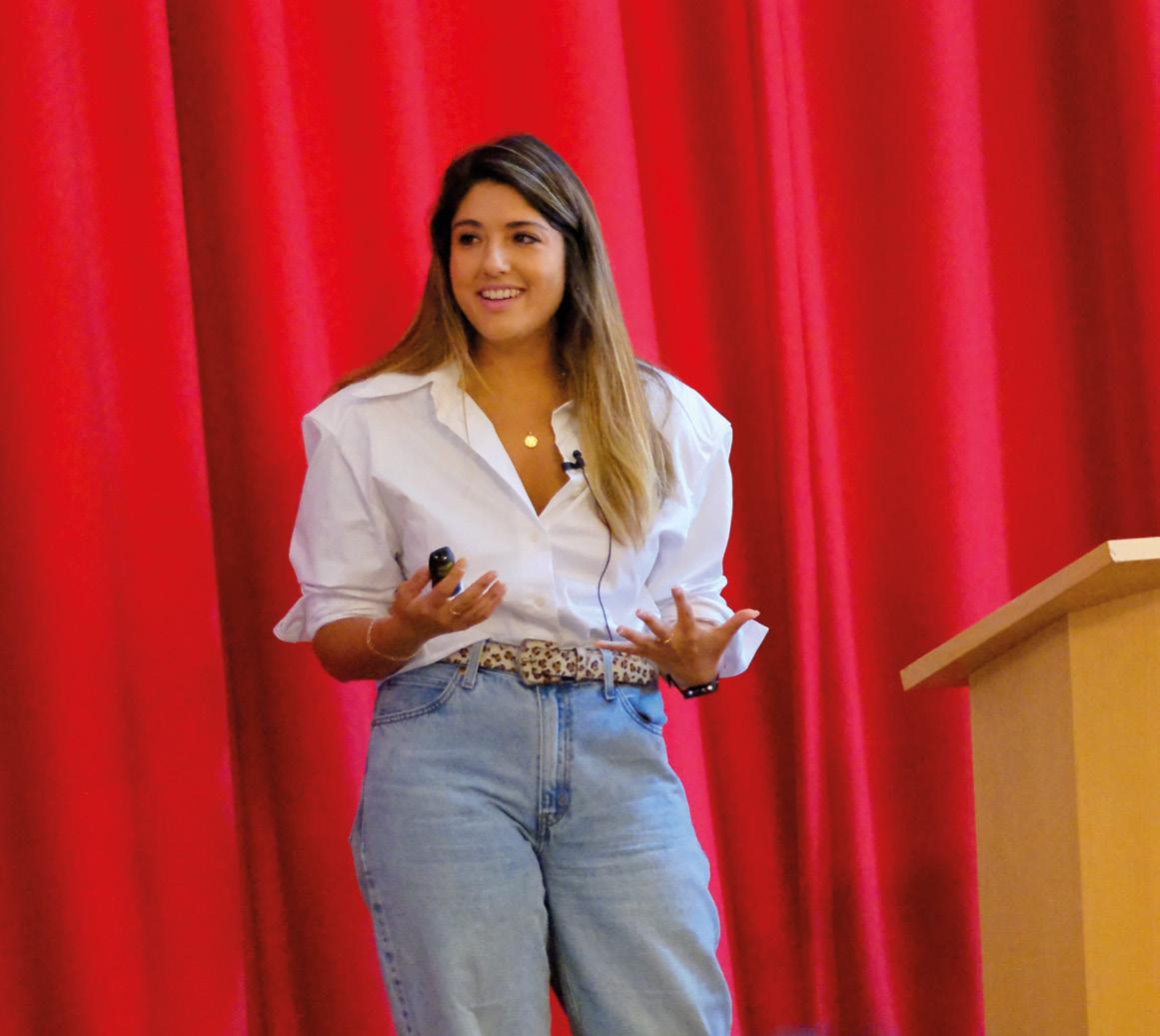
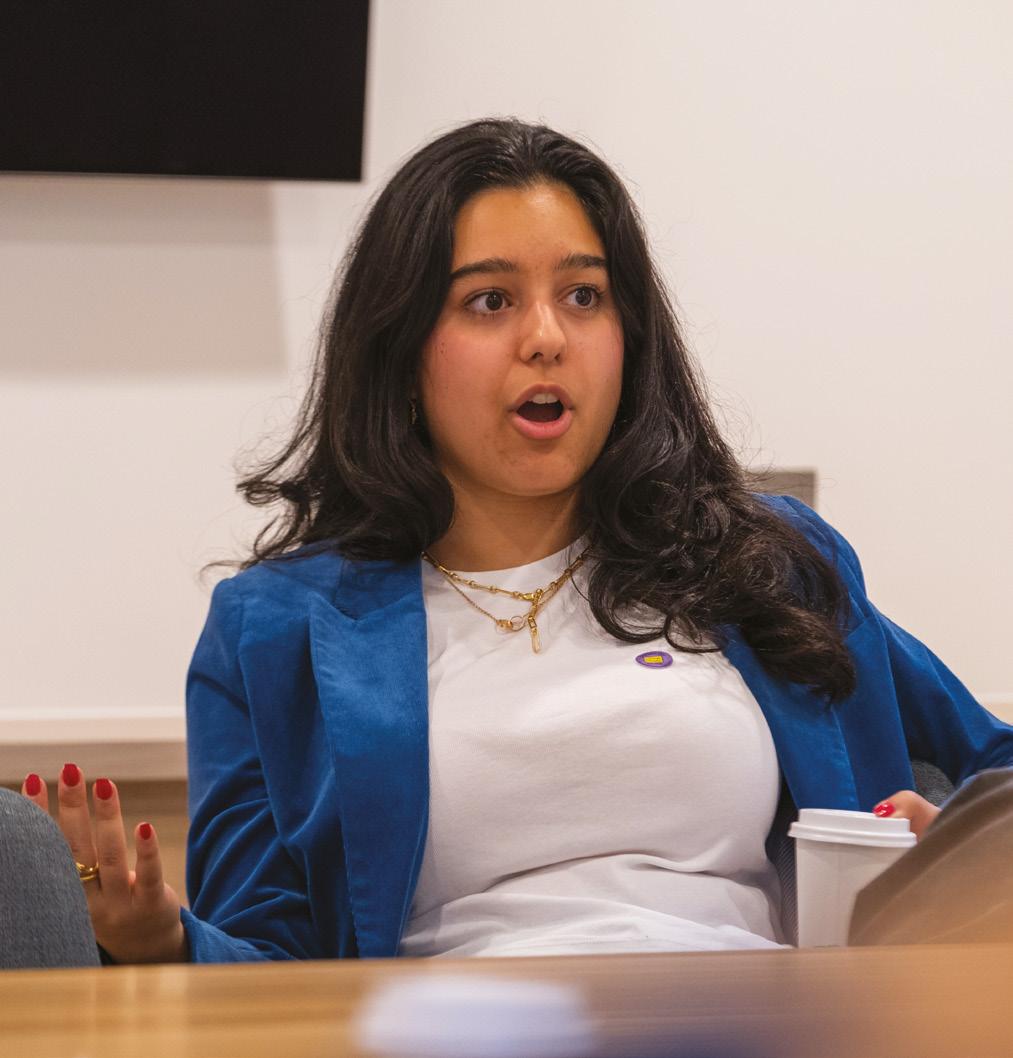
Roxanna Fahid (Class of 2022)
We were delighted to welcome back Old Dolphin Roxanna (Class of 2022), as she spoke to our prospective applicants about studying in the United States and more specifically about the academic and extra-curricular life at The University of Chicago.
From singing in the a cappella group and joining a sorority to contributing to the biomedical community and editing the student journal Pulse, Roxanna shared how the University offers a dynamic blend of rigorous academics and vibrant extracurricular opportunities.
Alice Aedy (Class of 2012)
To mark this year’s International Women’s Day on the theme of ‘Inspiring Inclusion’, we were absolutely delighted to welcome Alice Aedy –activist, documentary photographer, film-maker, founder of the multi-media platform Earthrise, and Old Dolphin – to speak at our whole school assembly.
Alice empathised with our students, who she said might be feeling grief and anxiety about the climate challenges while also feeling quite powerless. However, as climate change is a man-made crisis, she explained that we do have the power to make a difference and contribute by finding our sense of purpose. She told our students that she ‘never thought she’d be an entrepreneur’ and urged them to have the courage to do what they can to tackle problems. She encouraged them to ask themselves, ‘What do you care about? What are you good at? What problem needs solving?’ And reflecting on her time at Godolphin, she said: ‘Hold on tight to the friends you make here. You’ll rarely find a group of such fiercely independent young women!’
We can’t thank Alice enough for being so generous with her time and for being a superb role model for our students; she really is an amazing Old Dolphin!
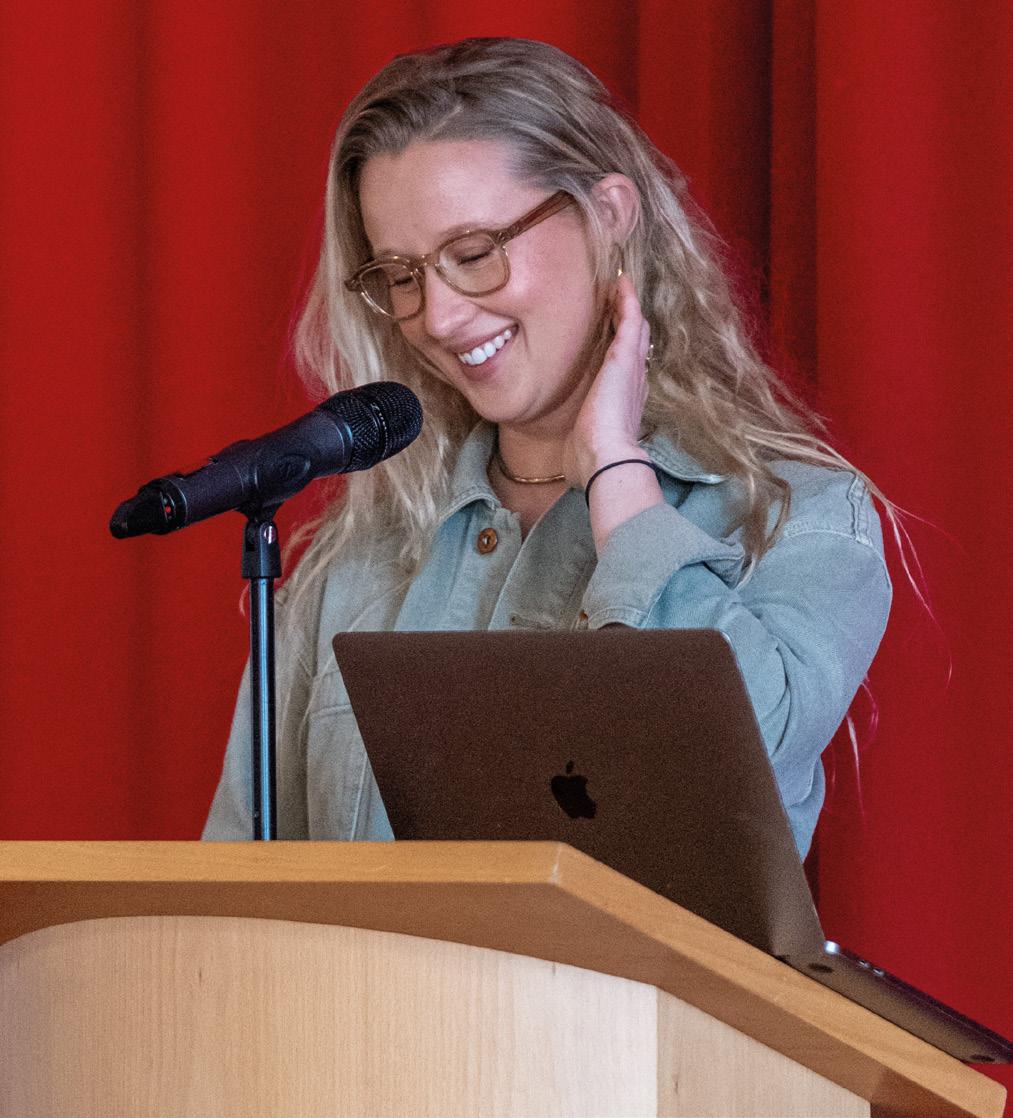
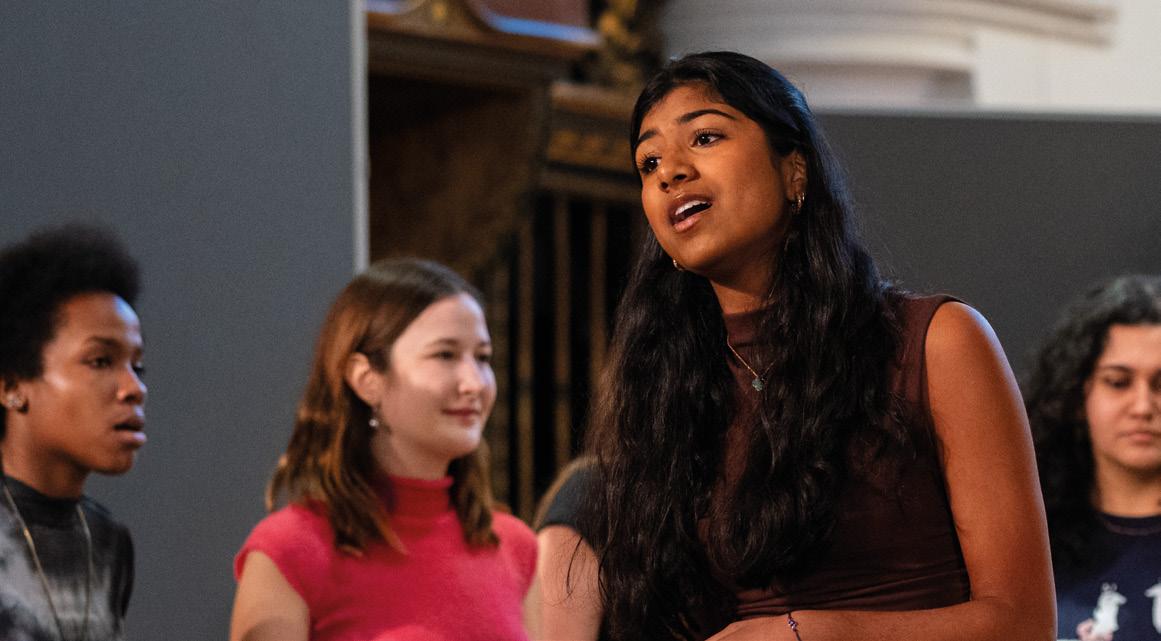
Isha Yerramilli-Rao (Class of 2021)
We were delighted to welcome Old Dolphin Isha Yerramilli-Rao and the other members of a capella group the Princeton Tigressions to school in January. The group gave a short concert before leading a workshop with our Junior Chamber Choir.
We have also been visited over the years by:
Annie Bird, Class of 2014, who led a psychology talk with the girls.
Lulu Aberg (‘23), Maria Baranova (‘21), Amy Cheal (‘22), Ines Elliot Granger (‘21), Freja Hogsander (‘22), Shauna Keane (‘23), Cosima Lehndorff (‘19), Holly Moody (‘22), Georgina Morrow (‘22), Alexia Noirot (‘23), Zoe Prokopiou (‘21), Quynh-An Nguyen Trieu (‘23), and Stella Uzielli de Mari (‘23), all generously helped out with our Subject Sessions. Soraya Daya, Class of 2019, came in to help with interview practice for girls pursuing Medicine.
Lottie Leigh
(Class of 2016)
Lottie is a graduate from the University of Oxford with a BA in History and Politics and an MSc in Development Studies from SOAS University of London. She is currently serving as a Government Partnerships Associate at the World Food Programme.
With a background in government partnerships, donor relations, resource mobilisation, and advocacy, she has worked at both the London office and headquarters of the United Nations World Food Programme. Her current focus involves leading UK advocacy for international school meals and nutrition, as well as fostering partnerships with various stakeholders to achieve Sustainable Development Goal 2 (Zero Hunger).
Previously, Lottie held communication roles at several NGOs in the humanitarian and development sector, as well as at the UK’s leading travel PR company. She is deeply passionate about politics, development, food security, climate, social justice, and human rights.

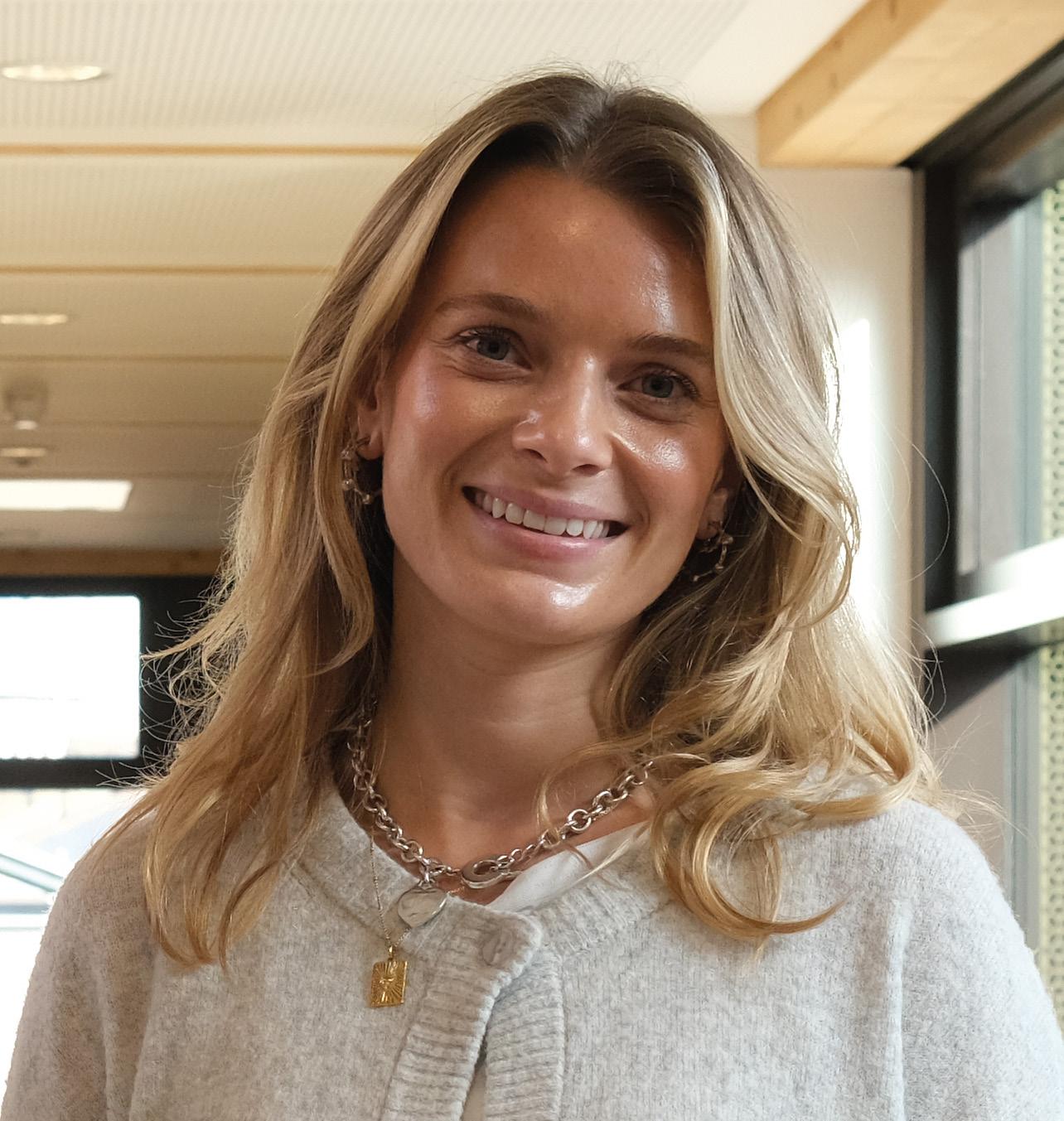

Bea Duncan (Class of 2014)
Bea is an accomplished audio artist, Senior Producer, and community builder renowned for her sensitive documentary reporting, creative sound design, and long-form narrative storytelling. Since leaving Godolphin, Bea has had a diverse career across various audio companies, including being among the inaugural team members of Sony Music UK’s podcasting division. In 2023, she was nominated for Producer of the Year, a prestigious recognition in the UK Audio Industry, and won Bronze for Best Lifestyle and Society Producer at the same ceremony. Her work has garnered numerous awards and nominations, spanning from The Webby Awards to The British Podcast Awards to The International Women’s Podcast Awards. She has been recognised as one of The Radio Academy’s ’30 under 30’ and listed in PodPod’s Faces to Watch list.
Additionally, Bea is the founder and director of The Entry Level Audio Network, a philanthropic project aiming to make the audio industry more accessible by collaborating with industry bodies and breaking down entry barriers through grassroots efforts.
Sophie Maeter (Class of 2014)
Sophie is a professional staff member in the United States Senate, with a Bachelor’s degree in Foreign Affairs and History from the University of Virginia (UVA), where she was a foursemester Dean’s List honour student. She worked for US Senator Shelley Moore Capito for five years, notably contributing to the drafting and passage of the Electoral Count Reform Act, which was signed into law by President Joe Biden in response to the 6 January 2020 riots. Currently, Sophie is employed by the US Senate Rules Committee and is a fellow with the Stennis Center for Public Service Emerging Congressional Staff Leaders Program. Additionally, she serves as a board member for the University of Virginia Club of Washington DC, the largest UVA alumni club in the nation.
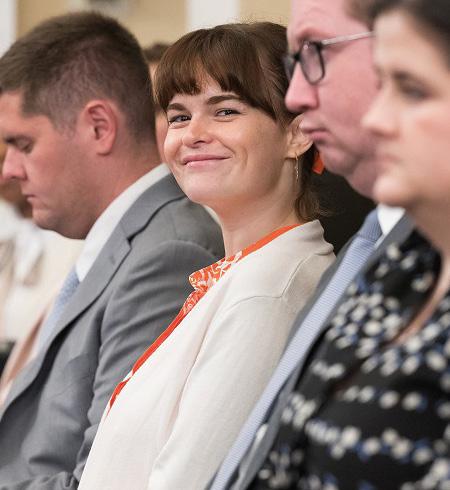

Alice is a British documentary photographer, filmmaker, and journalist, known for her work on human rights, social justice, and the environment. She co-founded Earthrise, which focuses on raising awareness of the climate crisis. Her impactful reporting on the intersection of climate and conflict, particularly within the refugee crisis, has been featured in Vogue, i-D, The Sunday Times, and The New York Times. Alice has directed documentaries, collaborated on a breast cancer awareness film with Stella McCartney, and founded Choose Earth, which supports indigenous leaders fighting for the planet’s future. Earthrise recently released a YouTube Originals Series titled ‘Seat at the Table’, featuring interviews with David Attenborough, Jane Goodall, and Barack Obama.
Alice’s commitment to storytelling and activism has earned her recognition in various prominent publications. From 2015 to 2019, she reported extensively from refugee camps in Europe and the Middle East, later covering those escaping the conflict on the Ukrainian border in Poland.
Realising the link between climate change and refugee crises, she explored this intersection in Gaza with the International Red Cross. Alice continues to engage in various projects, including documentaries like Disconnected and Somalinimo and advocacy through Choose Earth.
Alice was recently honoured in Forbes 30 Under 30 for Social Impact.
Hannah studied acting with Sanford Meisner at The Neighborhood Playhouse and then began her acting career in Mike Leigh’s Secrets and Lies, the long-running British police series, The Bill, and also at the BBC, producing docu-dramas and documentaries. Writing credits include an adaptation of Frog and Toad for Jim Henson Pictures, an adaptation of A Lifetime in Motion for Seismic Pictures, The Red Room for Eccho Rights, and Love and Whiskey, which she is also coexecutive producing for Element 8. For Sony Tristar she co-created Bedlam, a television drama. She co-wrote the feature film Father Christmas is Back which was a top-ten hit globally for Netflix in 2022 starring John Cleese, Kelsey Grammar and Elizabeth Hurley. Her writing, producing, and directing credits include the feature films, Mothers and Daughters (Golden Hitchcock nomination) and The Understudy (Showtime), and the Emmy-nominated TV series for AMC+ and IFC, Cooper’s Bar which she co-created and which has been renewed for a second season.
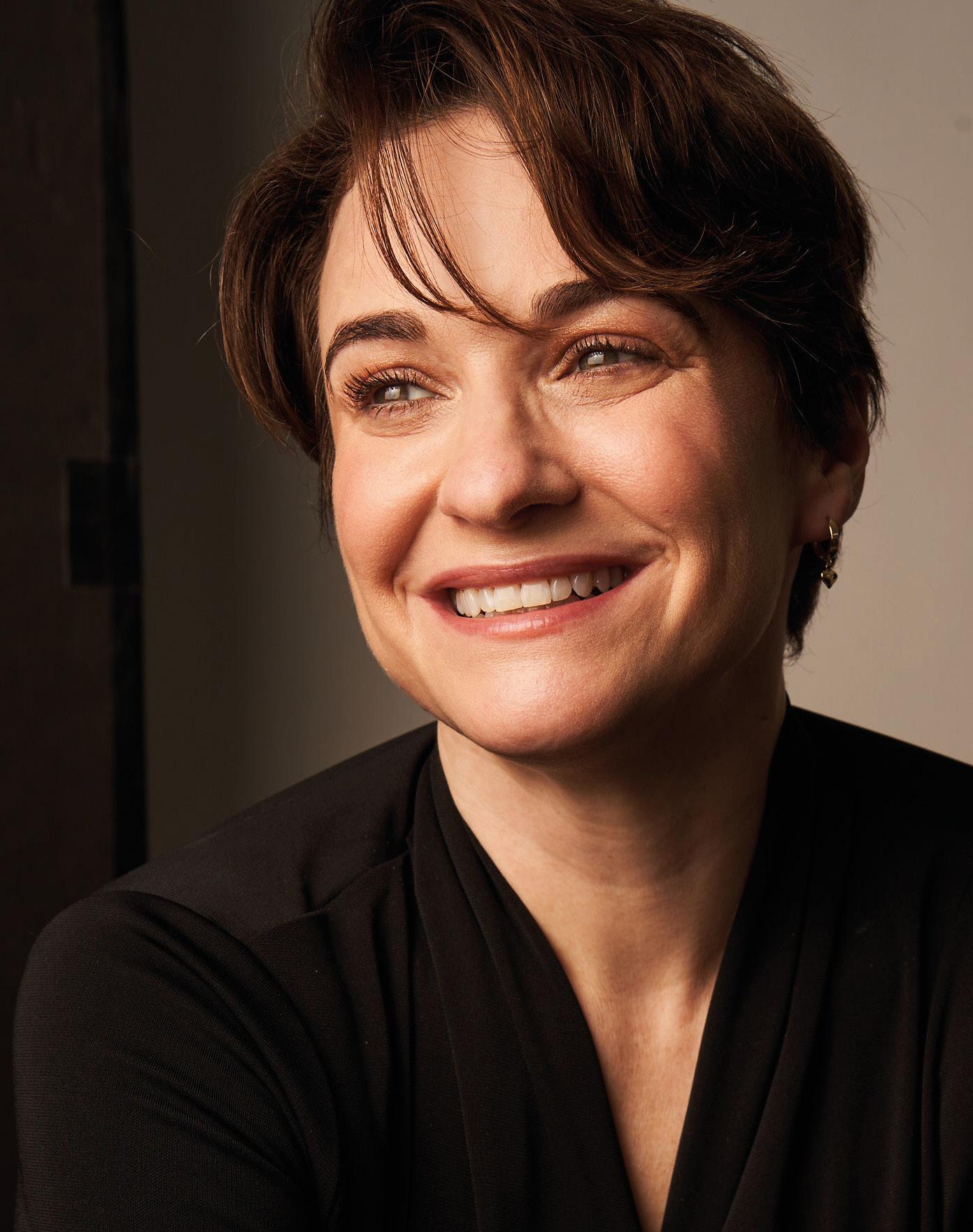
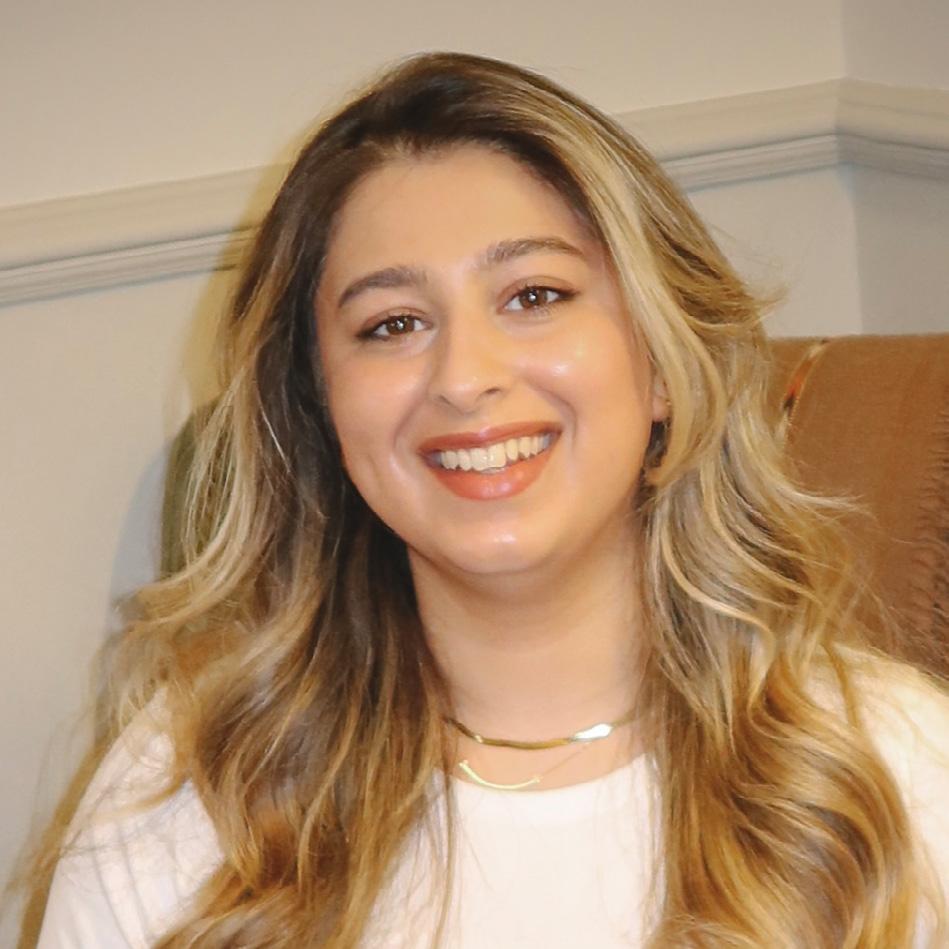
Zahra is a graduate from Durham University with a BSc in Biomedical Sciences, and is now serving as a Principal Program Manager at Google DeepMind. In this role, she leads program management for the technical team working on the development of safe, reliable, and trustworthy AI. Notably, she spearheaded the release of SynthID, a method to detect AIgenerated media, which has gained significant attention from prestigious publications such as MIT Tech Review, Washington Post, BBC News, CNN, Forbes, and The Verge.
Additionally, she has been recognised on the Asian Women of Achievement 2024Technology Shortlist.
Ever since it became a grammar school in 1944, Godolphin and Latymer has offered free places to bright girls regardless of their financial background. Today we continue this tradition through the generosity of our Old Dolphins, parents and former parents, and friends of the school.
The gifts we receive support our ambition that every bright girl who is offered a place can join our school, irrespective of their family’s financial circumstances. All of the bursaries we offer are means-tested, but most of all we want to increase the number of truly life-changing 100% awards for the families who need the most support. In this way we really can transform young lives and ensure that Godolphin continues to be inclusive and welcoming to pupils from a wide range of backgrounds.
We hear from those who received such lifechanging financial support during their time at Godolphin and Latymer:
‘To anyone who is thinking of supporting the bursary fund, I would say to them that it’s really a life-changing opportunity for a girl like me. I think that this place, Godolphin, really nurtured not only my academic ambitions and allowed me to go on to have the career that I dreamed of, but it also instilled in me virtues and a sense of self that is very unique. All Godolphin girls seem to come away with independence and a belief in their own abilities, and I think that’s quite rare and quite special, so supporting someone who wouldn’t otherwise have the chance to go here can be really life-changing.’
Lottie Leigh (Class of 2016)
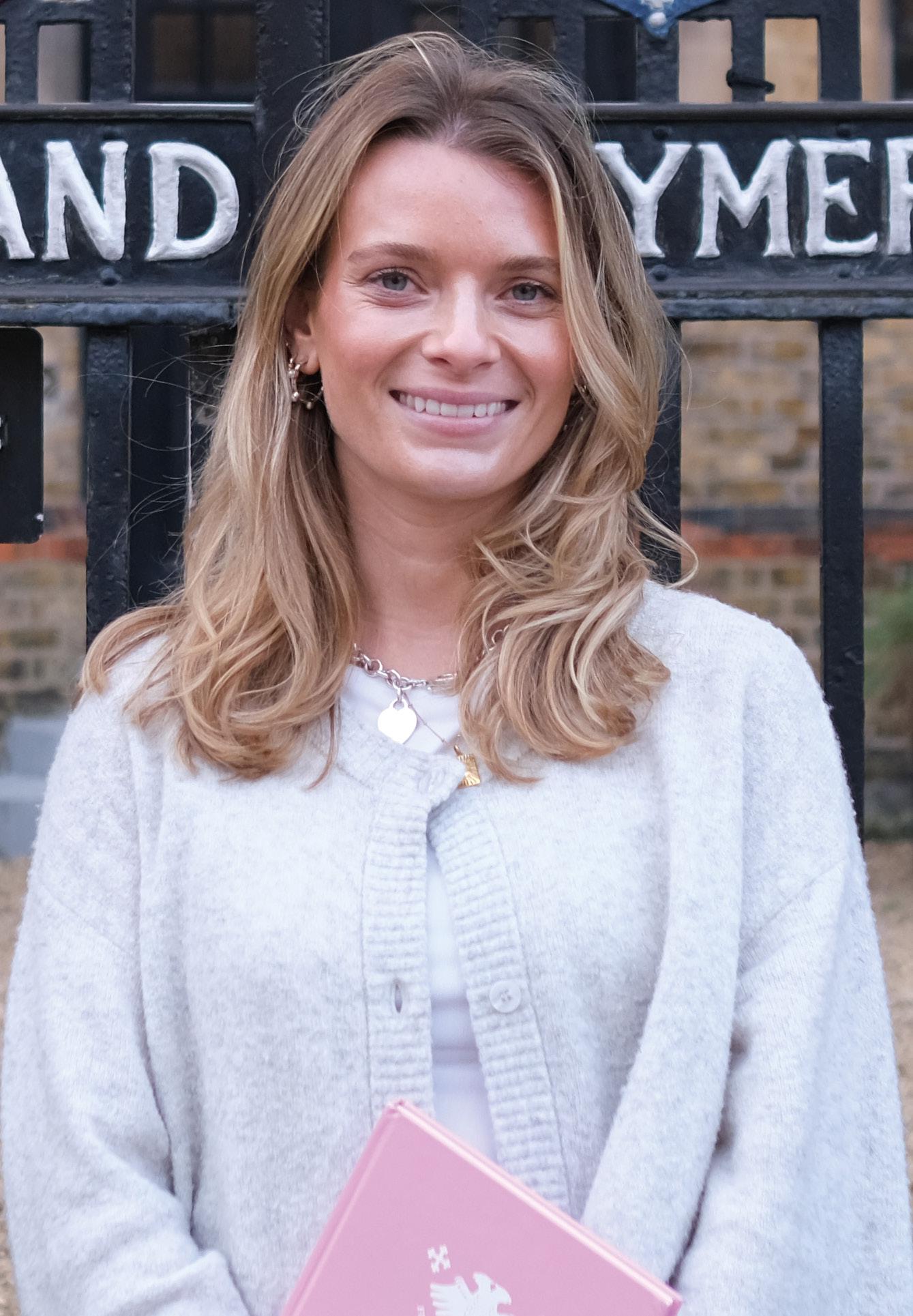
‘Godolphin has really put their faith in me to go places I didn’t think I could go myself. That’s encouraged me and I feel like I want to inspire other people to do the same as well. All I would say to anyone who is thinking of supporting the bursary programme is that it has made such a difference in my life and I really hope that other girls who are like me will be able to experience the same opportunities that I’ve experienced.’
Isabella Sim (Class of 2023)
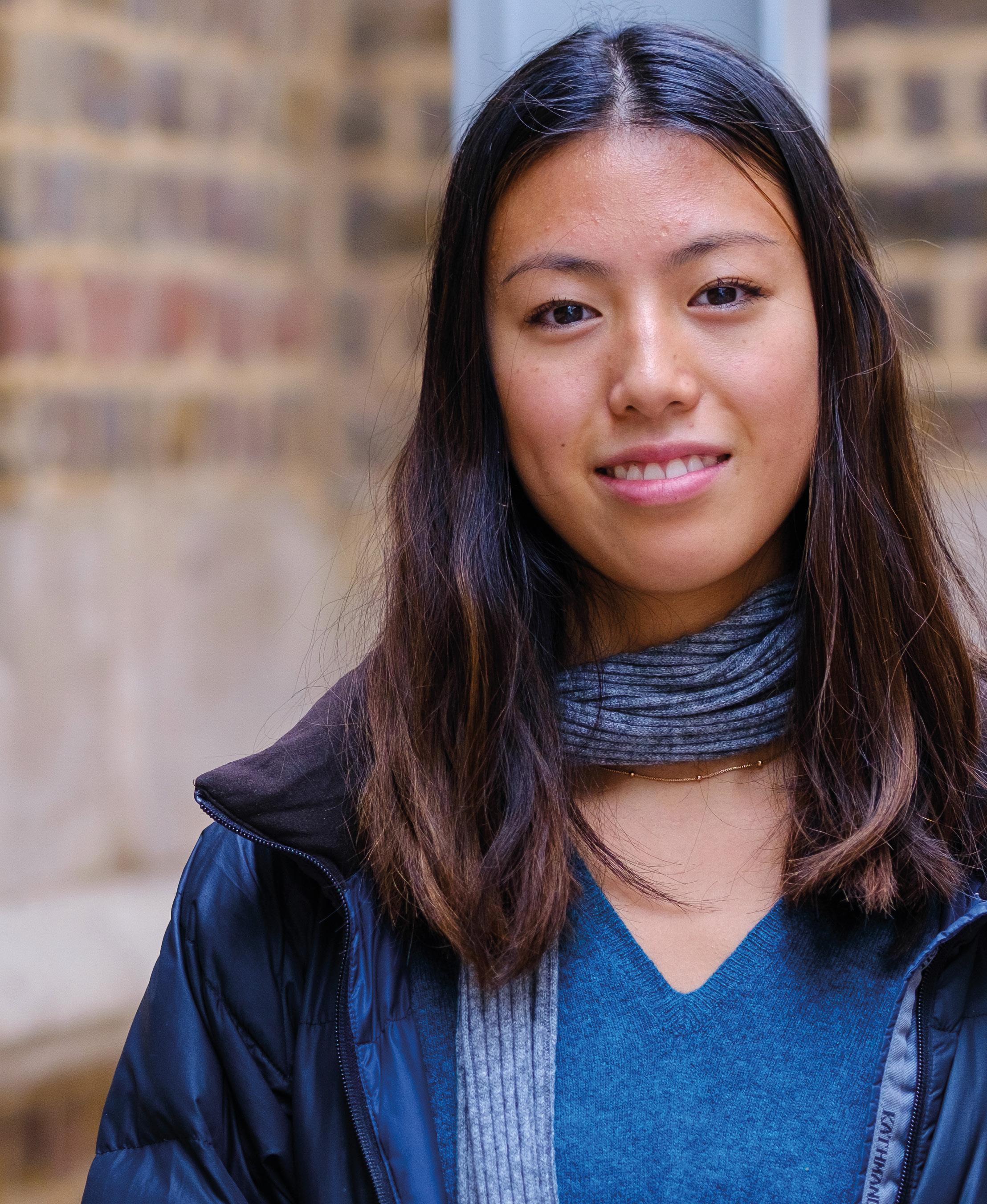
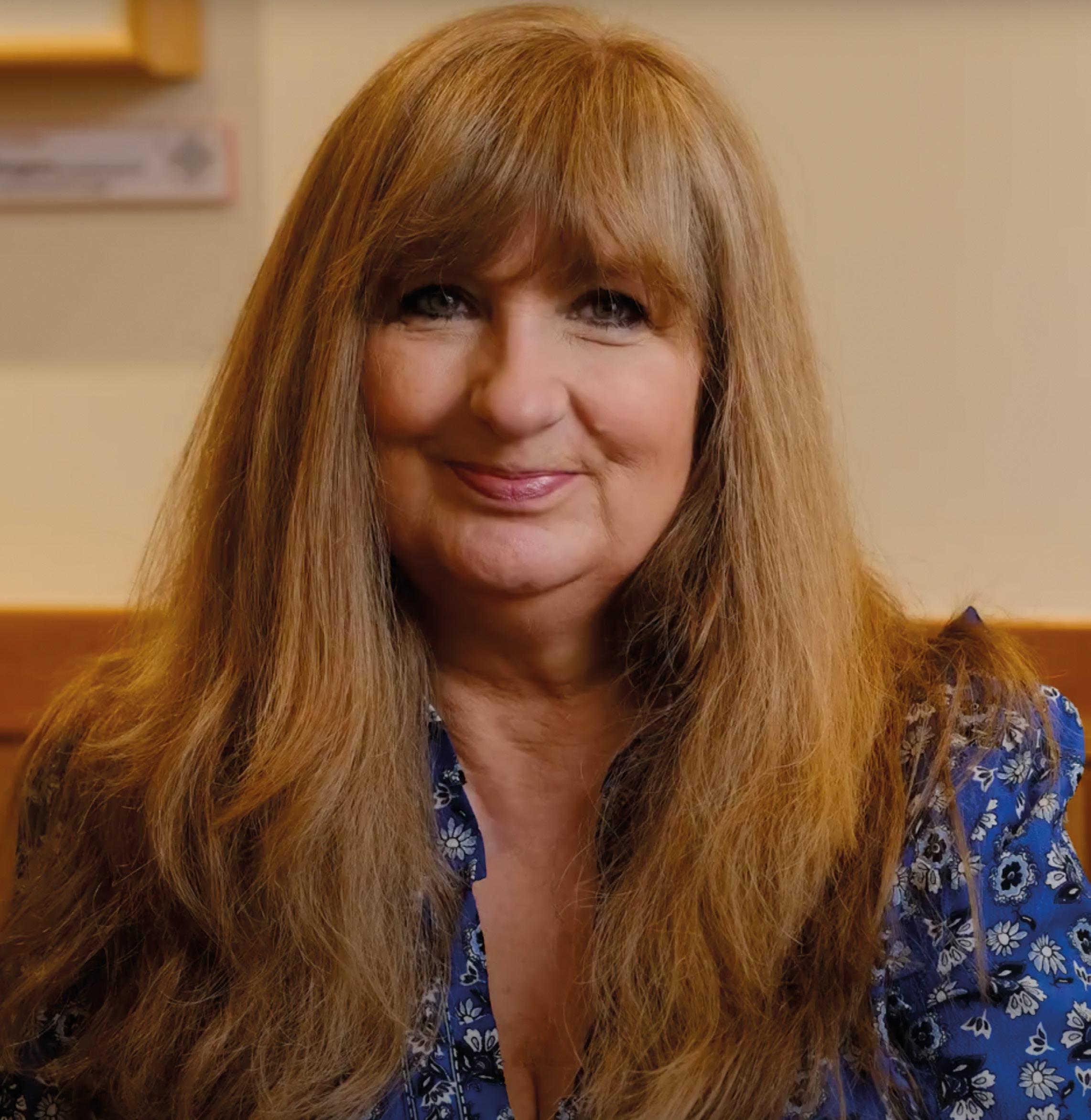
‘It’s an all-encompassing thing; you can recognise Godolphin girls. So for us girls who get bursaries, it’s a huge difference. It can be life-changing in terms of our whole career – even beyond our career.
I do a lot of volunteering now, I’m on the board of governors and I think that is all carried through. In terms of the school, it’s enormously beneficial to have that diversity, that everyone can just get on regardless, that people are not judged by their wealth but judged by who they are.
It was always a real fun place to be, and I do think that that’s an important thing to keep up. Really important. The more girls that you get from different backgrounds, I think it all adds to the school. It’s beneficial for everyone really.’
Sarah Makepeace (Class of 1985)

Heather Ebio (Class of 2018) journeyed from Godolphin and Latymer to the bustling streets of Manila. There, she immersed herself in a new culture, embracing the challenges of life abroad. Over the past six years since her graduation, Heather has ventured into the Philippine islands of Southeast Asia, capturing the essence of its developing communities through her camera lens.
In the following interview, we accompany Heather as she reminisces about her school days and reflects on her current role as a Media and Communications Specialist.
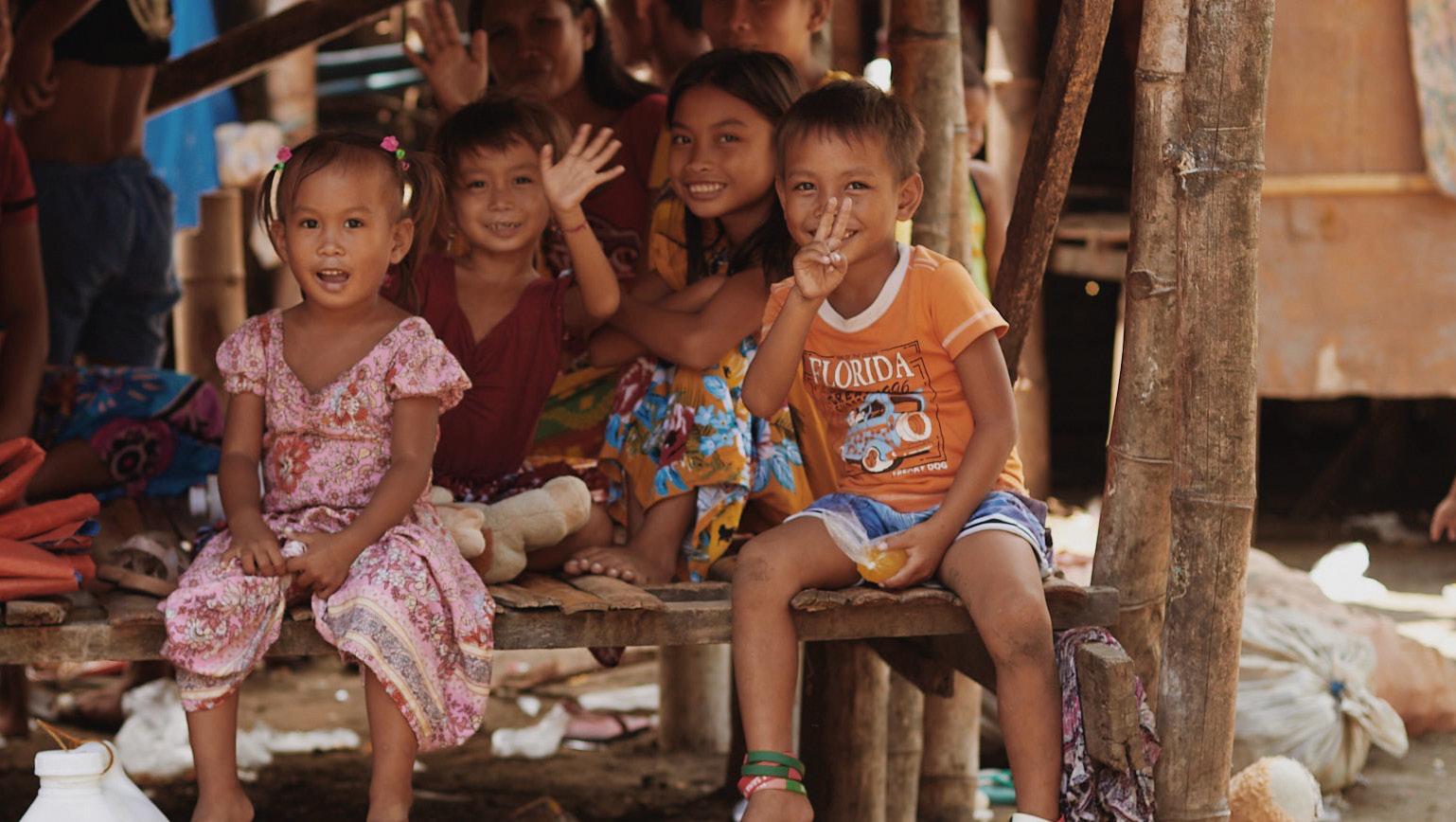
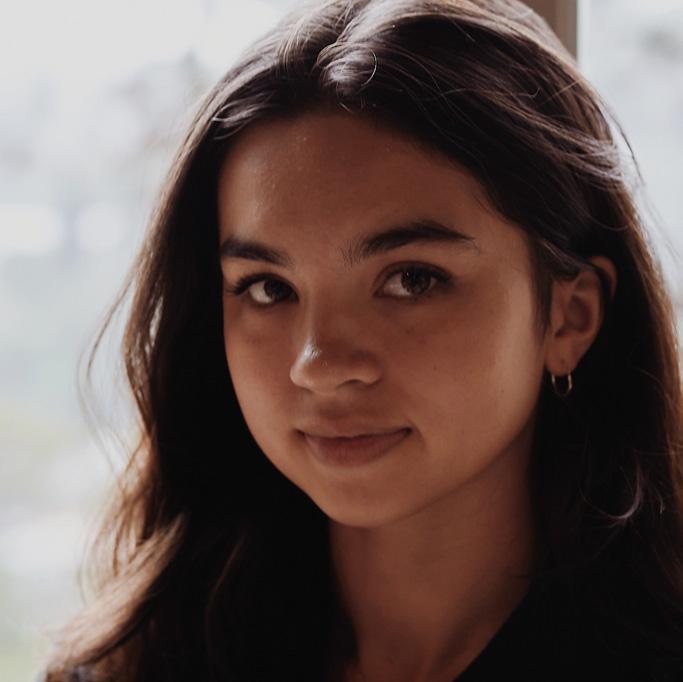
Since leaving Godolphin and Latymer, how have you evolved, and what lessons have you learnt along the way?
It’s been six years since I left Godolphin, and I have since finished my degree at UCL, moved to Asia to work in the charity sector in the Philippines, got married, and have been back and forth between the Philippines and North America to report for my organisation. It has been exciting and really challenging moving to a developing country and diving into a different culture and new language. I am halfFilipino, but there is such a difference between visiting the Philippines on vacation and actually living here. I’ve had to adjust to things like the humidity and heat, the traffic and pollution, looking like a ‘foreigner’, and gradually learning a new language. I’ve gotten used to day-today differences like buying massive jugs of water because the tap isn’t clean, frequent power outages, and riding on the back of a motorcycle taxi to get around the city. I always miss London and the community I have there, as it felt like I had to start all over when I moved here. Above all, I think I’ve learnt the importance of adaptability and accepting change with a positive perspective.
Can you share with us any highlights from your time at Godolphin and Latymer that have had a lasting impact on you?
I often think back on my A Level English Lit class with Mrs Vantini and how our class of six put on an A Level American Literature conference. I really felt the joy of learning in that class, and I see now how that also prepared me well for independent university study. There were also more opportunities for us to serve the school community in Sixth Form, and I particularly enjoyed being a school ambassador and Art Scholar. In a small way, I was able to help out with Godolphin’s fundraising events for the bursary fund, of which I was a beneficiary.
Can you share your experience receiving a bursary and how it impacted your educational journey?
I was privileged to receive a full bursary for every year of study at G&L. Without it, I wouldn’t have even been able to consider going to a school like Godolphin. I came from a public primary school and the bursary gave me assurance from a young age that Godolphin was the right fit for me academically. I felt encouraged to keep striving to develop myself. As a young girl, it gave me educational confidence without financial barriers, and I am just so thankful for that gift because it definitely helped shape me into who I am today.
Reflecting on your journey from Godolphin to your current role, how do you see the values instilled in you at school reflected in your work today?
I am currently working as a Media and Communications Specialist for a faith-based charity organisation that operates within the Philippine islands of Southeast Asia. My job is to document community development and calamity aid projects on the ground in rural Philippines and relay back information to the organisation through newsletters, videos, and conferences. Godolphin definitely instilled in me a character of resilience and readiness to challenge my limits, which is so important in my field of work.

Could you share some memorable moments or impactful experiences from your time volunteering in Manila, Philippines? What made you go back after university, and what inspired you to become involved in charity work?
After I graduated from Godolphin, I flew to Manila and volunteered for the summer with an organisation that did many impactful things in a small, local community. They ran a tuition-free primary school, children’s shelter, and maternity clinic. Witnessing the impact and meeting the people who had devoted their lives to this work was inspiring. That trip was actually where I first met my husband. He kept asking me what I wanted to do with my life. The night before I left, he asked me, ‘What if you did this?’ and I think that changed my life! Once I got to uni, I tailored my degree as best as I could so that it would prepare me for the work I wanted to do in the Philippines. I took courses on public health, global development, and sustainable development goals alongside my passion subjects like English Literature and Fine Art (I recommend UCL’s BASc Arts and Sciences degree for people who are interested in an interdisciplinary degree). I took on extra-curricular roles in marketing and media to add experience to my CV, and I actually went back to the Philippines multiple times during my degree to return to the organisation and figure out where I could fit in this sector. I don’t work for this same organisation now, but my husband and I still regularly visit and do workshops with the kids in the shelter, as it will always be such a special place to us!
What was it like moving to a different country in the middle of the pandemic?
Honestly, I struggled a lot. I was battling with so many emotions and illnesses while completing the last year of my degree online. It was so tough to see how a developing country dealt with the pandemic and how many marginalised communities were hurt by arbitrary policies and one of the world’s longest lockdowns. Minors were banned from going outside, which just seemed so incredibly sad. My family and I took up a project in our community to turn an abandoned land lot into a playground for children to play outside again. I painted a mural, and we raised funds for a small playset, which my family installed. This was definitely the silver lining in an incredibly hard time.
As a Media and Communications Specialist for a charity organisation, how do you use photography and videography to convey the impact of your relief programmes?
My job is to truthfully portray the community and the impact of a relief programme. It’s so easy in the charity sector to manipulate footage and take advantage of people to make things look pitiful, so I enjoy the process of storytelling through candid photography and the opportunity that videography gives to the community to speak for themselves. I often interview community leaders and work with translators. Truthfully, I always face some sort of internal struggle while I’m in the field because I would rather not have a camera between me and the people at all. However, it’s a legal and financial responsibility, so the best thing I can do is to do it as graciously as possible. Photos and videos are so integral to showing the reality of the impact. I can tell you that 70 families on a remote island received full fishing net sets to revitalise their livelihood after a typhoon, but being able to show a photo of their faces, their smile lines, their joy over their new supplies? It makes all the difference.
What advice would you give to current Godolphin students or Old Dolphins who aspire to make a difference in the world through philanthropy and community giving?
This sector may take you across the world to new cultures and communities, but there will always be need at your doorstep. I’m really happy that during my time at Godolphin, I was able to do things like volunteer at an elderly home, contribute to harvest festival collections, and pack Christmas boxes for the elderly, among many other things. It is possible for Old Dolphins already working to also advocate for community giving and philanthropy within their current businesses and organisations. If it doesn’t exist yet, you can start it! Or at least start the conversation on its importance.
Could you share any future goals or projects you have in mind?
I am thankful that my job has given me the opportunity to visit many ‘lumad’ (rural) schools and to witness the impact of even small donations such as pencils and backpacks. The quality of education and availability of resources is very low in rural schools, so I am considering acquiring
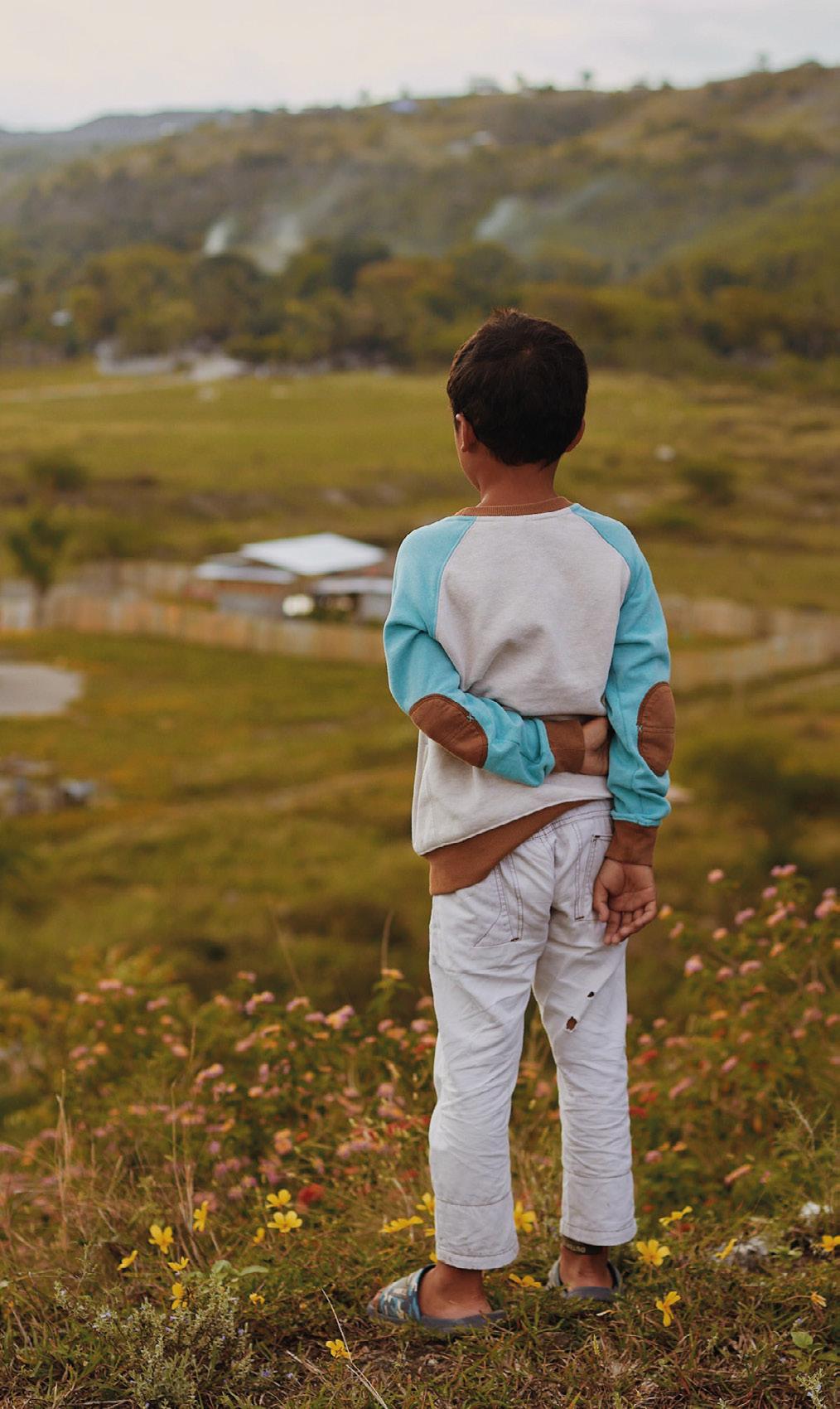
teaching qualifications because a personal (and probably far off!) dream of mine would be to further support these schools by working with local governments on curriculum development.
Do you have anything you wish you could tell your younger self? What would you say to those who have just left Godolphin?
I faced some pushback when I was 18 and told friends and family about my dream of working in the charity sector, not least in a developing country across the world. I would tell my younger self not to be ashamed of the heart behind that personal goal. For those who have just left G&L, specifically those who may not know what is coming next, don’t feel boxed in by a degree title. There are so many opportunities to explore and pursue the things that you are passionate about. There are even more opportunities to help make a difference, so in whatever field you find yourself, leave the world a better place.
In November, 2023, we welcomed back just over 100 Old Dolphins from the graduating classes of 1993, 2003, and 2013 for evenings of reminiscing and reconnecting.
Conversations (and wine) flowed freely as old friends caught up on years of adventures and achievements. It was a true testament to the enduring friendships forged within the walls of Godolphin and Latymer.
We were also thrilled to welcome back some familiar faces — our beloved former teachers! Their attendance was greatly appreciated, as alumnae expressed gratitude for the guidance and mentorship they had given.
Here’s to the classes of ’93, ‘03 and ‘13; may they continue to forge the successful paths of Godolphin Girls.
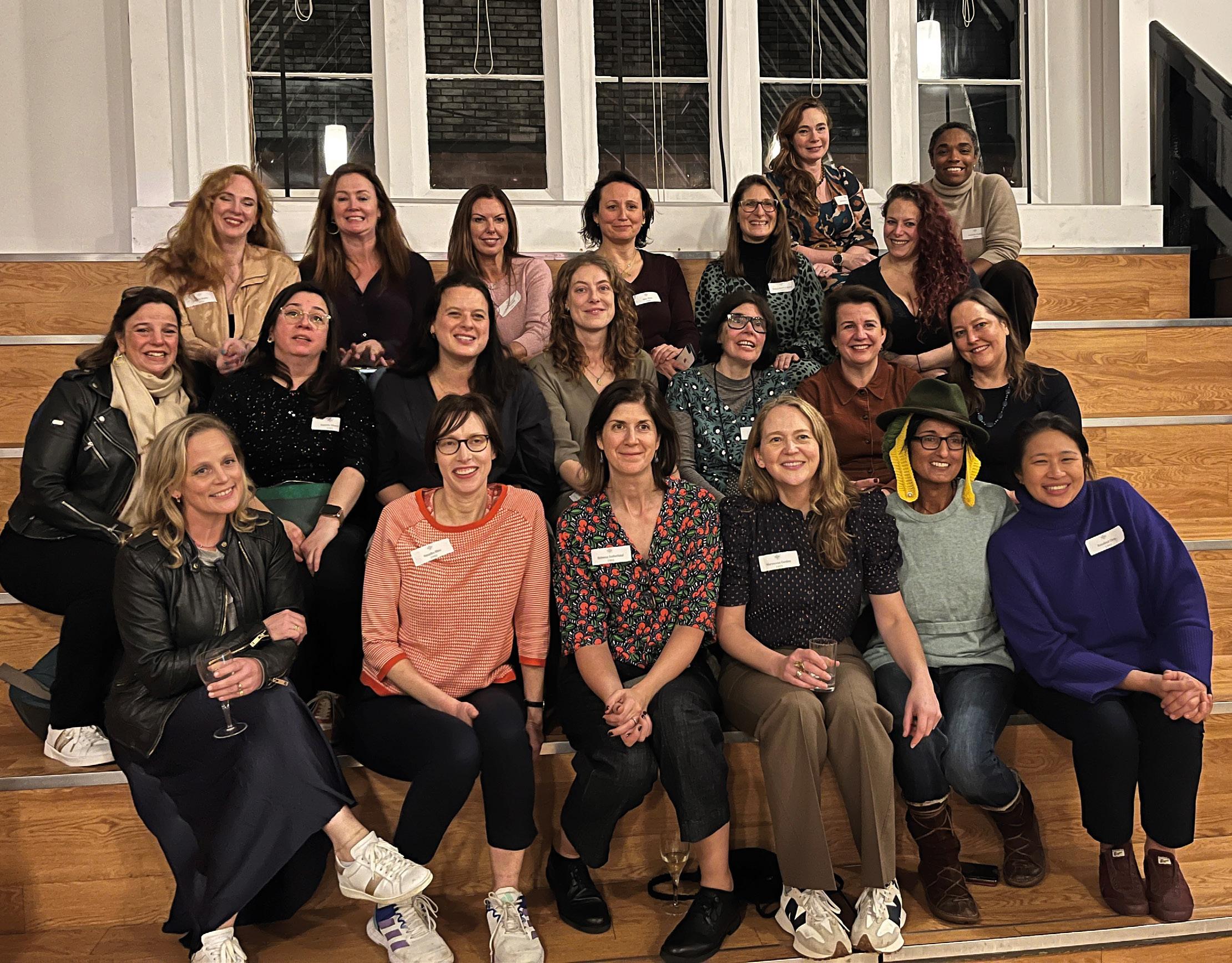
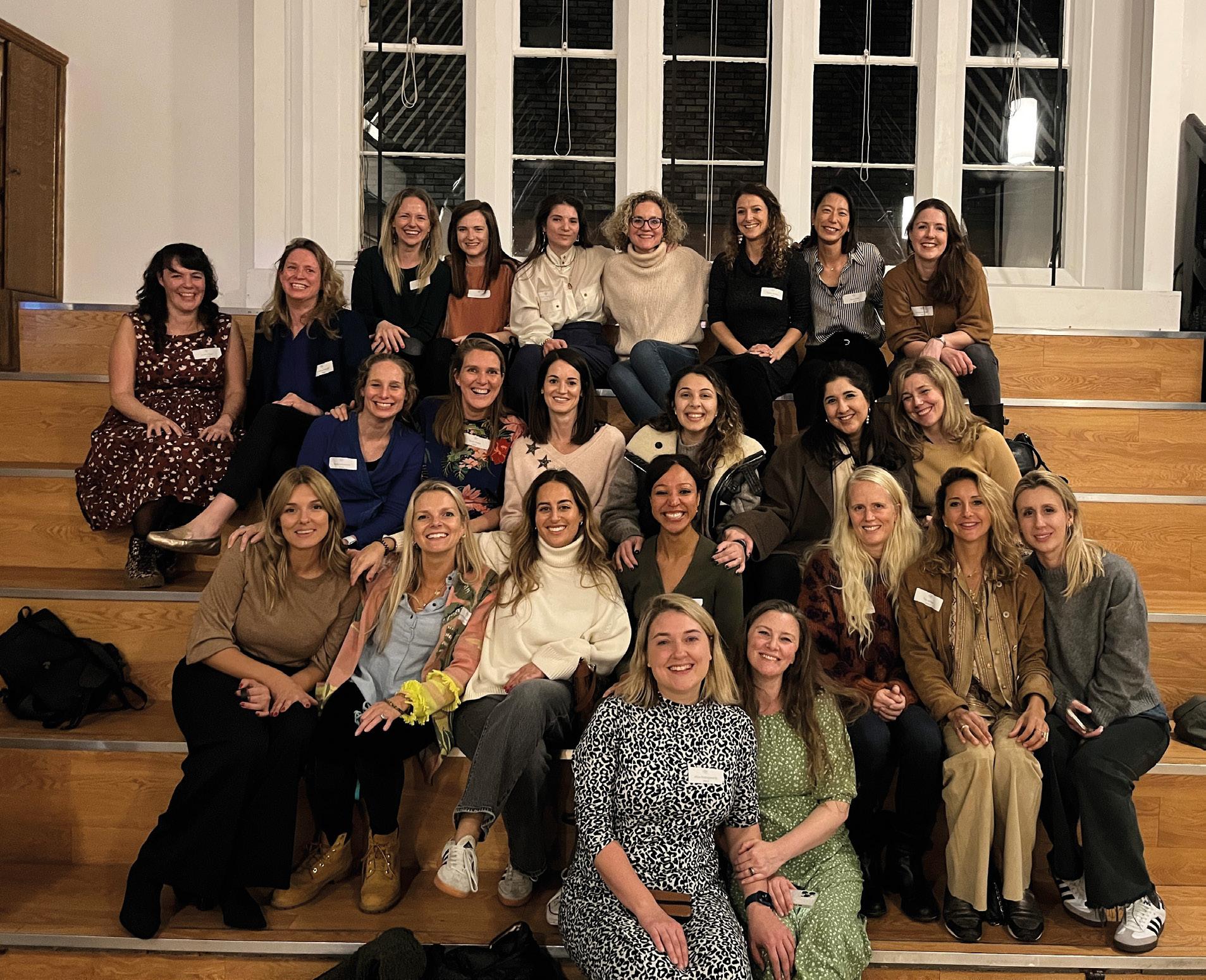
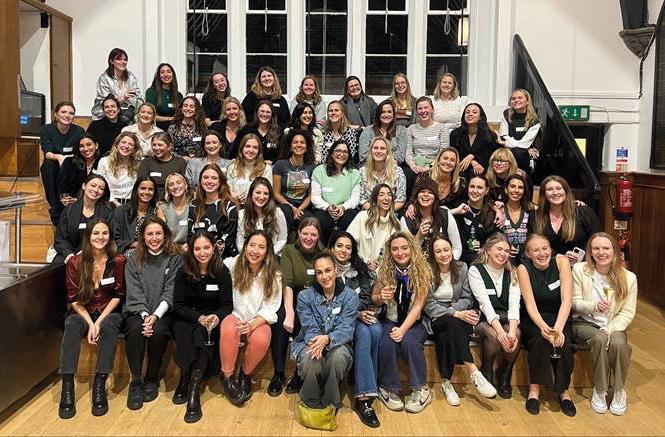
Please join us for our upcoming reunions: Classes of 1994 and 2004
10 October 6.30 – 9.00pm Class of 2018
17 October 6.30 – 9.00pm Class of 2014
7 November 6.30 – 9.00pm
Class of 2019
14 November 6.30 – 9.00pm
On Saturday 30 September 2023 we opened our gates to over 50 of our former students and members of staff for our annual Old Dolphins’ Day. It was a happy reunion of old friends spanning the generations, with our Class of 1973 celebrating the special milestone of their 50-year reunion.
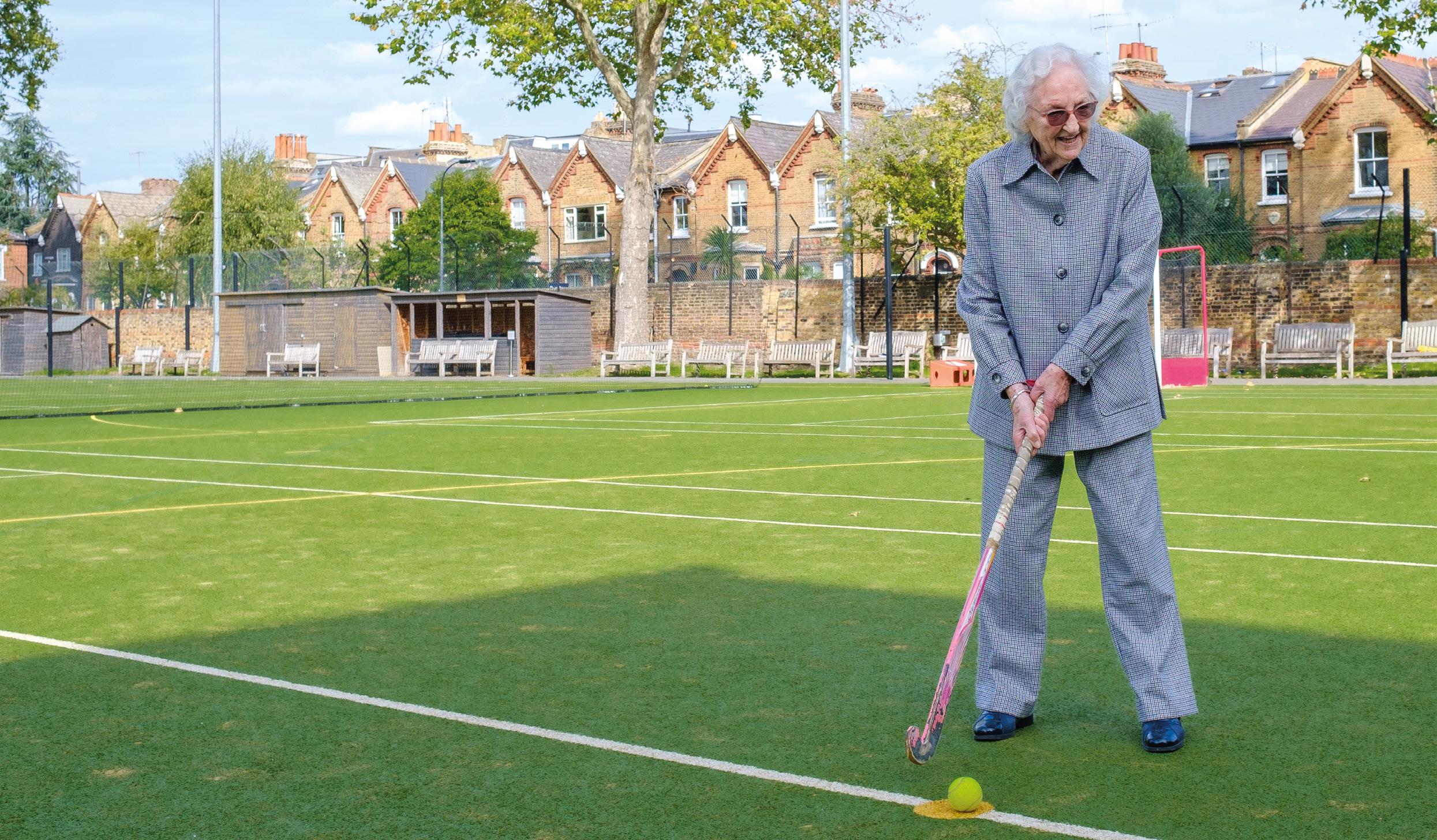
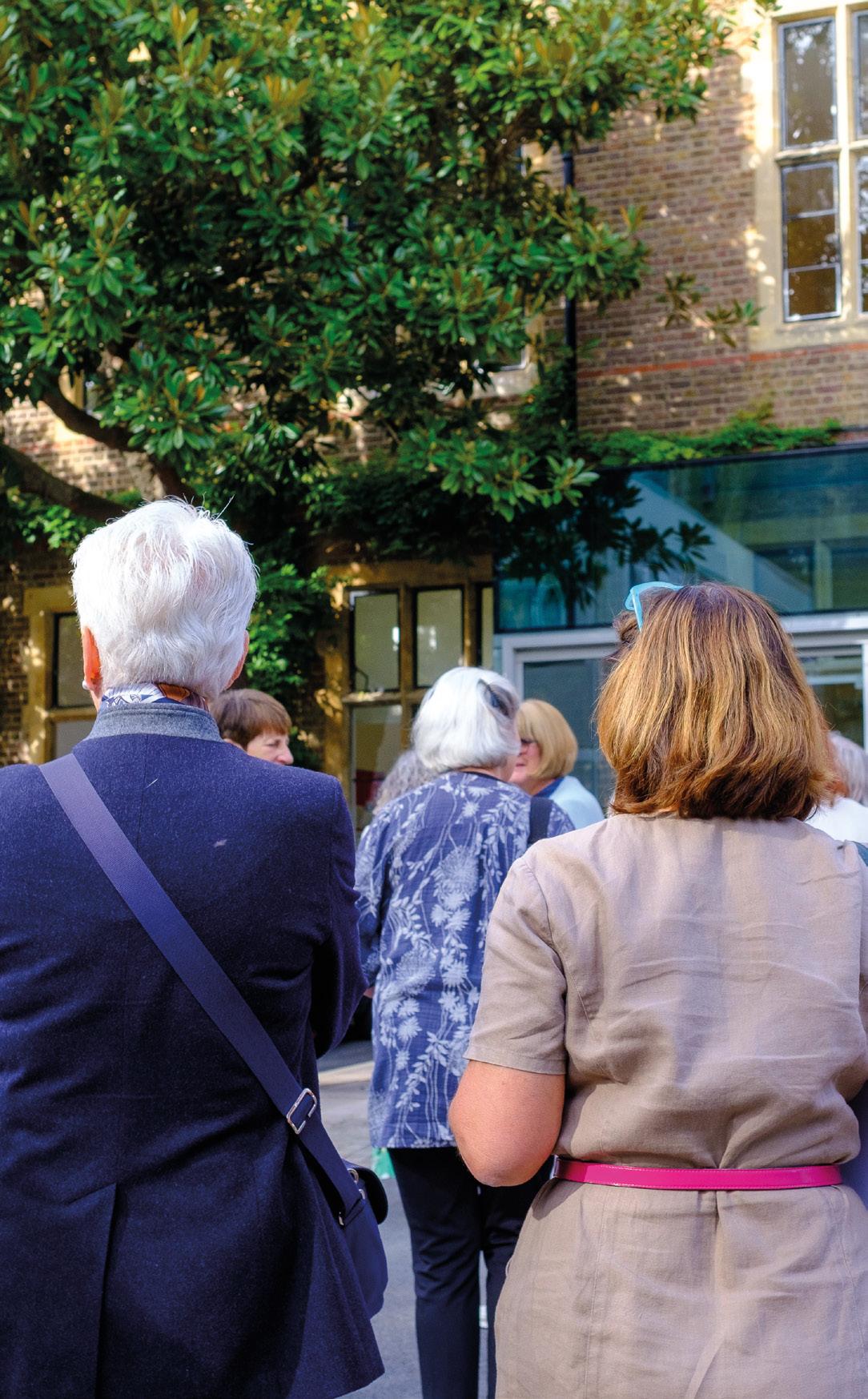
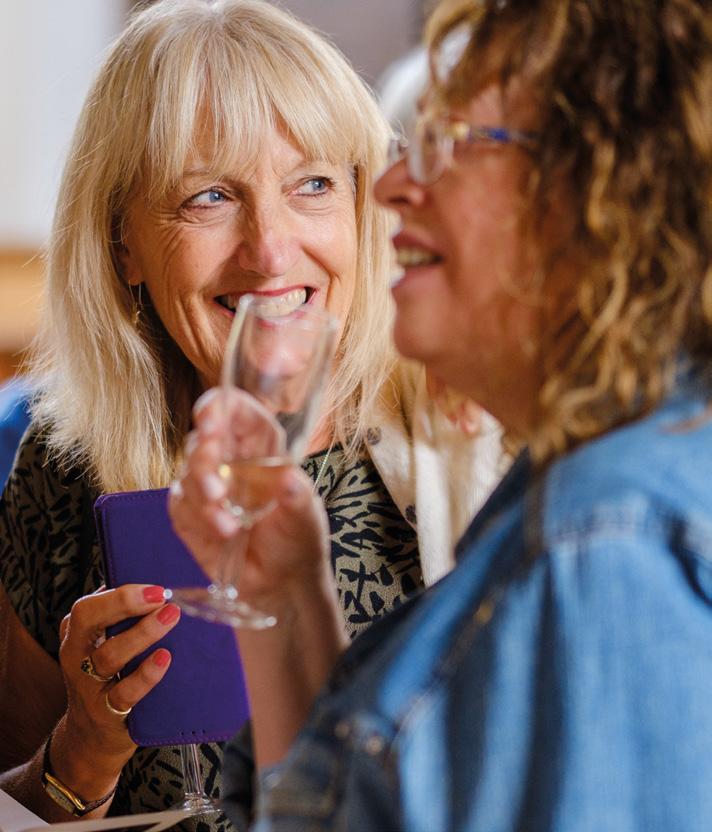
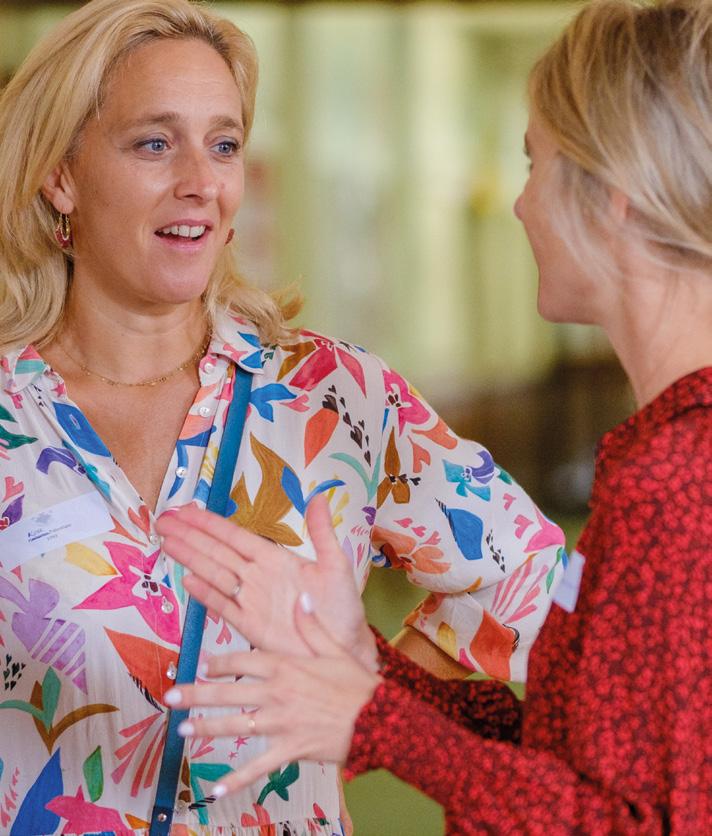
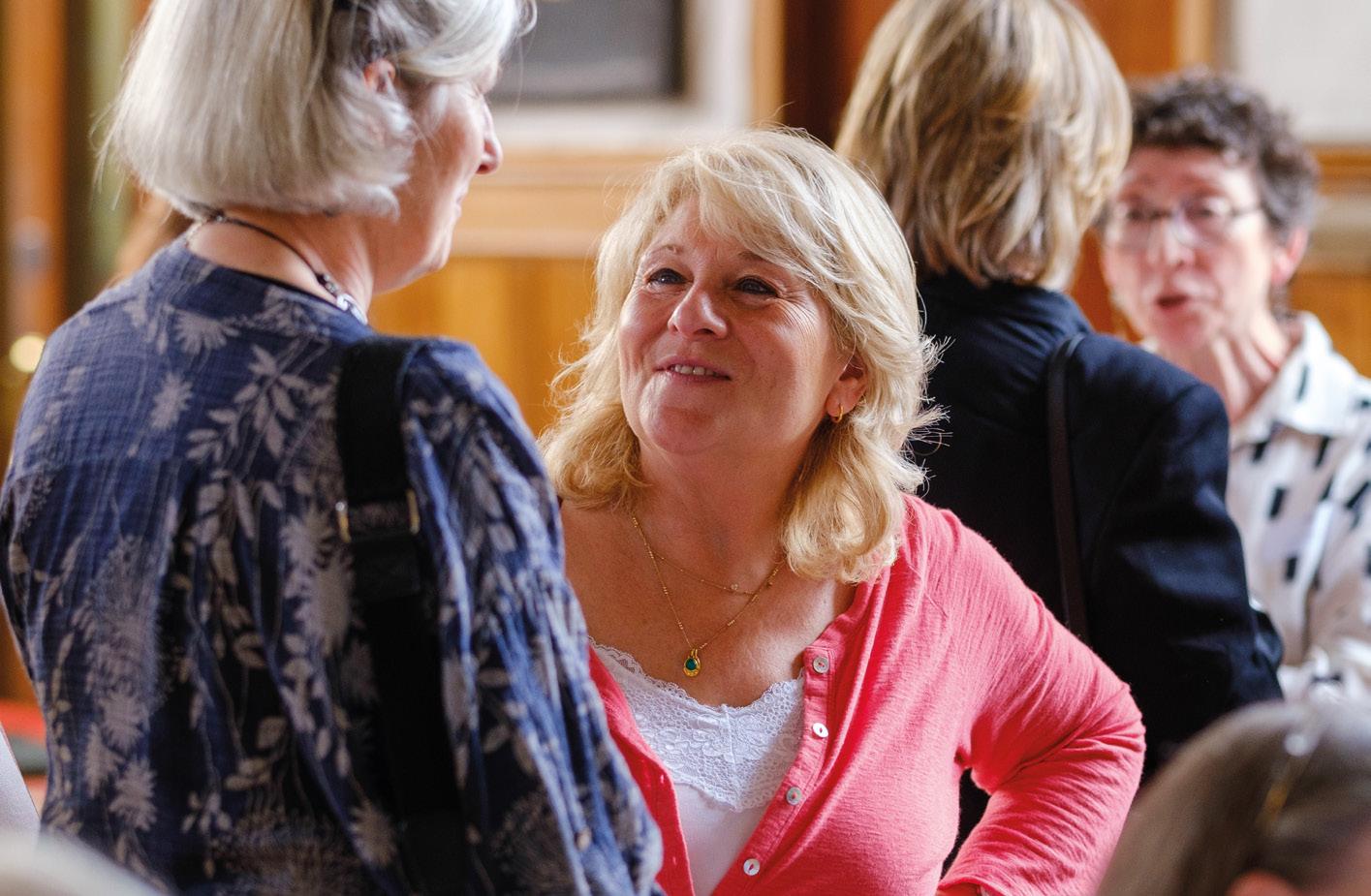
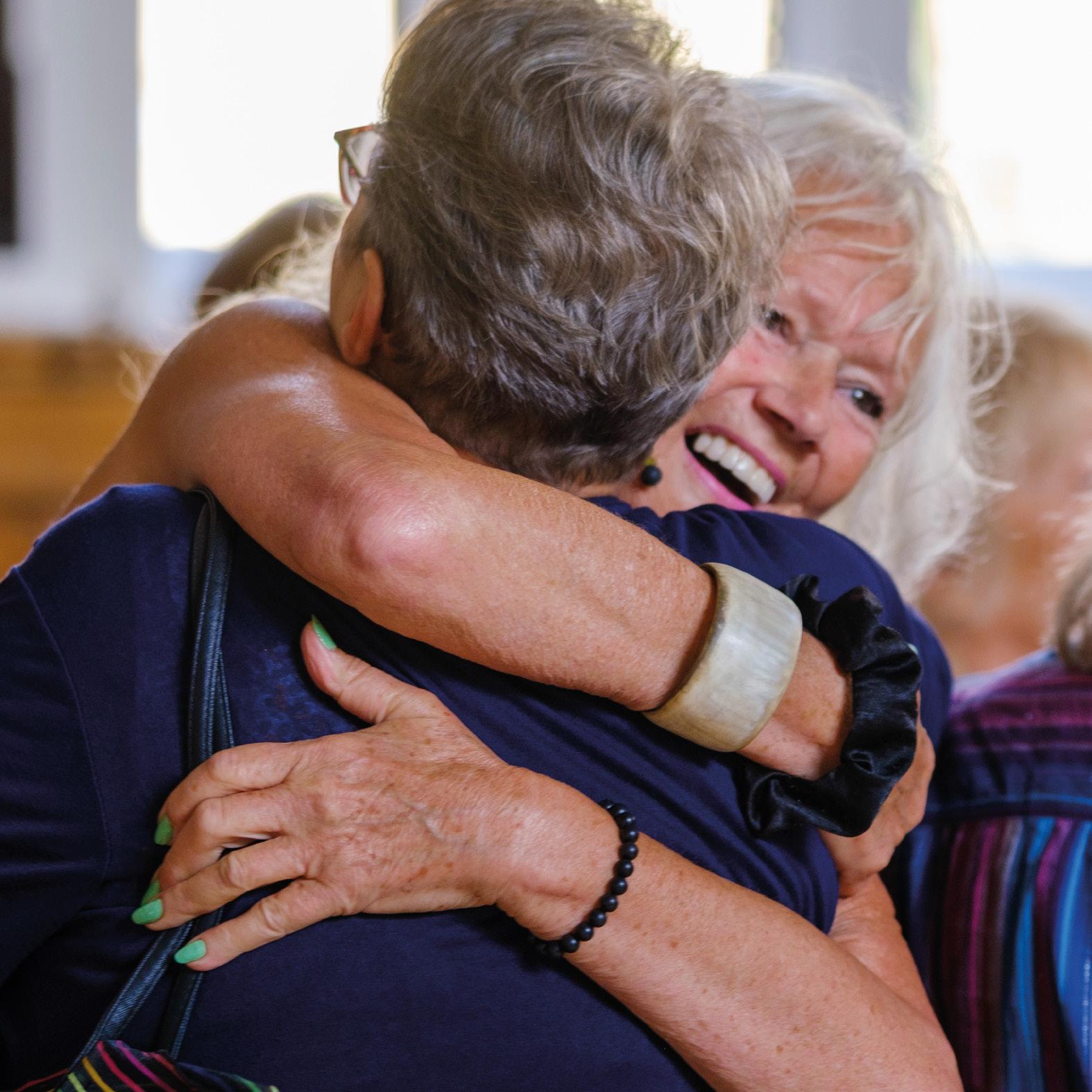
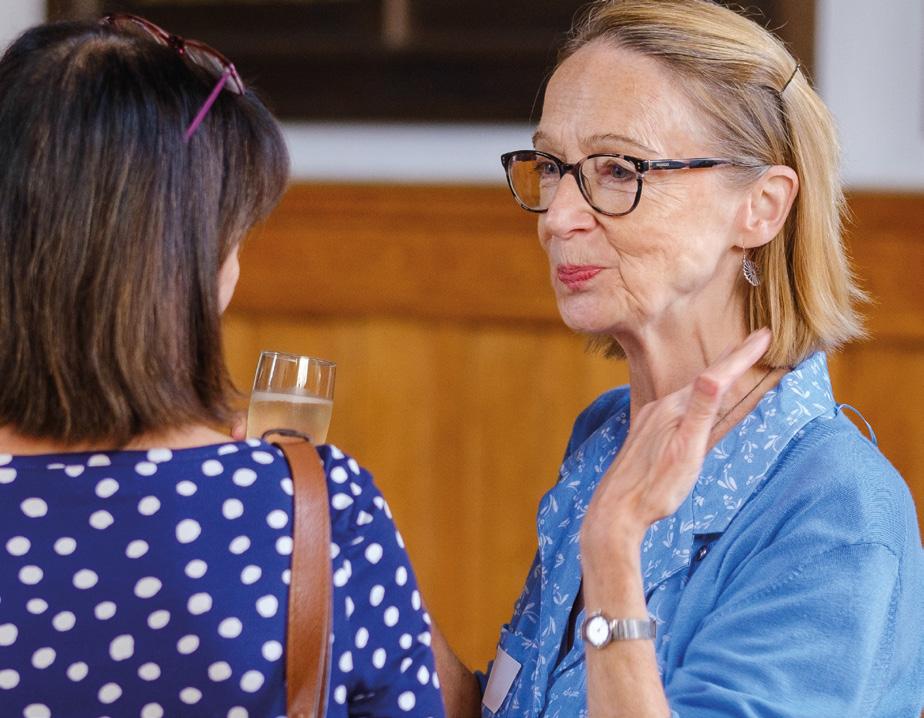
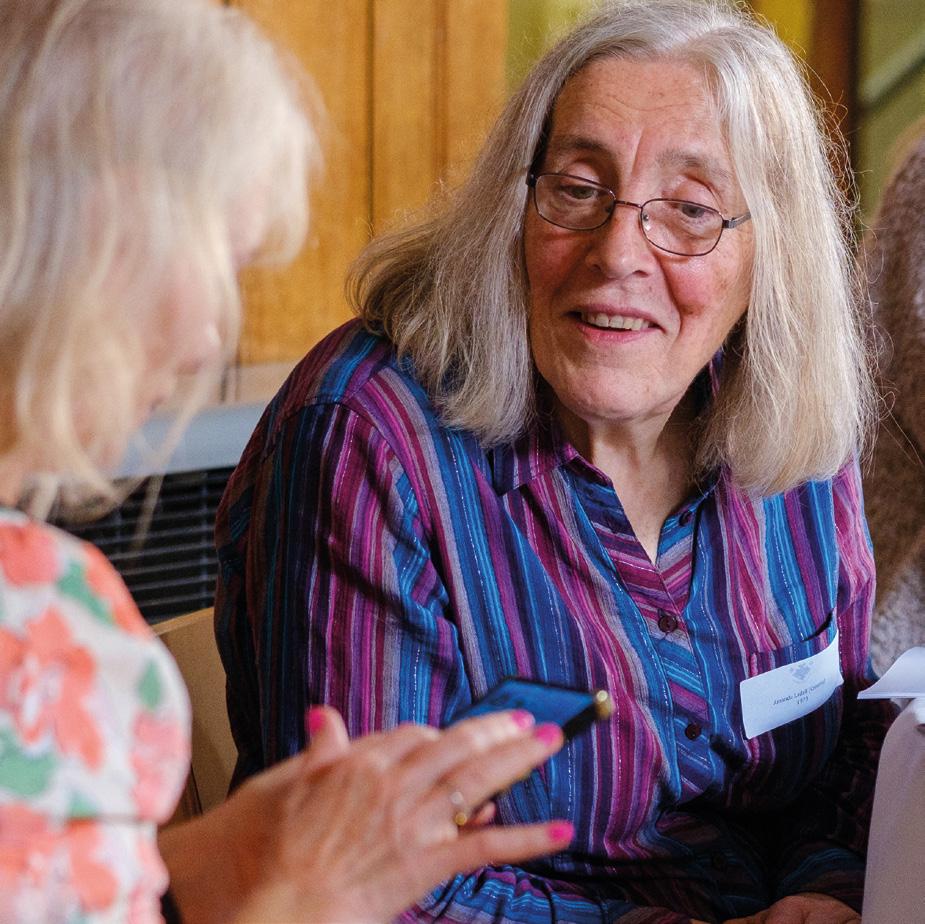
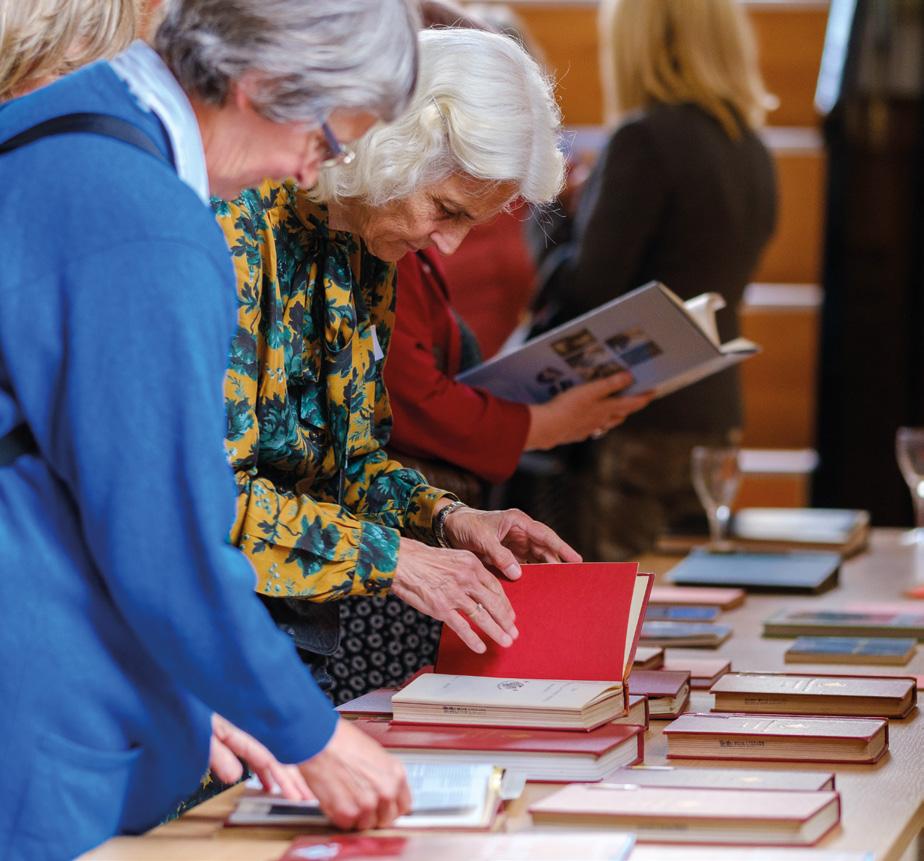
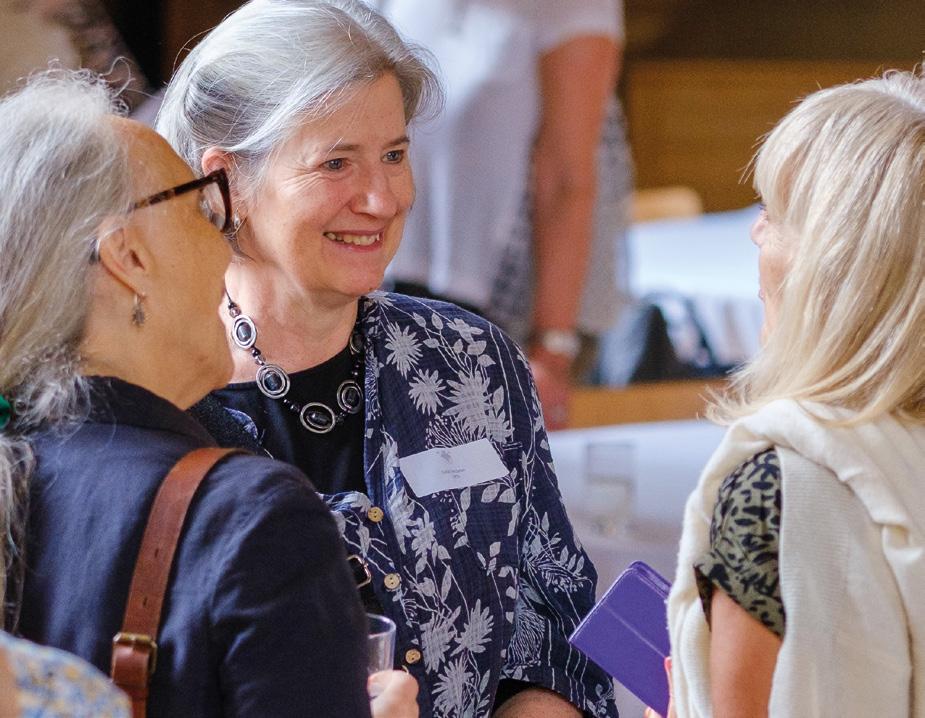
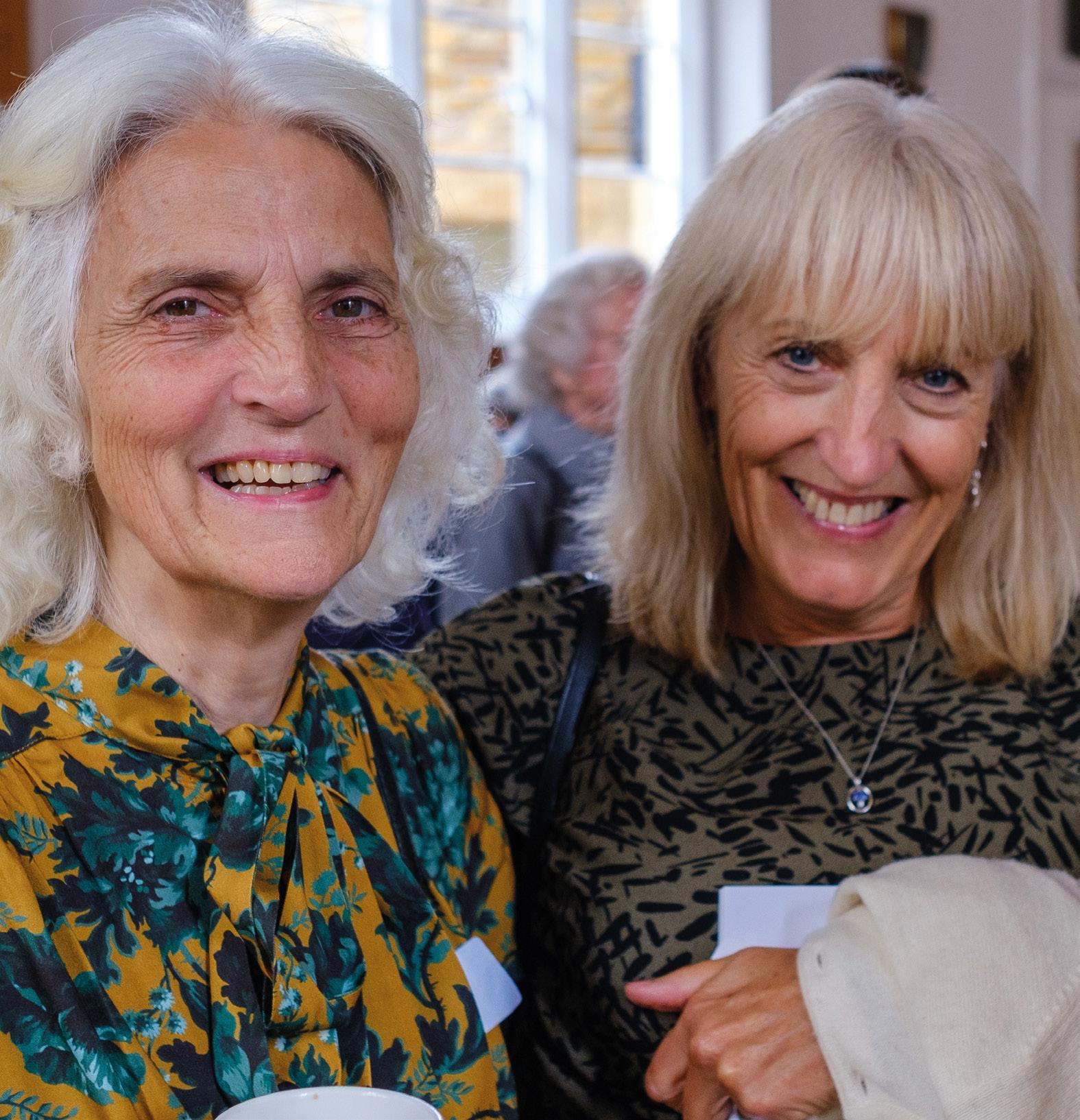
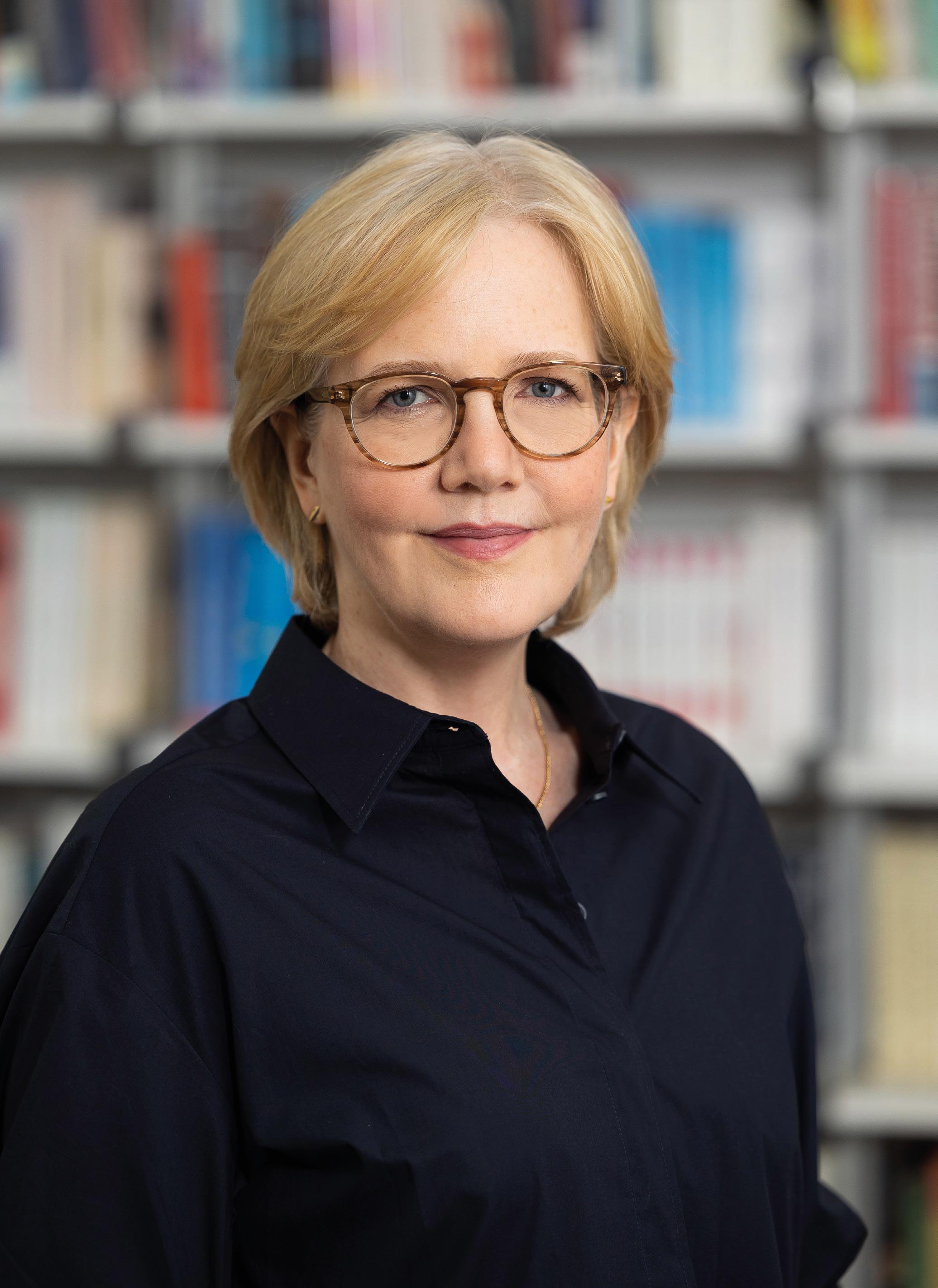
Zoë Pagnamenta (Class of 1987) has been working in publishing since 1992. After several years in the New York offices of the Wylie Agency and Peters Fraser and Dunlop, she founded her own eponymous agency in 2008. In 2023, she cofounded a new agency, Calligraph, where she is a Managing Partner. Among her notable clients are renowned authors such as Priya Parker, Edmund de Waal, Hisham Matar, and Hermione Lee.
Here, Zoë shares her extensive knowledge of the literary industry, provides insights into the publishing business, and reminisces over her time at Godolphin.
What are your favourite memories from your time at Godolphin and Latymer?
Drama classes in the Hall and school plays with Mr Fitzmaurice. A Level History classes with Mrs Stanier. O Level Biology with Mrs Bearman, often with her big butterfly, tie-dye silk scarf sweeping behind her.
Much laughter with friends. This included a Music class in the Sixth Form in which a mostly unmusical bunch formed a band, The Clangers. We had t-shirts made. We were appallingly, unashamedly bad, with one key member, Lucy Cregeen, who could actually read music, at the piano, or perhaps Xanthe Steen was at the piano and Lucy conducted (someone conducted); we had an assembly performance, in which we played ‘When I’m 64’ very slowly. I remember thinking Mr Escott, the Music teacher, was a good sport for allowing us to take our General Music class and make of it what we wanted.
Rosemary Sandberg, the mother of Mary Sandberg, a book editor and later a well-known literary agent, came to speak to us on Careers Day, showing us different book covers and talking about her work in publishing. She opened a window into that world for me, and I still remember her talk.
Could you share a memorable experience or success story from your career as a literary agent that particularly stands out to you?
I remember a publisher rejecting a proposal after saying they admired it, but they were on the fence. I phoned them and said they really should meet the author; they were the right person to publish her, and they said that this was very unorthodox, but OK, they would meet with her. They ended up acquiring the author’s book back then, and they are still working with her, enthusiastically, three books and many years later.
I also think approaching someone who has an interesting story to tell but has never considered doing a book, getting them to write one, and then seeing it well-received has been very satisfying.
Your career trajectory has seen you transition from working in publishing to establishing your own literary agency and now being a Managing Partner at Calligraph. Could you share some insights into what motivated each of these transitions and how they have shaped your approach to agenting?
I interviewed at a literary agency a couple of years after moving to NYC. I had never really thought about agenting as a career before then. I worked for two agencies before founding my own. I ran my own agency for fifteen years because it seemed like the simplest and smartest thing to do at the time I started it, and having worked at two agencies where I had had to leave my contracts behind when I moved, I knew that having some ownership over my clients’ contracts was the best way not to let that happen again. After so many years of working solo or as part of a very small team, I decided I wanted to have a business partner and a larger team of colleagues, so I joined forces with an agency that I had long admired and been friendly with, and we formed a new, larger agency together.
To me, agenting is all about being a good and trustworthy advocate for your clients, and believing in what you have to sell makes it a lot easier to sell it.
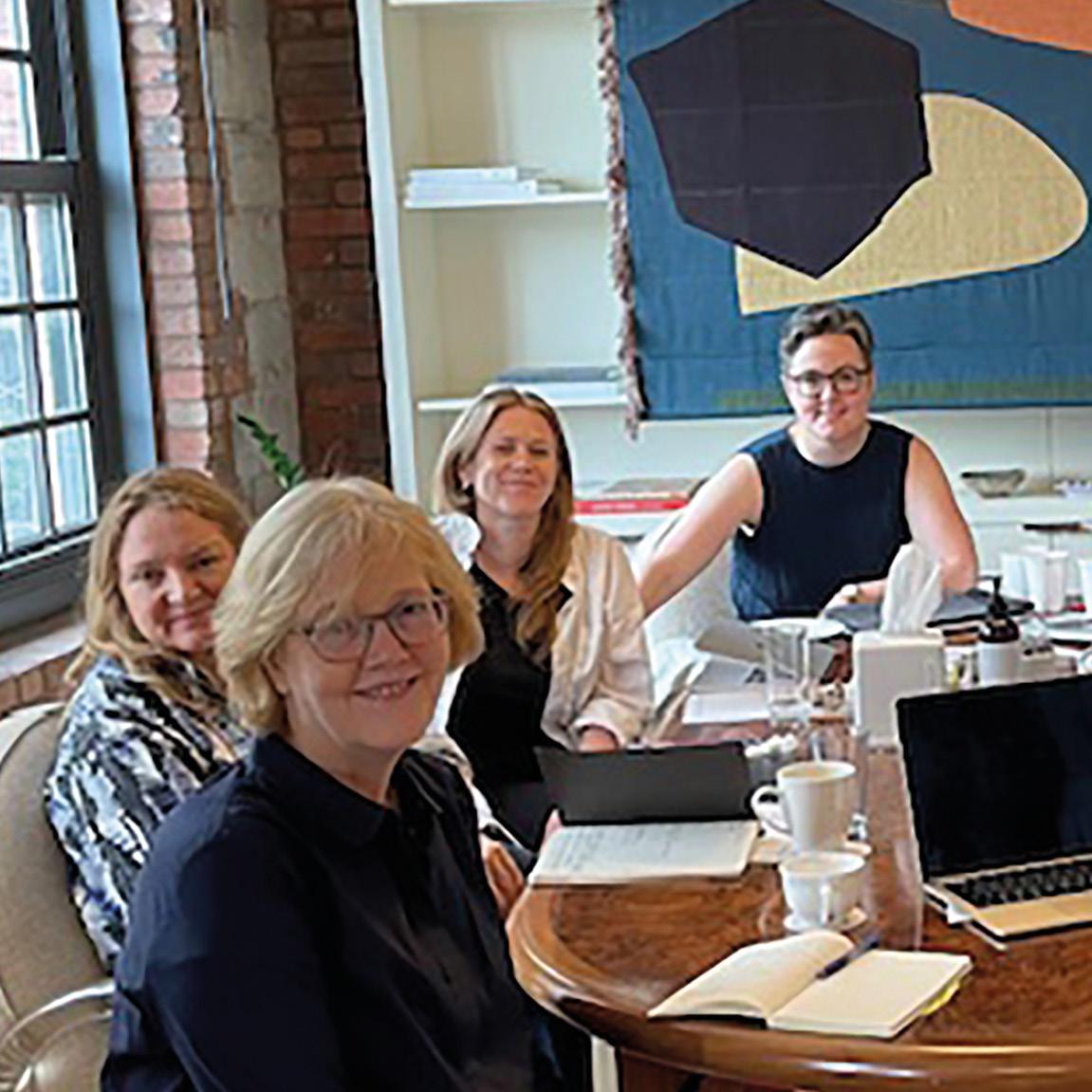
For aspiring writers seeking representation, what advice would you offer in terms of finding the right agent and navigating the publishing journey effectively?
Don’t give up. Don’t write an overly long cover letter. Less is more. Publish your work in some interesting places. Workshop it in writing groups or on courses if you can. Get others’ opinions and feedback before you approach agents. Approach agents who you know do the kind of book you are writing. Look at the acknowledgements in some of your favourite books and see if you can identify the agent.
With your extensive background in both US and UK publishing landscapes, how do you navigate the differences between these markets when representing authors who may appeal to both audiences?
I enjoy interpreting the differences between the two readerships and preparing a UK author’s proposal for a US submission or considering how a US project might read to a UK audience. The cover designs are often surprisingly different. I can often guess at which projects a UK editor might consider ‘too American’ or a US editor might call ‘too British’, but it’s great when the quality of the writing and the freshness of an idea can break through that barrier and surprise you.
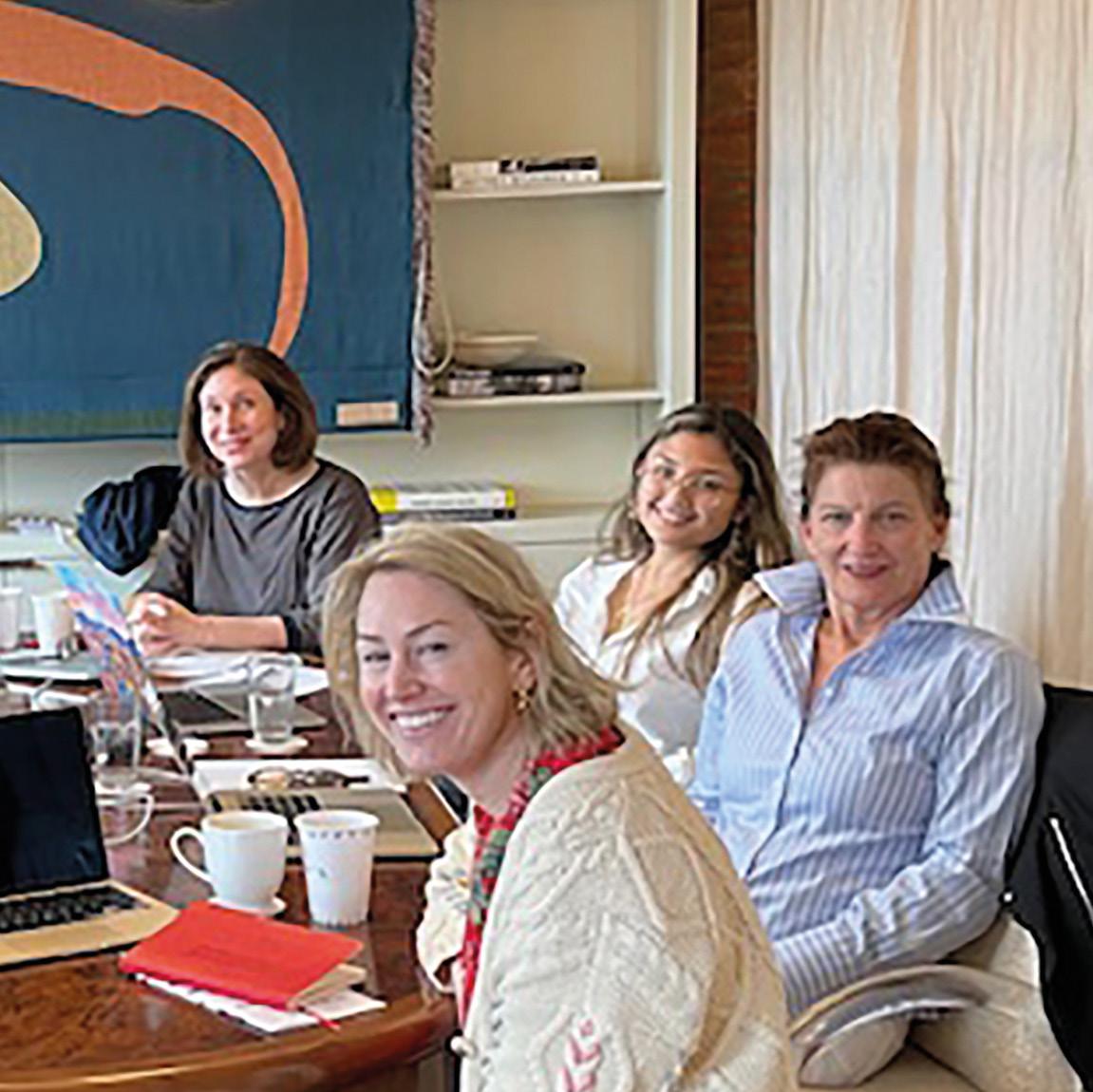
How does it feel to represent such big literary names such as Peter Frankopan and Alain de Botton?
With many of my UK writers, like those two, I am lucky enough to champion them in North America on behalf of their brilliant UK-based agents, so those two particular names aren’t authors that I took on. It’s a thrill and an honour to work with all my clients, UK and US, and, in many cases, to have been involved in their work since the very first manuscript or proposal. It’s wonderful to work with authors over a period of many years.
In your opinion, what are some key qualities or characteristics that distinguish a successful book proposal or manuscript? How do you work with authors to refine their ideas and ensure their work stands out in the competitive publishing landscape?
A good proposal should be clear, well-thoughtout, and have an opening that makes you sit up straight – the idea, the writing (hopefully both) –from the get-go. The author should have thought about how they’d help to market and promote the book. US publishers are always talking about the challenge of the “discoverability factor” these days; you need to think of ways to get your book noticed.
Looking ahead, what excites you most about the future of publishing and literary representation, and what do you hope to achieve in the coming years with Calligraph and your clients?
It’s a daunting time, with the arrival of AI, for example, and hybrid working since the pandemic, which has already considerably changed the way business works. I think discovering new writers is always exciting, and I think people are reading more authors in translation than they were when I started in publishing. I’ve been enjoying working with more colleagues and sharing in one another’s projects and successes.
I think if Calligraph can continue to represent great writers, get them good deals and solid, lasting publishing relationships, and be trusted agents whose authors feel well-looked-after and with whom publishers enjoy doing business, then we’ll have succeeded!
Do you have anything you wish you could tell your younger self? What would you say to those who have just left Godolphin and Latymer?
Enjoy your long school and university summers, travel, work, and explore new experiences and new places, concentrate in your foreign language classes, and read long books when you have more time than you may have when you are further along in life. Always maintain a sense of humour about yourself, don’t be intimidated, stand firm in what you believe in, including your own abilities, work hard but not all the time, and realise how lucky you are to have had such a good education.
I felt like we had a very good year, us now Old Dolphins who arrived as young Dolphins in September 1980 and left in July 1987. I am still close to several of my friends from Godolphin, and we relish getting together and sharing stories of our lives back then and our lives now. There’s such a bond there. I loved school, and I feel hugely lucky to be able to say that.
Over the February half-term break, Year 9 students went on an unforgettable skiing trip to Vermont, US. Alongside their alpine pursuits, they were able to reconnect with Old Dolphins Jessie, Orla, Aurelia, and Susanna, all currently studying at Harvard University. They kindly gave our current Dolphins a tour of the campus and offered fantastic insight into what it’s like to study in the US.
Jessie
My name is Jessie and I graduated G&L in 2021, and have just finished my junior year at Harvard studying Maths.
My choice to go to the US wasn’t so much from a desire to move country, but rather to continue exploring different fields academically without being tied down super early. I always knew I loved Maths, but have been able to balance my time here taking classes in Economics, Philosophy and Government, amongst many other disciplines. I think that taking the IB at G&L prepared me to appreciate that depth in my concentration (Major), whilst also celebrating the importance of being well-rounded in several other topics. I quickly discovered that the stuff I learnt in Maths doesn’t always make for great dinner party conversation (topology convo
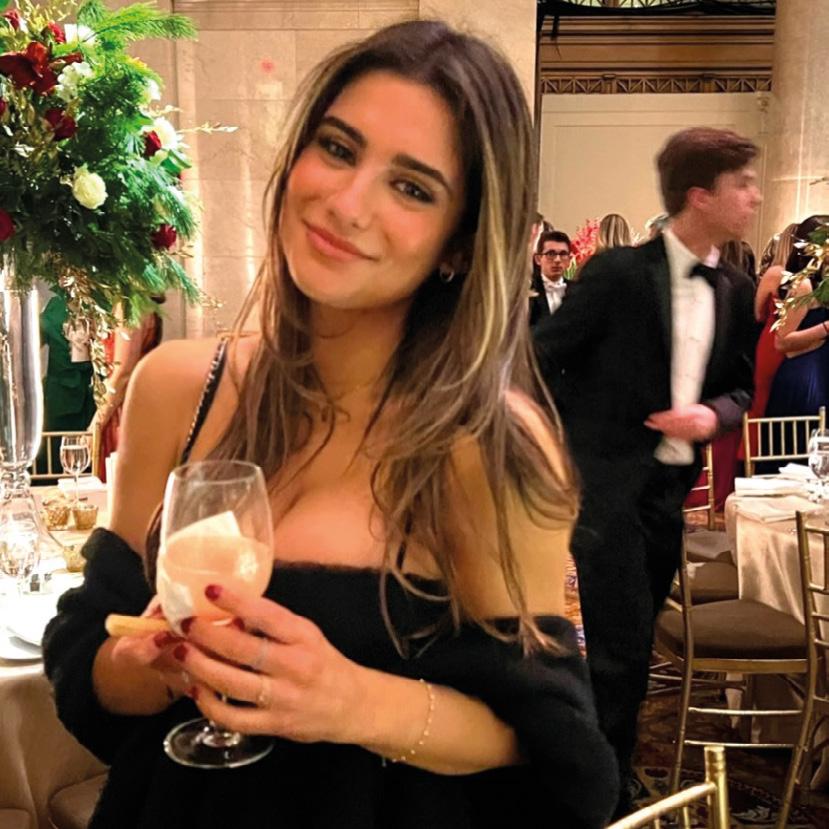
doesn’t often land haha) so am forever grateful to the Liberal Arts model for versing me in more tangible topics that I find exciting, while still allowing me to go deeply into what I really love.
To be totally honest, I did not anticipate how great the balance of academics and social life would be. For every late night spent grinding on a problem set in the 24-hour library, there have been several laughter-filled, wonderful memories made with friends. I love the sense of tradition that exists at Harvard, and the feeling of participating in these century-old rituals is really quite unparalleled. I must say that whenever prompted to reflect on my favourite thing about college, I always reply — in a truly non-cliché way — it is the student body. What unites the students here is how both interesting and interested everyone is, and I believe that G&L sets up this important balance quite well.
Reflecting on how G&L prepared me to maximise my time at college, it is less so the content of what was learnt, than how G&L goes about learning. Stay curious, ask genuine questions, listen more, go to office hours, always follow through with yourself and with others, be accountable to your views and don’t fall into groupthink, and HAVE FUN! Laugh, make memories, keep a diary. I can’t believe I only have one year left, and so am so very excited for all of you graduating Upper Sixth to begin your journeys at college soon.
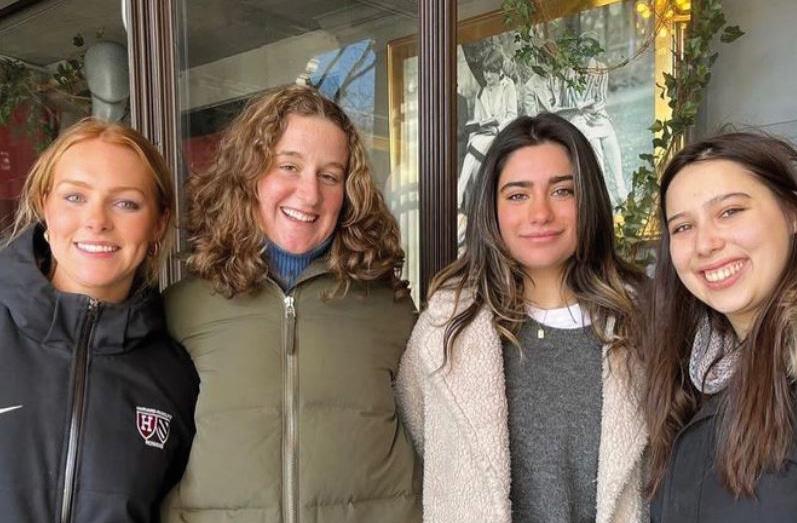
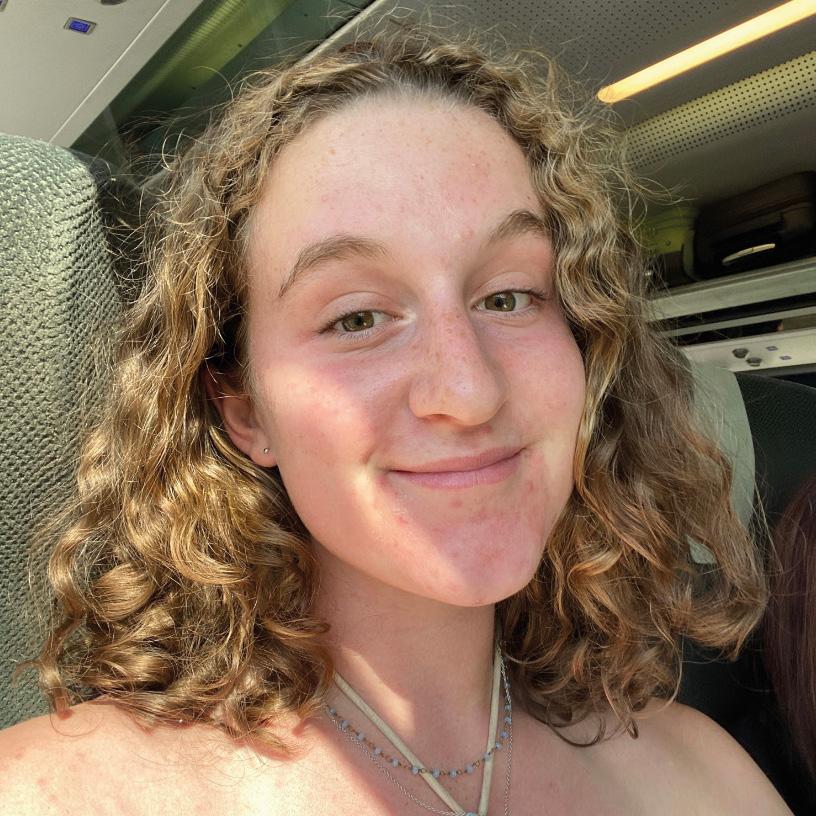
I’m Aurelia and I graduated from Godolphin in 2021. I’m currently pursuing a degree in Cellular and Molecular Biology with a Minor in French at Harvard University where I’m about to enter my third year.
I think the biggest misconception about Harvard is that everyone here is a genius. There are definitely a couple of people who warrant that title – the people who can easily complete the most complex of calculations, the people who always have interesting, insightful things to say about this week’s reading, the people who just ‘get’ organic chemistry with seemingly no effort. It is seriously impressive to watch. But the biggest takeaway for me has been that most people are just hardworking and passionate about what they are studying. They aren’t superhuman; they just care deeply about what they are doing and pursue it with fervour. Yes, you probably aren’t going to be able to compete with the very top people in your class, but I have found that hard work can take you almost all of the way. That has been very empowering.
We are thrilled to announce the upcoming launch of Godolphin Connect, an innovative online platform designed to keep the Godolphin and Latymer community connected and informed. This platform will serve as a dynamic hub for all things Godolphin, offering a range of features to Old Dolphins.
One of the cornerstone features of Godolphin Connect will be the Godolphin and Latymer Alumnae Mentoring Scheme, or GLAM. GLAM is specifically designed to facilitate meaningful connections between Old Dolphins seeking mentorship and those looking to offer support. This initiative will ensure that the bonds formed during your time at school continue to grow and evolve, providing guidance long after graduation.
Through Godolphin Connect, you will be able to:
• Connect with fellow alumnae and reconnect with old friends, make new connections, and expand your professional network within the Godolphin and Latymer community.
• Share updates about your personal and professional achievements, keeping the community informed about your latest endeavours.
Through GLAM you will be able to:
• Find a mentor that will support and guide your occupational endeavours.
• Become a mentor, fostering supportive relationships that encourage personal and professional growth.
Godolphin Connect and the GLAM initiative are part of our ongoing commitment to support our alumnae, providing a platform for networking, career development, and community building. The platform will be launched in the coming months, and we will be sending out detailed instructions on how to join and make the most of Godolphin Connect.
If you are interested in taking part or would like to hear more, please contact us at development@godolphinandlatymer.com.

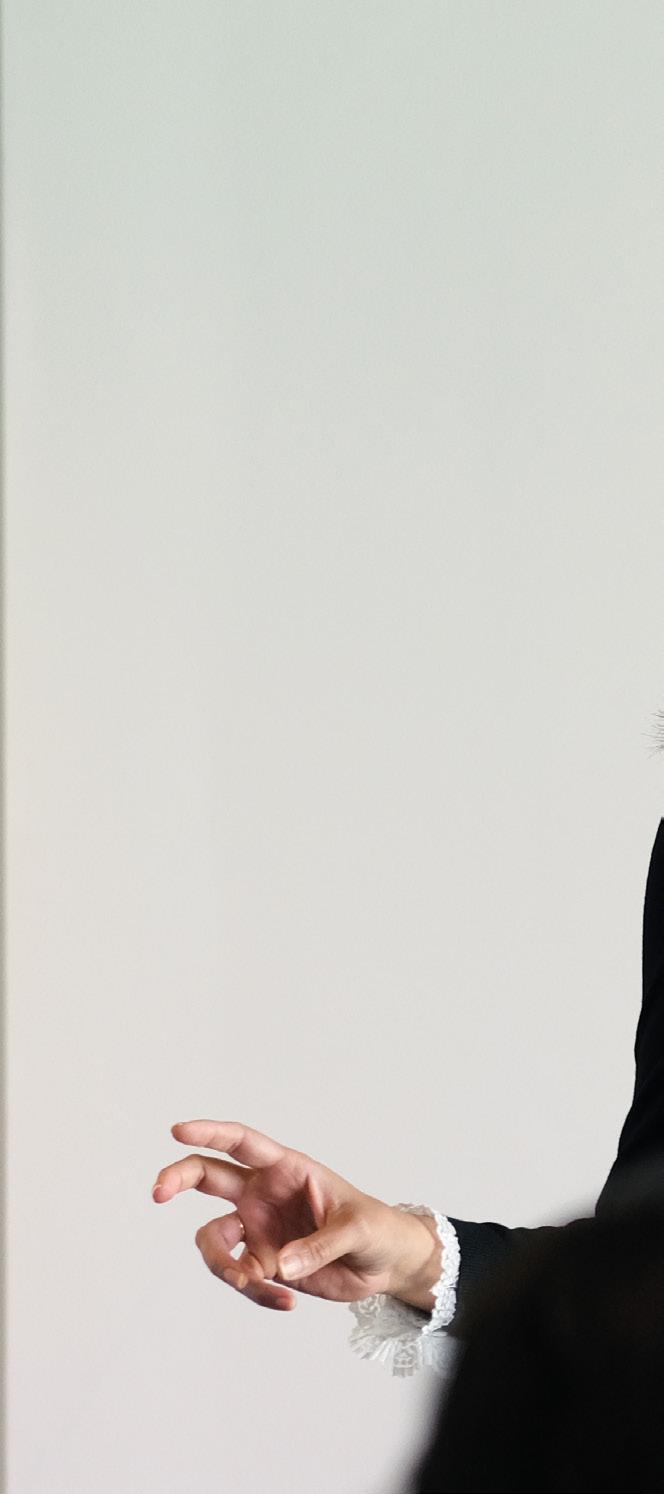
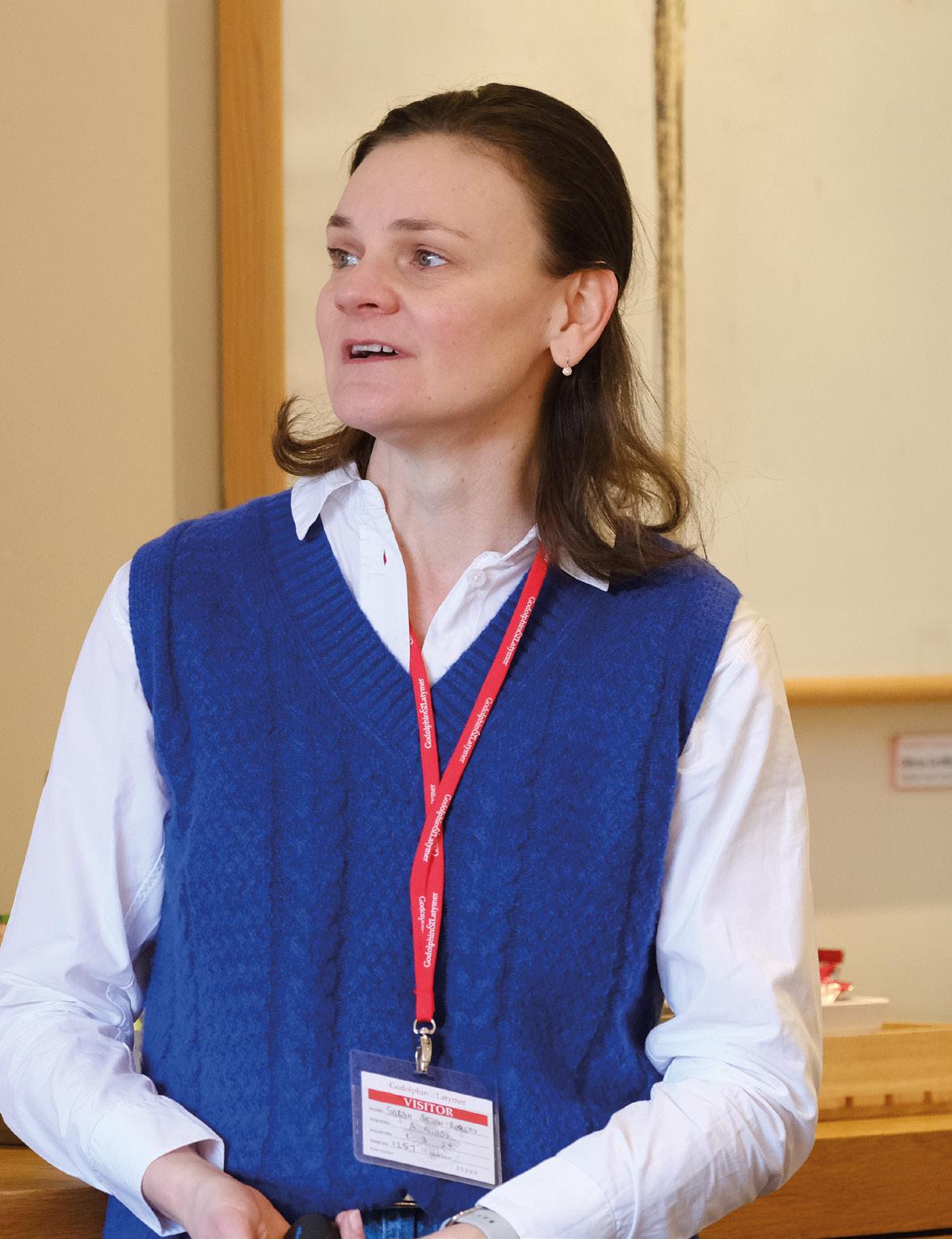
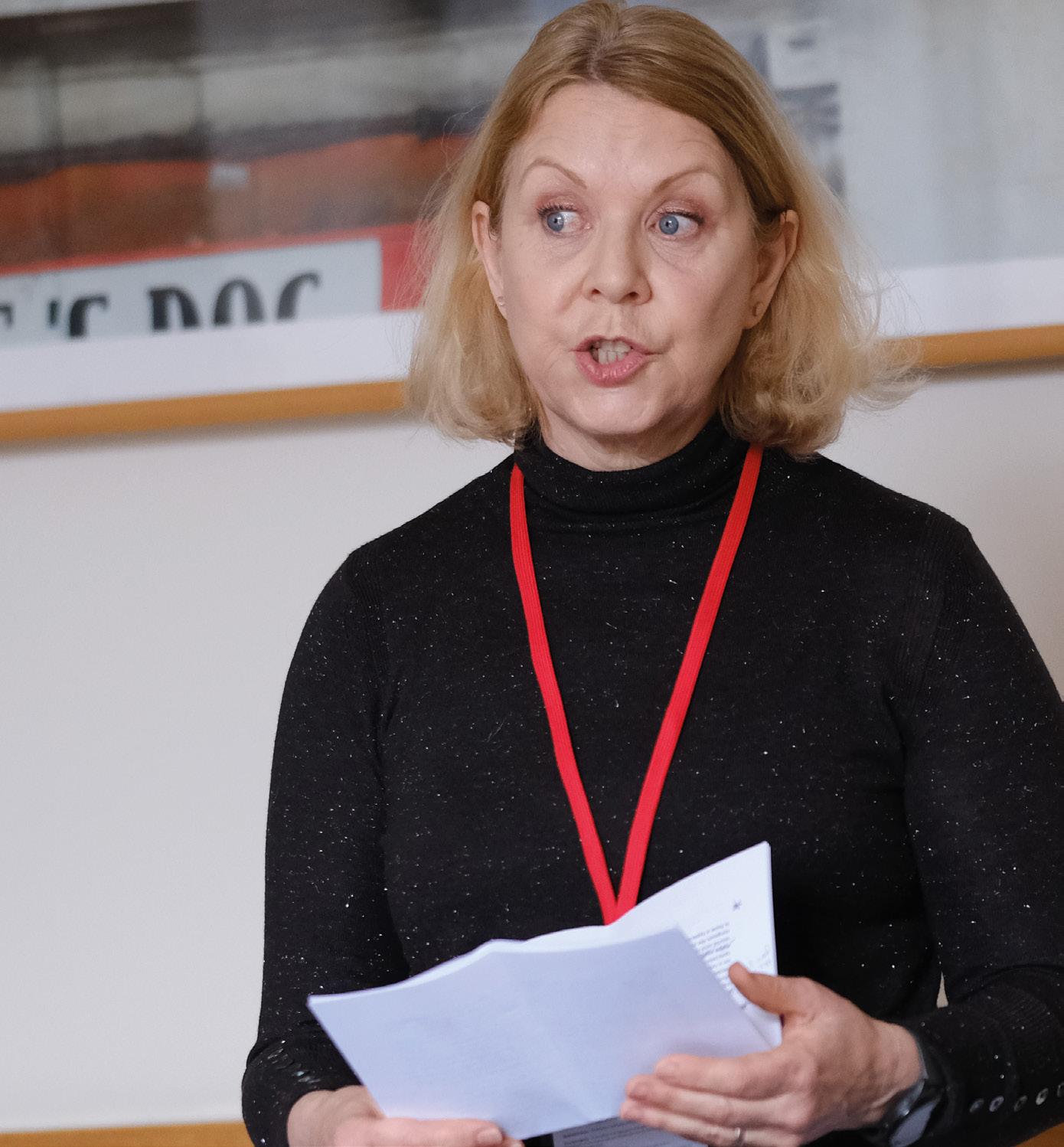
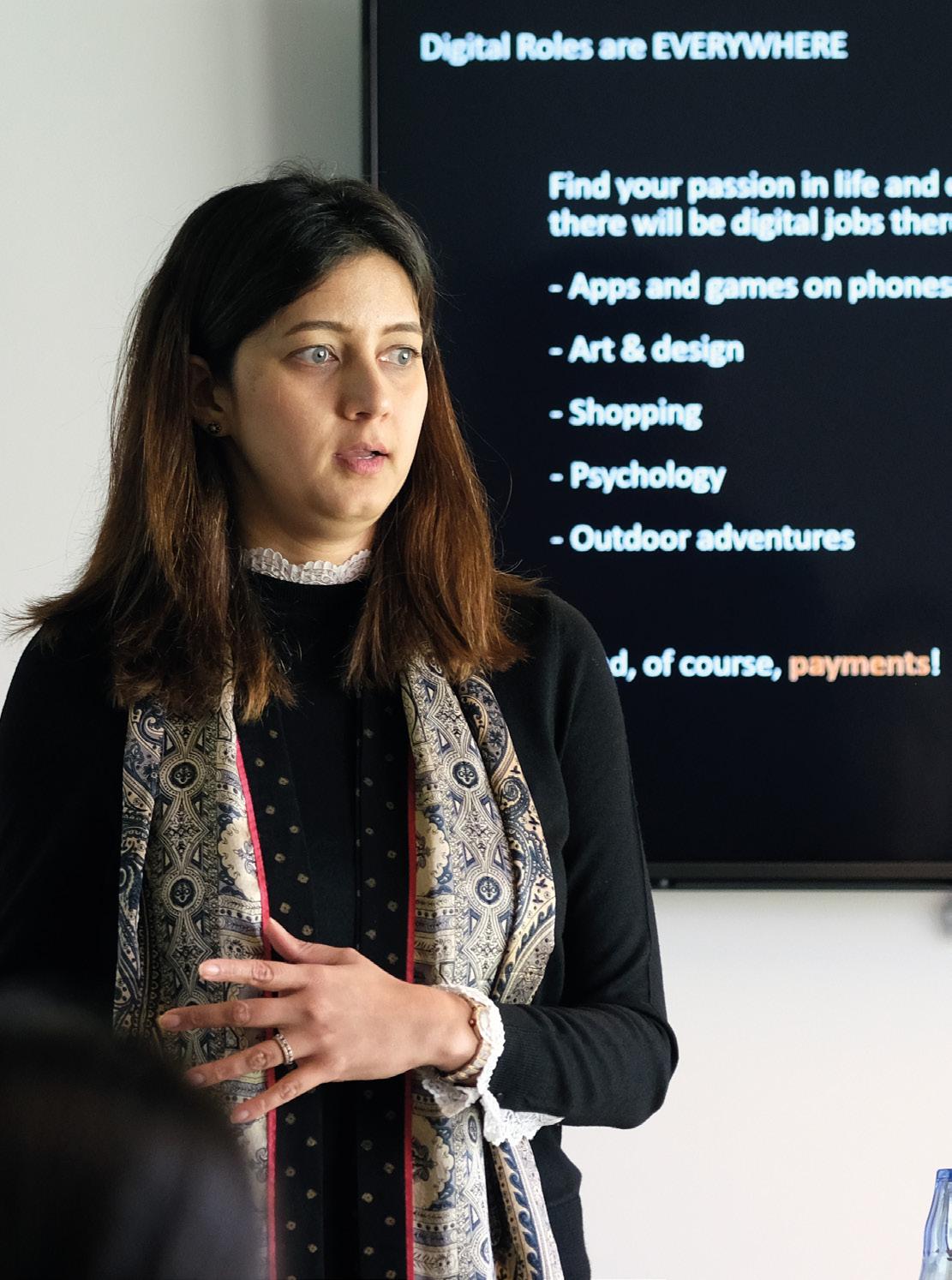
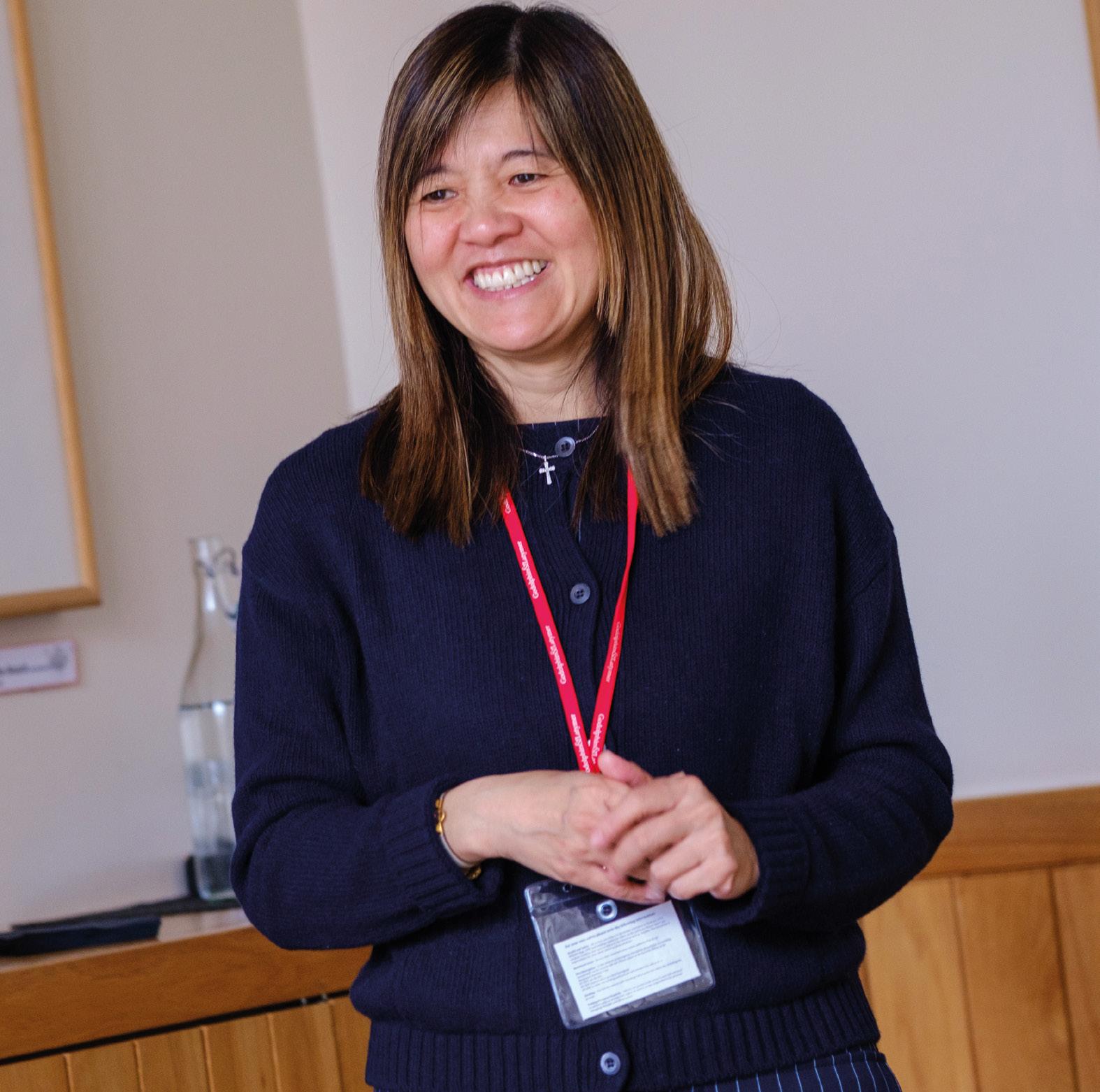
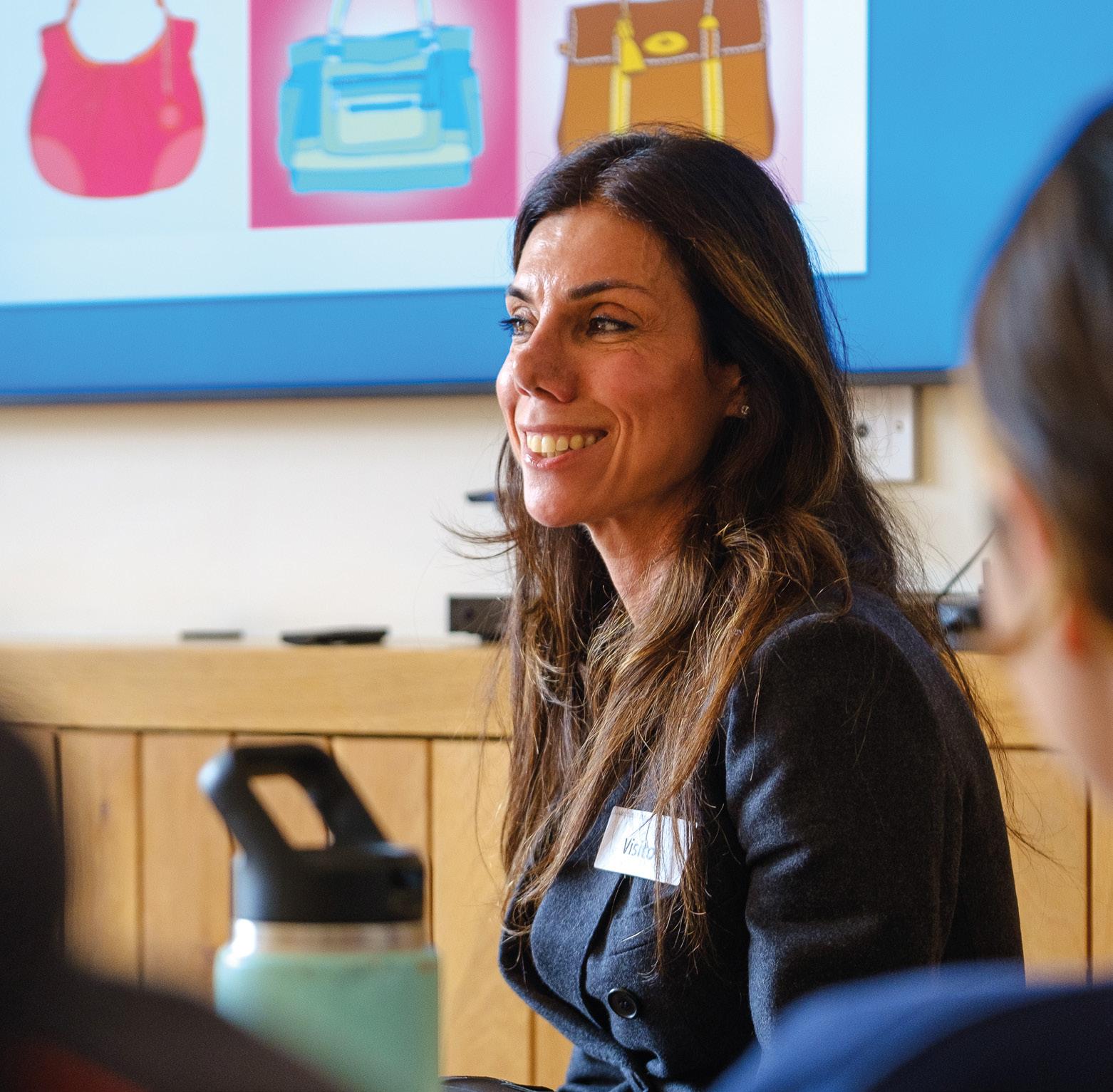
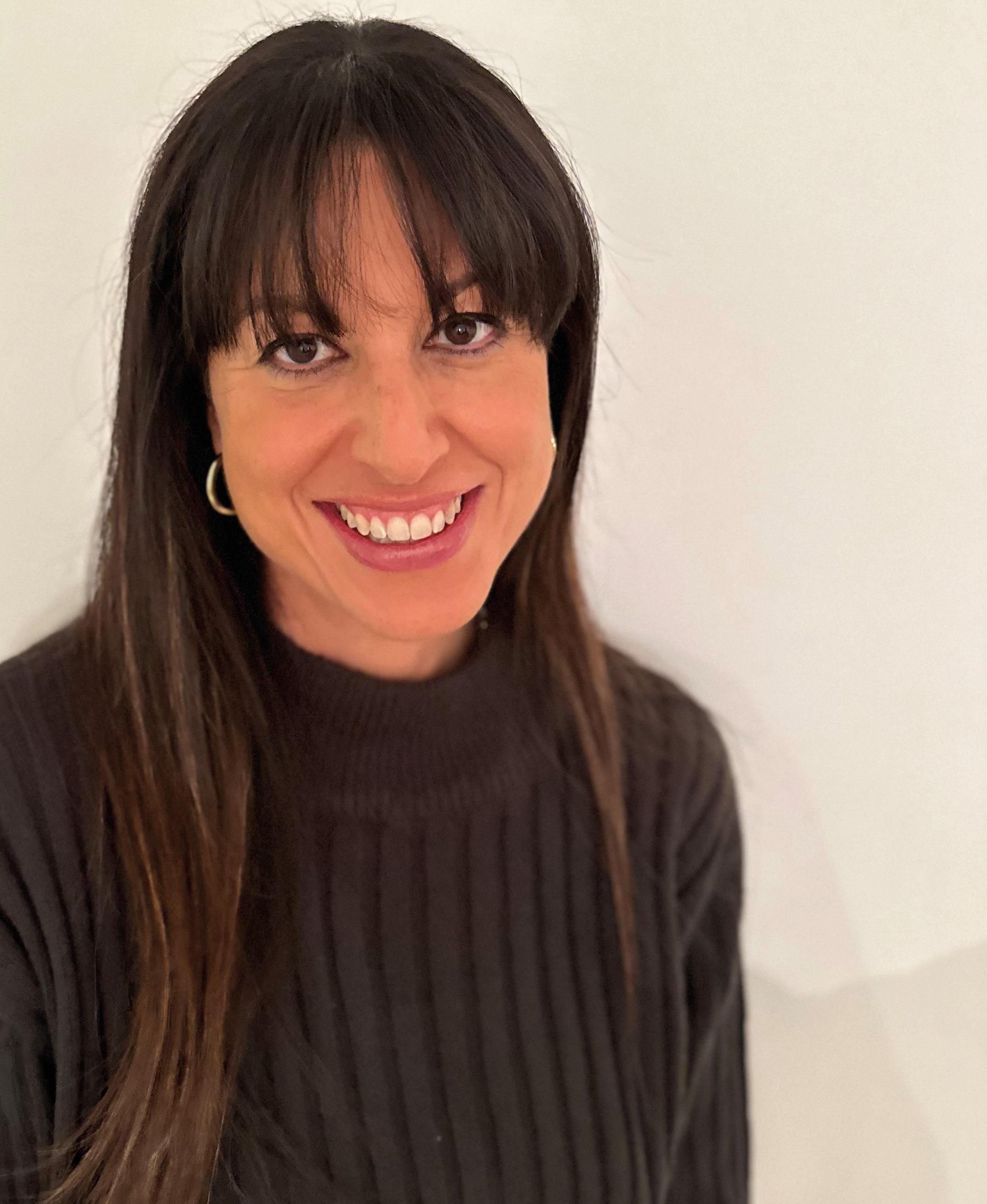
Nia Janis (Class of 1995) has spent her days in London’s West End since her time at Godolphin. Her early career saw her producing at the Fringe in London and Edinburgh, as well as working at the RSC and the Royal Court.
Nia is now a founding Director of Playful Productions, one of the largest independent theatre production companies in the UK. She is Executive Producer of Moulin Rouge! The Musical, MJ The Musical, and forthcoming project Wild Rose. Her producing includes Groundhog Day and A Little Life, and her work in general management spans Wicked; Moulin Rouge! The Musical; and Come From Away. She has overseen dozens of productions, including Kinky Boots, Shrek The Musical, American Buffalo, and The Audience.
Now, she joins us for an interview, delving into her life at Godolphin and what came after.
When you think back to your time at Godolphin and Latymer, which moments bring the biggest smile to your face?
There are too many to choose from! My overriding memory is that whatever was happening during my time there, which, of course, was such a seminal period full of ups and downs, I was always surrounded by a brilliant group of friends and supported by a committed group of teachers. I worked hard, but I also had so much fun.
How do you feel you have changed, and what important lessons have you learnt since leaving Godolphin and Latymer?
I don’t know that I have changed very much as I was always pretty clear about the path I wanted to take and I am grateful that it worked out for me. I think G&L set me up to believe that if I aim high, I can achieve my goals, but I have definitely learnt that there are sacrifices along the way and therefore, you need to be clear about your priorities.
Would you mind sharing your experience receiving a bursary and how it affected your educational journey?
My family’s circumstances changed early on in my time at G&L and I was offered a bursary, without which I would not have been able to complete my secondary education there. This was handled by the school with a very light touch, which I was extremely grateful for.
From your early career producing at the London Fringe to your current role as director of Playful Productions, how have you seen the landscape of theatre and production evolve, and how have you adapted to those changes?
The industry is so different now to when I started – from the huge cuts in arts subsidy which have had such a detrimental effect, to all the myriad of changes that have happened post-pandemic, and everything in between. I often joke that when I first started, theatre employment contracts were never more than one page long; now they are
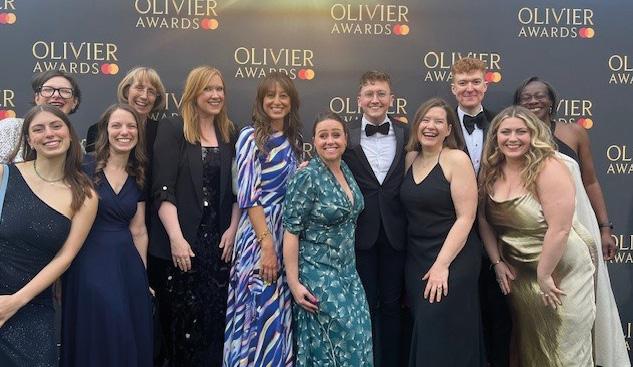
more like 40! So, in many ways, it has become a lot harder. Running a business and employing so many people means you need to remain nimble. The key for me has always been to identify and surround myself with brilliantly talented people.
You have had an incredibly impressive career. You started producing at the Fringe, then working at theatres such as Theatre Royal Haymarket, the RSC, and the Royal Court. Now you are a founding member of Playful Productions, where you are Executive Producer, Producer and General Manager for many West End shows. What were the key milestones or projects that significantly shaped your journey in theatre?
I would actually say that it is primarily key people who shaped my journey rather than anything else, because this industry is all about people. However, I would also say that working at the Royal Court was truly formative and has informed a lot of how I work as a producer –putting the shows, the artistry & the creatives front and centre (while, of course, keeping a beady eye on the budget!). Wicked is the show
I really cut my teeth on in the commercial sector and I am lucky enough to still be working on it eighteen years later. There are so many shows that hold a special place in my heart, but I think I would have to select Spring Awakening and Groundhog Day as standouts; they are both shows I am incredibly proud of creatively but also gave me some of my most treasured career moments.
As a member of the Society of London Theatre board and the Theatre Industry Wellbeing Committee, what initiatives do you believe are crucial for fostering a healthy and inclusive environment within the theatre community?
Communication is so important. We all have to learn from each other and we can only do that if we communicate well and truly listen. There are also many different ways to facilitate and enable a healthy and inclusive environment, including education programmes, outreach, and training; however, there certainly is no one-size-fits-all approach and we are continually learning and challenging ourselves to do better. The aim is
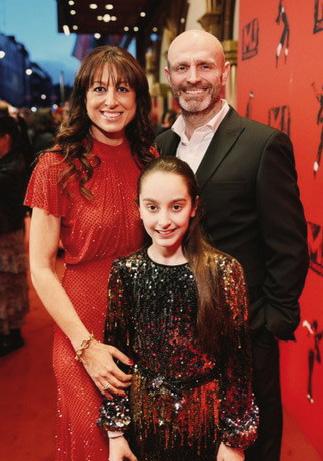
to be united by core values while celebrating unique differences.
In an earlier interview, you mentioned that Anna Wintour is your business idol. Is that still true? If so, why?
Oh gosh, I panicked in that interview, so embarrassingly; I don’t have a good reason! There is a producer I work closely with at the moment whose approach I really admire. She runs a large production company with multiple productions around the world and yet she manages to lead with a very personal touch. She is fair, decisive and very human in the way she approaches all situations. She puts people first while also being business-focused. She is a mother with a busy family life and balances the challenges of this and running a business extremely well.
What advice do you have for fellow graduates who are just starting their careers in the entertainment industry?
It’s not an easy industry to get into, but theatre always needs new talent. And once you are in,
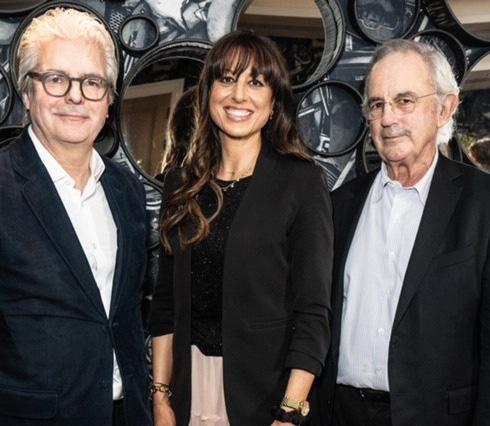
if you are good at what you do, it’s the most brilliant and bonkers place to be. So persevere as it’s worth it. But the hours are LONG…
Looking ahead, with projects like MJ and Wild Rose on the horizon, what aspirations and goals do you have for your future in the entertainment industry?
I am so lucky to have worked with some of the most talented and exciting theatre practitioners and that’s what it’s all about for me. Every time I see a brilliant piece of theatre, it inspires me to keep seeking out new collaborators and inspiring projects. I set Playful up fourteen years ago with my two business partners, and having been very focused on the business, I am now really enjoying being much more focused on the shows again. I love working on musicals, but I also love plays, so more of both is the plan…
Do you have anything you wish you could tell your younger self? What would you say to those who have just left Godolphin?
I don’t think my younger self would believe that I would get to do all the things I have done! So I would just say hold on to those dreams, choose your collaborators wisely, invest in yourself but also your team (both personally and professionally), and always have a plan B!
In January 2023 the students were given a late Christmas gift: a brand new library and dining area, as well as a refurbed Sixth Form common room! It’s been quite the journey since the project started back in the summer of 2022, and seeing it all come together was truly wonderful.
Imagine stepping into a library that’s not just about books, but about sparking creativity and teamwork. That’s exactly what’s been created – cosy corners for getting lost in a good read, and spaces where students can brainstorm and problem-solve together.
We’ve also spruced up our outdoor space with a brand-new library garden! Picture lush greenery, comfy seating, and the perfect spot to
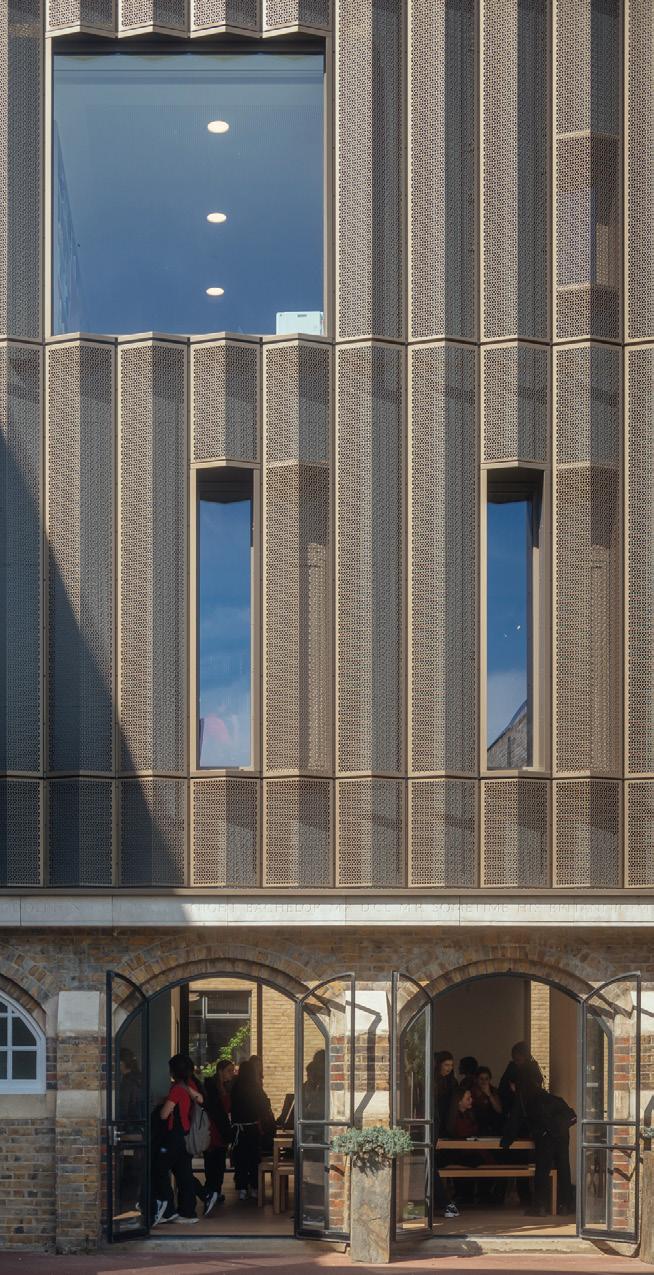
spend time with friends or enjoy a snack. It’s the ultimate relaxation spot right in the heart of the school.
The Sixth Form common room got a gorgeous makeover too, with a more modern feel, cosy nooks for revision and study, and new kitchen and cloakroom facilities. It’s the perfect place for Dolphins to find a moment’s peace in between IB and A Level lessons.
With easy access between the library and other key areas, we’re breaking down barriers and making it easier than ever to explore, learn, and grow. But don’t just take our word for it, here’s what Librarian Ed Benton had to say:
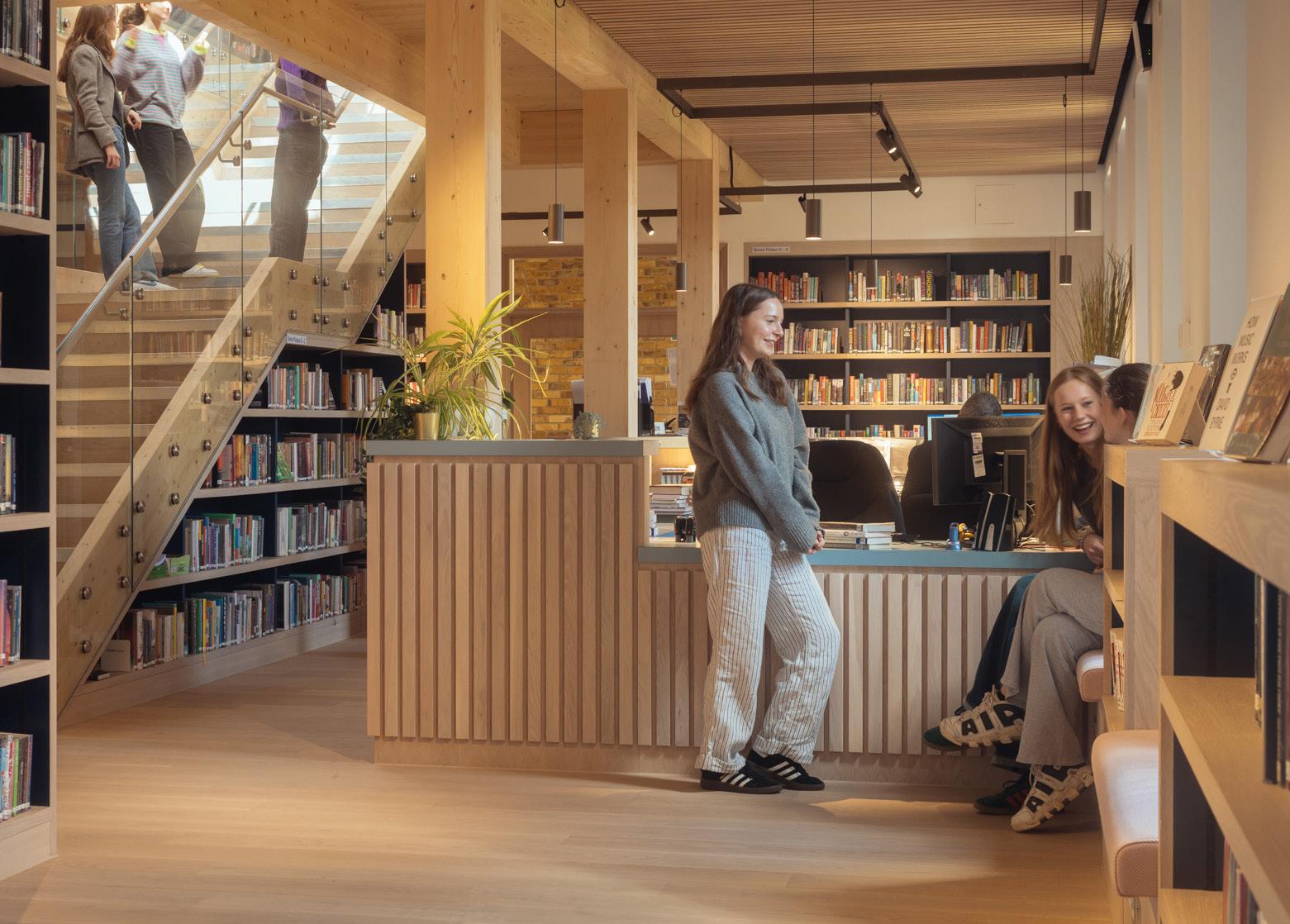
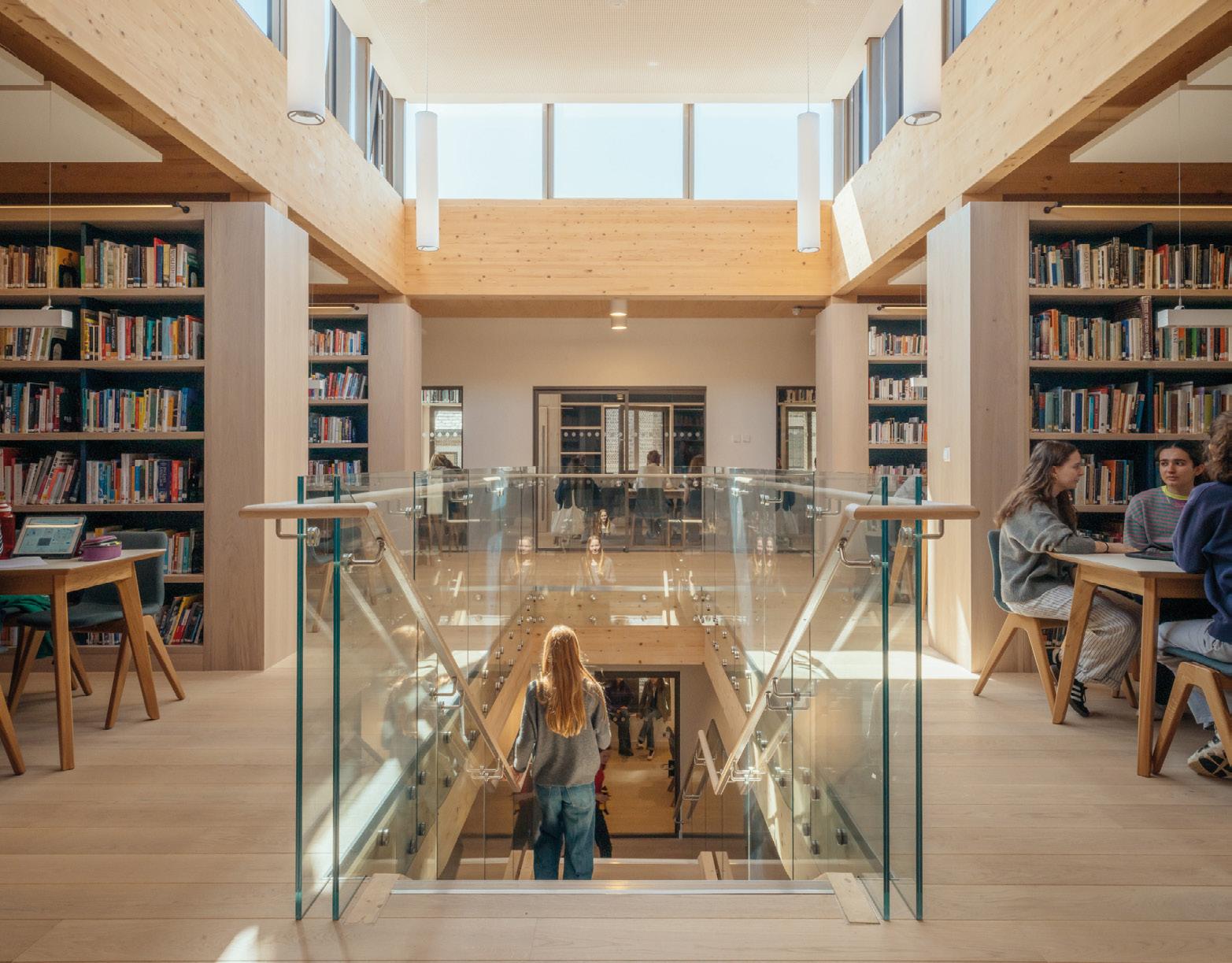
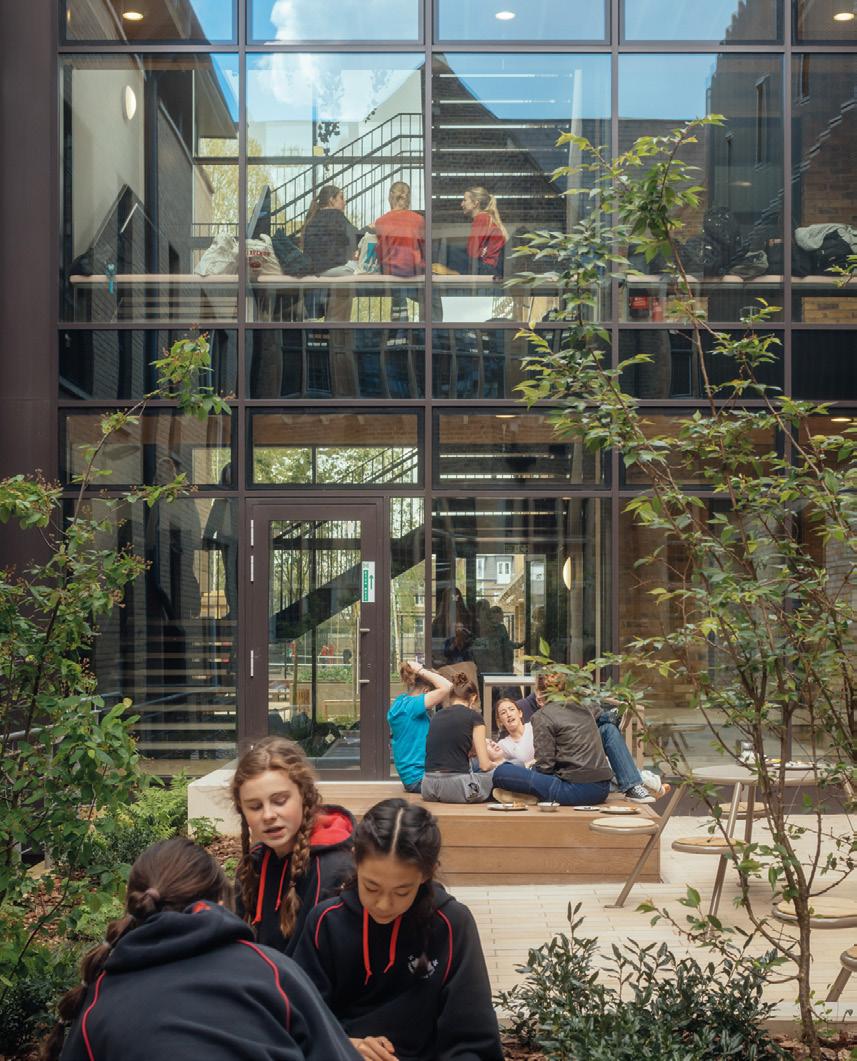
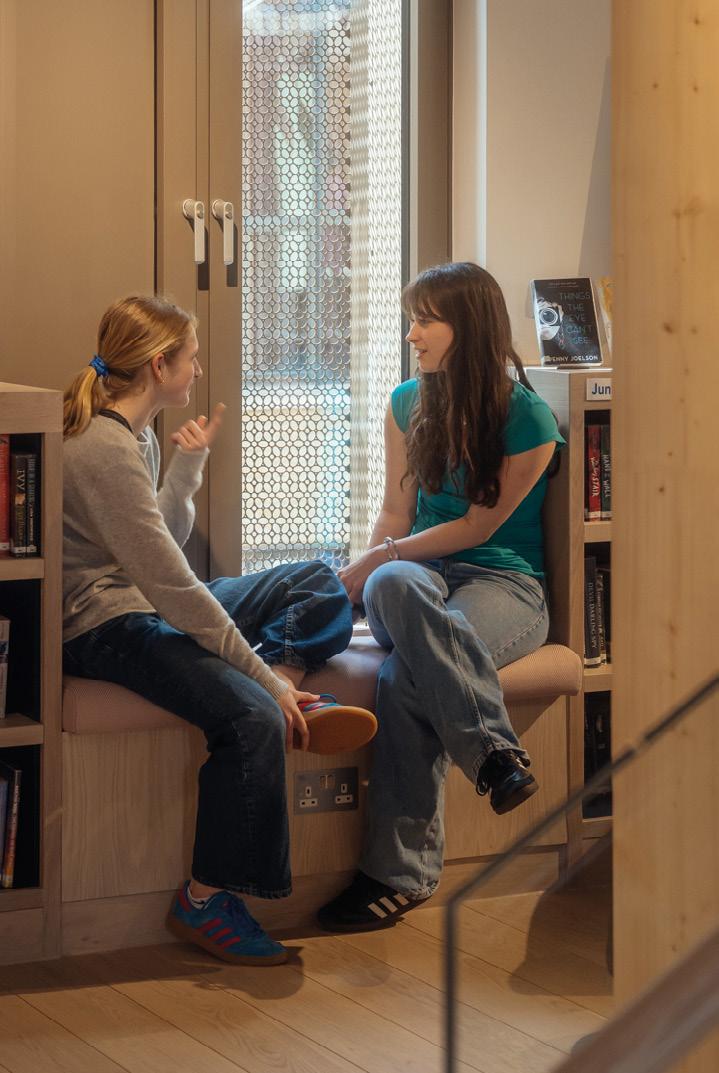
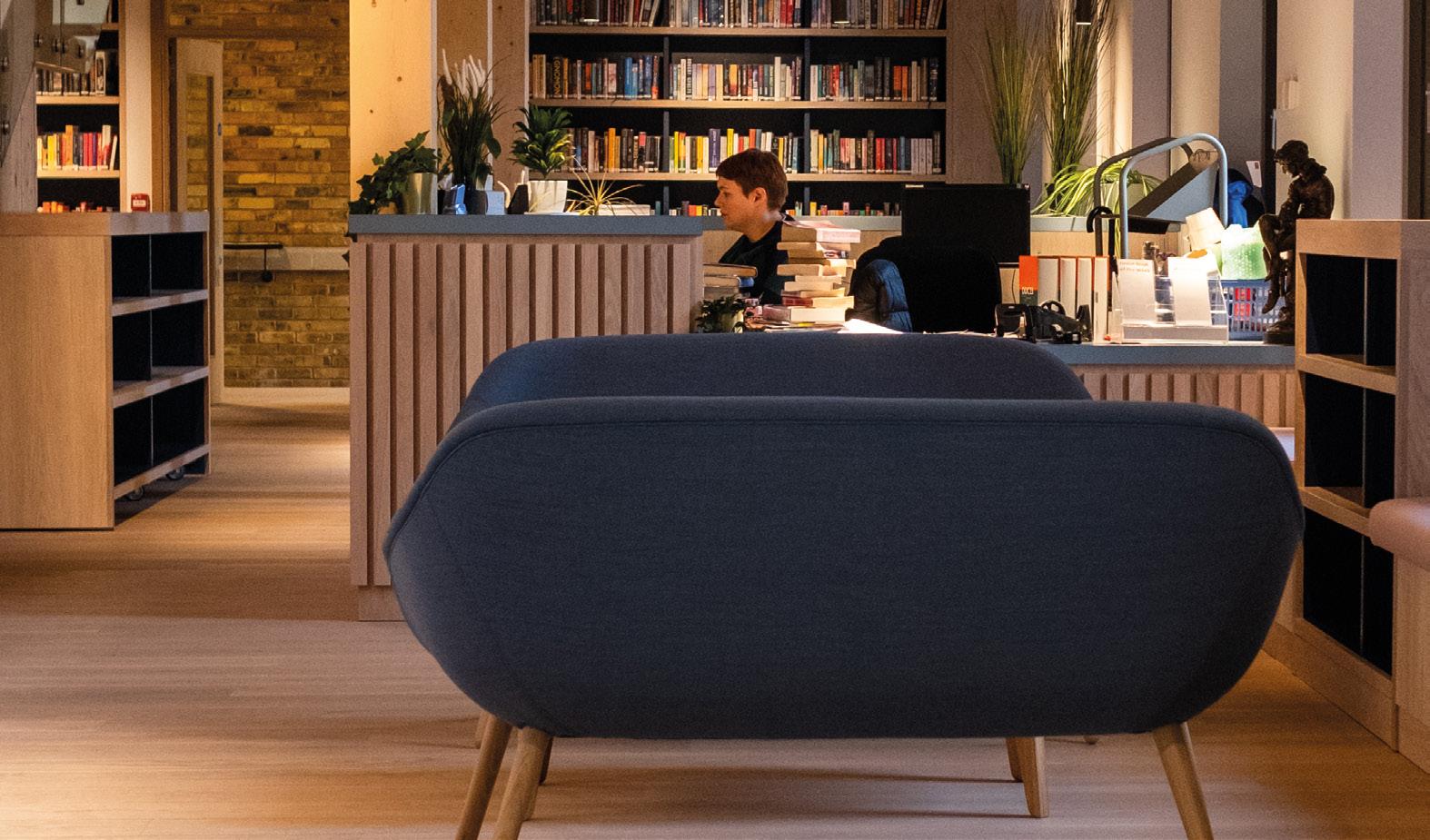
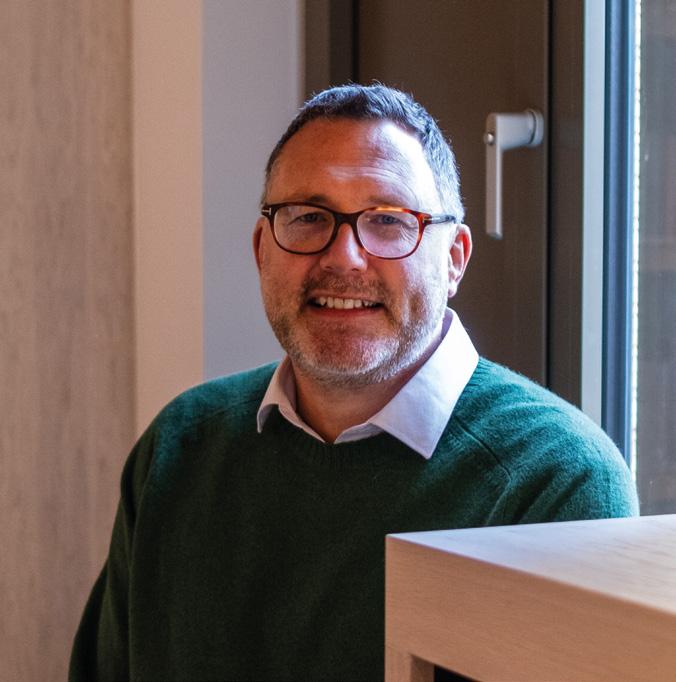
‘At the end of the Summer Term 2022, the old library’s book collection was packed up so that demolition could start, and the new library could be built. 15,000 books went into storage and 7,000 books, including all of the fiction collection, went into the prefab ‘temporary library’ on the front lawn, and served the school community’s reading and research needs in the interim. The new library was finally ready to move into in January 2024. Occupying a larger space than the multiroomed old library, and now on the first and second floors above the expanded cloisters dining hall, the new library is back to being at the centre of the school. An abundance of natural wood shelves showcase the books, and the wide-open spaces around the shelves have desks for working, with bean bags and sofas for reading on. The first floor houses the fiction collection, while the majority of non-fiction is on the second floor, joined by a sweeping staircase between floors. Beyond the physical books, the library has a wealth of online resources, eBooks, audiobooks, and online magazines. This hybrid approach showcases all the print and online forms from which knowledge can be found, alongside a diverse and varied fiction collection, for reading with pleasure.’
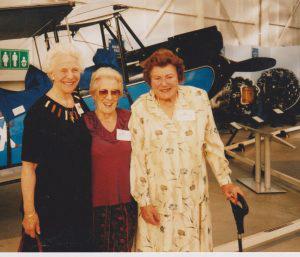

Daphne was typical of her ‘vintage’, growing up in wartime London. She was very proud of her association with Godolphin and Latymer School, Hammersmith, where she was educated from 1937 to 1940, until her family were bombed out and she had to change schools. She graduated from the University of London with a BSc in 1945 and was employed as a scientist at Imperial College London, working in spectrographic analysis. She subsequently worked for the General Electric Company, the British NonFerrous Metals Research Association and was a Senior Scientific Officer working at the Warren Spring Laboratory in Stevenage before retiring.
Daphne’s hobbies and interests were just as interesting as her employment. She started gliding while at Imperial College London with the University’s gliding club. She served for many years as a reservist officer in the Women’s Royal Naval Reserve, making sure that her annual training got her to air bases such as Royal Naval Air Station Yeovilton which permitted opportunities to glide, sail and fly. She was also involved with the Guiding movement.
Daphne was an avid and committed aviator who generously shared her experiences. The BWPA was established as women like her were resuming civilian flying after World War II, and she joined at the same time as many other well-known names in women’s aviation including Freydis Sharland. As a scientist, as well as fellow reservist, she worked well with BWPA founding member Dorothy Cheesley, whose obituary she wrote in 2013. In particular, Daphne was experienced enough to be a Corps Pilot for the Women’s Junior Air Corps, Girls’ Venture Corps (GVC) after 1964. She flew thousands of cadets and she logged plenty of hours in the Corps-owned aircraft, alongside other important aviatrixes such as Jean Lennox-Bird, Elizabeth Overbury, Gwen Bennett and many other significant BWPA members. There must be many women still echoing the comments of one former cadet,
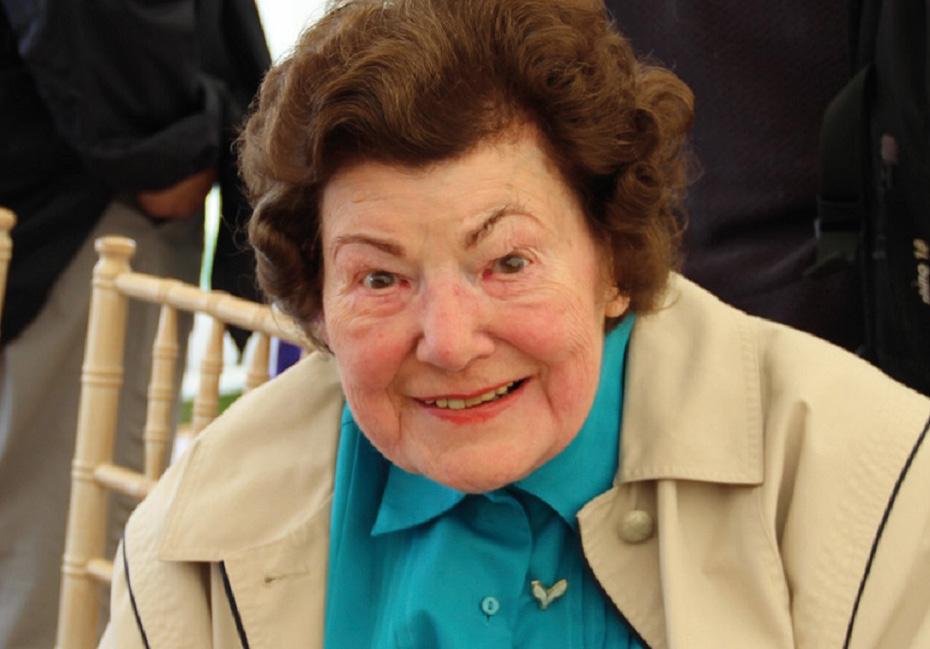
that Daphne was looked up to as a sky queen arriving with the aircraft, then flying the cadets all day – what an example and an early version of STEM.
Daphne had a great eye for detail, which is how many still remember her. She served on the BWPA committee, and her recordkeeping and research was meticulous. She was a regular at AGMs and BWPA events until lack of mobility got the better of her. She was also a long-term member of the Amy Johnson Trust.
Daphne Poynter, Old Dolphin, Class of 1944, passed away at her residential home in Stevenage on Wednesday 13 May 2020. Daphne was a loyal BWPA member since joining in 1957, two years after the Association was founded.
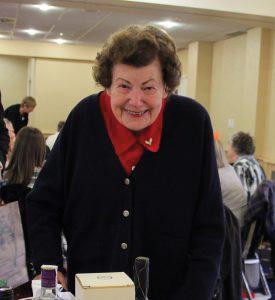
Daphne Poynter’s obituary was originally published by the British Women Pilots’ Association and is shared here with their kind permission.
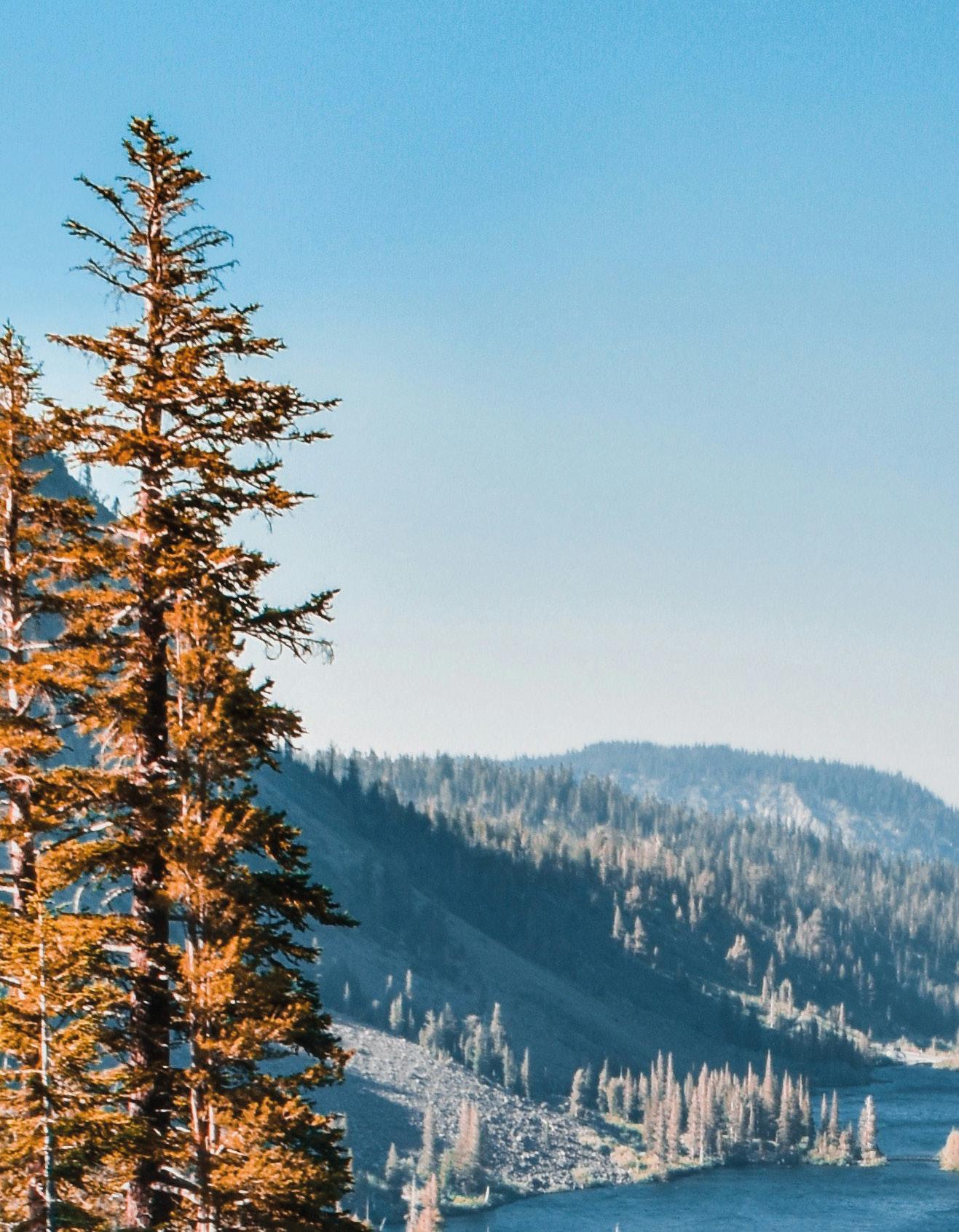
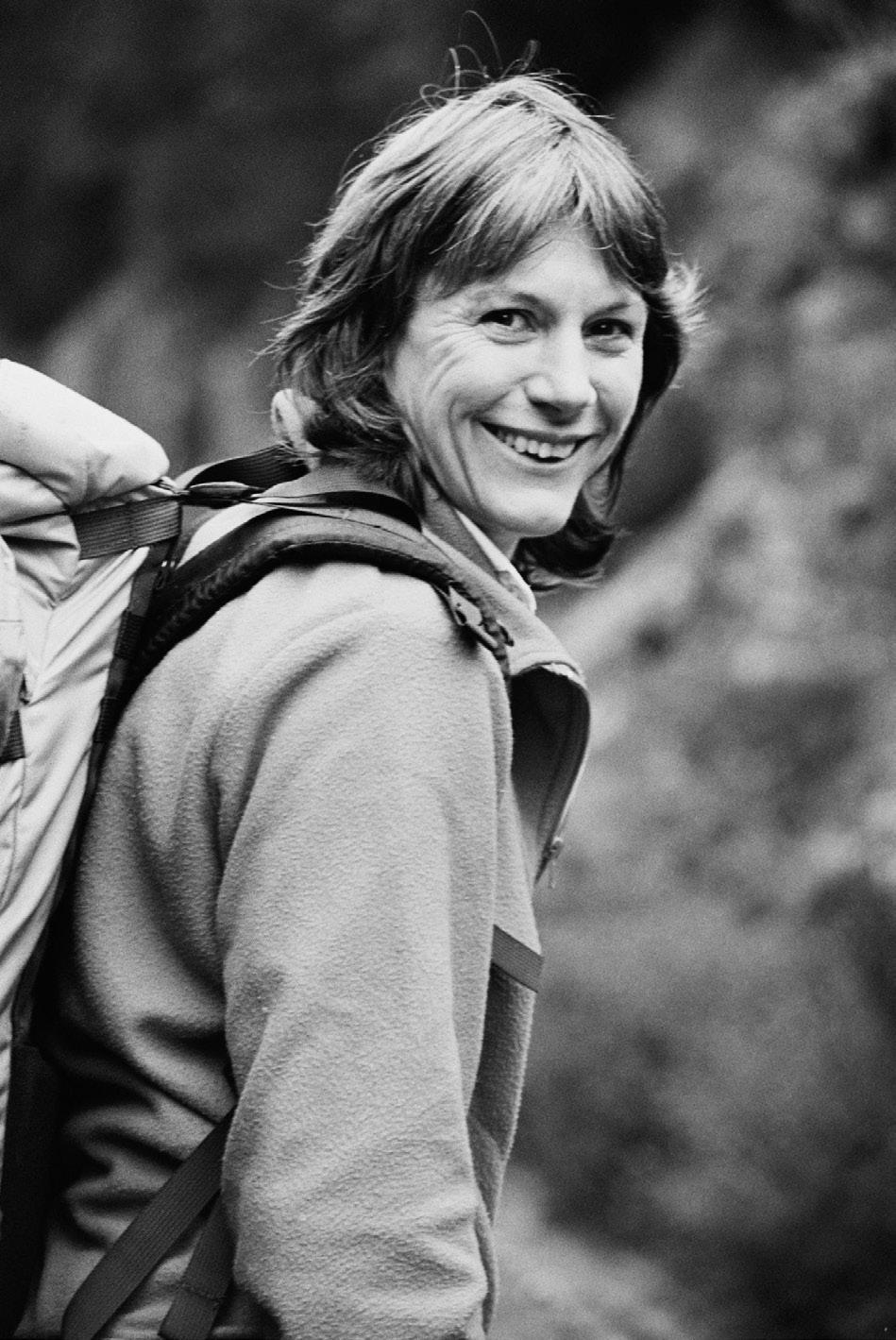
Julie Tullis was born in Surrey in March 1939, and though her early life was disrupted by World War II, she studied at Godolphin and Latymer School until the age of 17. She graduated in 1956.
Julie started climbing in 1954 and married Terry Tullis in 1959. The two set up a cafe and climbing equipment shop in Groombridge and ran instructional courses on Southern Sandstone. Amongst the many people that they instructed were groups of disabled children, and it was here that Julie’s personality began to emerge.
Through the 1960s and into the ‘70s life was spent bringing up her two children, organising climbing courses, encouraging able-bodied people as well as those with physical and mental disabilities to expand their horizons, and in any spare time riding and making doll’s houses for collectors.
Two chance events during this period would later prove decisive in her career as a high altitude mountaineer. The first was an introduction to martial arts. Tullis would pursue this throughout her life with great passion, becoming a black belt in both Judo and Aikido. Many were
convinced that these disciplines added great mental strength and endurance to an already determined woman.
The second was meeting the legendary Austrian mountaineer Kurt Diemberger. She would later organise his lecture tours in the UK and climb with him in Austria.
It wasn’t until her children left school that Tullis felt free to go away climbing for extended periods. Her first expedition, in 1978, took her to Peru with, amongst others, double amputee Norman Croucher. There she climbed Huascaran, her first ‘high’ peak. A productive trip to Yosemite followed, then in 1982 Diemberger, who was now involved with making films in the high mountains, invited her on an expedition to Nanga Parbat as his assistant and sound recordist. This began a great partnership, which would go on to win several prestigious international film awards.
The next few years involved a whirlwind of intense activity on and around the great Himalayan or Karakoram peaks, climbing and film-making with Diemberger. In 1983 the two accompanied an Italian expedition attempting K2 from the Chinese side. Tullis became the first woman to reach 8,000m on the peak and also explored approaches to the Chinese side of the Gasherbrums. In 1984 it was K2 again, this time with the Swiss, but from Pakistan. During this
expedition and at the age of 45, she became the first British woman to climb an 8,000m peak, when with Diemberger she summited Broad Peak.
In 1985 they joined a British team on the North East Ridge of Everest and then during the summer returned for another crack at the Diamir Face of Nanga Parbat. That year she spent 52 days above c6,000m. Towards the end of 1985 and in early ‘86 she finished her highly readable and inspirational autobiography, Clouds from Both Sides, and made a film about village life in East Nepal before travelling to Pakistan and the ill-fated summer on K2.
On the 4th August she reached the summit via the Abruzzi Ridge shortly after Alan Rouse, these two becoming the first and second British climbers to do so (and Tullis only the third woman ever). Sadly, both would die shortly after, succumbing to altitude while trapped in a prolonged storm on the Shoulder.
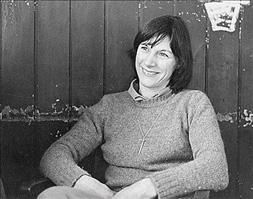
Julie Tullis’ obituary was originally published by the British Mountaineering Council and is shared here with their kind permission.
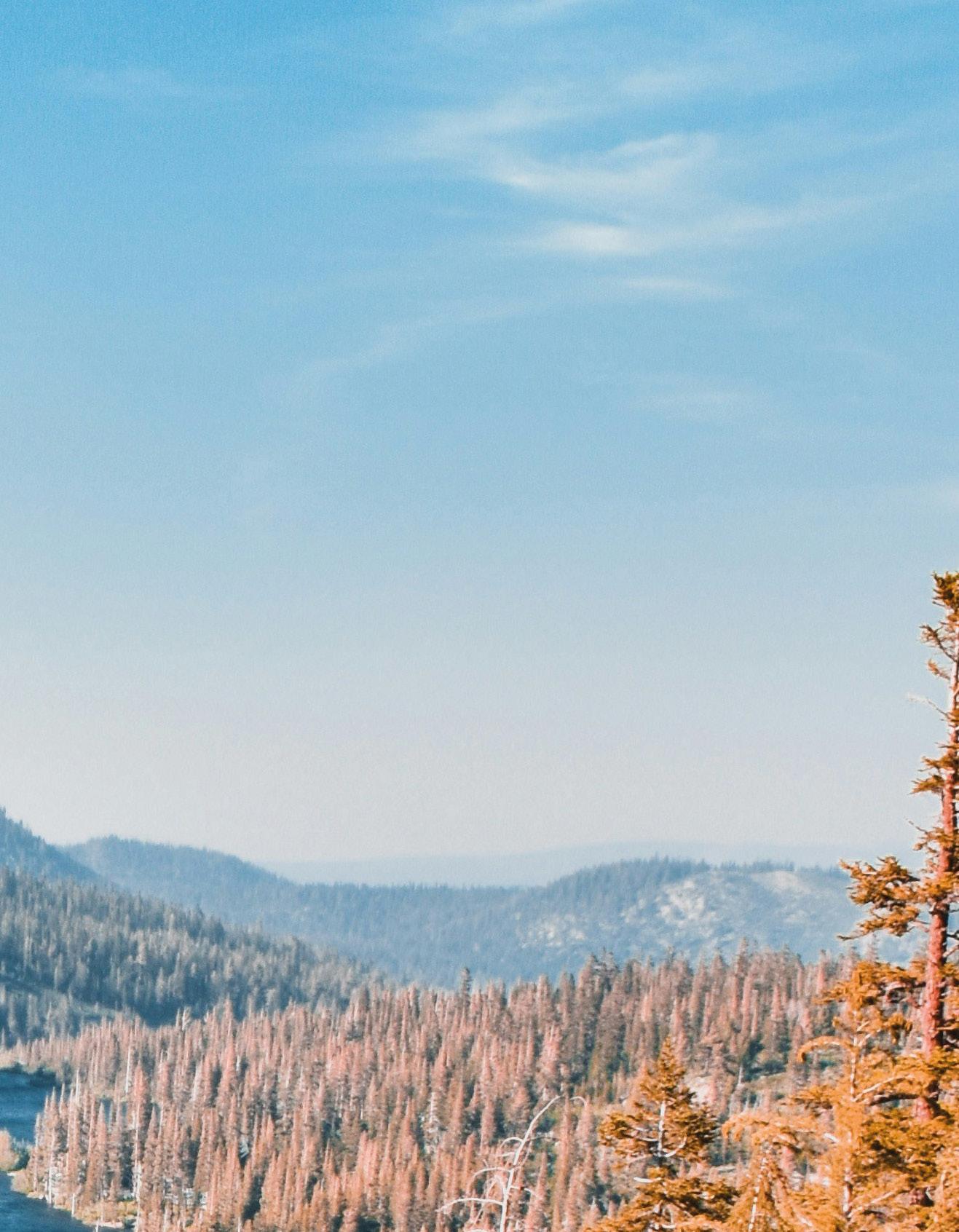
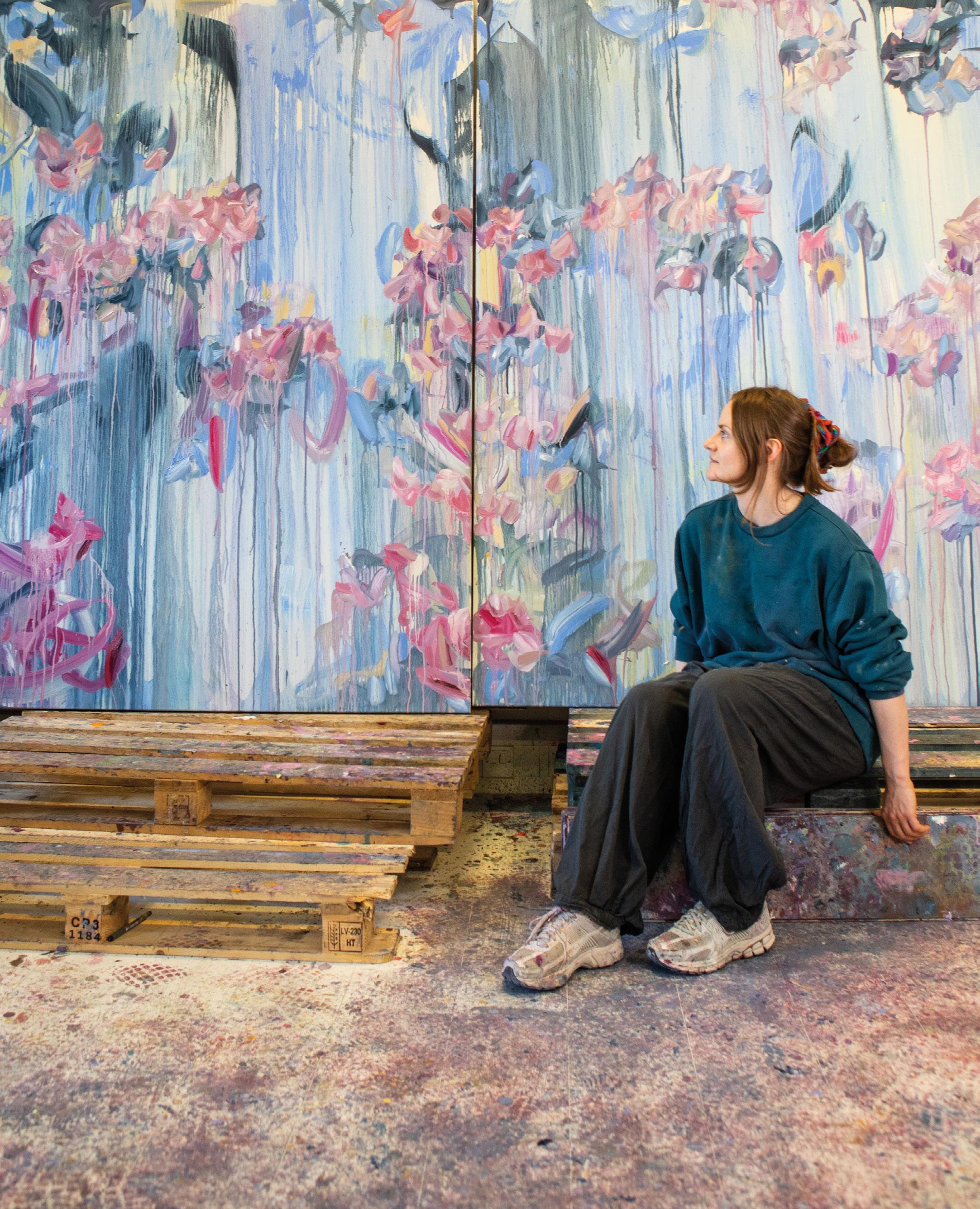
Jemima Murphy (Class of 2010) is an artist based in London. From studying at Repin Academy in St Petersburg to pursuing drama in New York, Jemima has now had her work featured in exhibitions in the USA and Europe. She has also been shortlisted for prizes such as Me Paints Me and The Young Master’s Art Prize in 2022.
In this interview, Jemima reflects on the significant moments at Godolphin and Latymer that inspired her, the valuable lessons she has learnt and her eventual return to painting — a passion she rediscovered during the Covid-19 pandemic. She shares insights into her creative process, memorable projects, and the influence of her artistic upbringing. Jemima also offers advice to aspiring artists and reveals exciting future projects.
Join us as we delve into Jemima’s remarkable journey, from the art rooms of Godolphin and Latymer to international exhibitions and beyond.
When reflecting on your time at Godolphin and Latymer, which were your favourite moments?
I think my favourite moments were always in art classes. I remember spending hours and hours there after school and having the best time. I think once I got to A Level, I really loved the smaller classes and my teachers, especially — Mrs Andreeyva, who was one of the reasons why I went on to study Russian, and for Art — Miss Cooper and Miss Ockendon, who I’m so fond of and still in touch with to this day!
How do you feel you’ve grown, and what valuable lessons have you learnt since leaving Godolphin and Latymer?
I think I’ve probably learnt more than I realise from my time at Godolphin. It’s so hard to pinpoint, but mainly I think the school was amazing for my confidence. In terms of work, I think the most valuable lesson I have taken from Godolphin is being brave enough to do what I want and believing anything is possible if you put the work in.
On an everyday practical level, I still slice my onions in the same way I was taught to in Food Tech classes!
But I’m still in touch with some of my closest friends from Godolphin, which I think is probably the most valuable thing I’ve taken!
After you left Godolphin, you studied Russian language and took a foundation course at Repin Academy, renowned as the best art school in the world. Afterwards, you became a theatre producer and actor. What led you back to painting?
I think I always wanted to paint. I remember finding it very difficult to choose between art and Russian for university. At the time, I was really excited about the idea of living in St Petersburg for my third year abroad, so I ended up taking that route. When I look back, I don’t think I was brave enough to choose art at the time. I didn’t think painting was an option for me in terms of a career – and I definitely didn’t think I was a good enough artist to pursue it.
I had two older sisters who were studying at Bristol and Edinburgh, and I probably wanted to copy them to some extent as they were having the best time! I absolutely loved Bristol, and living in Russia, too, was an amazing and unforgettable experience. I got a job soon after graduating, working in London for a power plant company that worked in Russia and Kazakhstan — which was probably the worst job for me — it was a lovely company, but it was the year I realised I had to start making other choices and thinking seriously about what I wanted to do. I don’t think I had given it much thought, to be honest, before then!

I had always loved acting — speech and drama at Godolphin was another highlight, and so drama school in New York seemed like the most exciting thing for me. When I returned to London, I worked as an actor and producer up until Covid. I also worked part-time for an events company, waitressed, and worked a part-time cooking job. It was a very typical young actor’s life!
I had always kept up with my painting over the years, but more as a hobby for myself. Yes, it was Covid that really led me back to painting. When I decided to start painting again properly, I remember not really knowing what to do and being really frustrated that I’d lost that confidence I had at school. I got a studio in London a year after Covid and then decided to do an MA at City and Guilds, which I think brought huge changes to my work and my trajectory.
Can you share with us a particularly memorable moment or project from your career as an artist so far? What challenges did you face, and how did you overcome them?
My first solo show with Edji Gallery in Brussels is a really memorable moment for me. I was really stressed at the time as I was working towards
this show at the same time as working towards my MA degree show. I think a lot of it was second-guessing myself and general pressure from having my works on show for the first time as a series. I think putting too much pressure on myself is an ongoing challenge, though!
Many of your exhibitions have taken place in both Europe and the United States. How do you perceive the differences or similarities in the reception of your work between these two regions? Are there any cultural influences that you consciously or subconsciously incorporate into your art?
Lots of my works are based on experiences so yes, I’m always being inspired by places I travel to around the world. It’s been really exciting to travel for work, and I feel so lucky to have had shows in the US and Europe. I feel that a lot of my works have ended up in Europe! I always find it really exciting and rewarding to see my work hanging in a gallery abroad! Right now, it’s hard to point out notable differences — each gallery has a unique approach, and it’s been so amazing to meet and work with such lovely people, but I’m still getting to know the art world and seeing how things work!
As someone who comes from a large artistic family, how has your upbringing influenced your artistic journey and the themes you explore in your work?
I have always been surrounded by art, so I was influenced from a very early age. I think spending most weekends down in the New Forest when I was growing up definitely had an impact on my work and the nature side of it. There’s a lake at my grandparent’s house in the New Forest, which has been the root of my inspiration for many of my works — it was one of my favourite places as a child, and still is!
Can you tell us more about your style? What inspires you? What techniques do you use?
My work has become quite emotively driven — it’s very based on movement and the process of making and working with my materials — I’ve started working at a much larger scale to allow for that freedom of movement and gesture.
My greatest influences are Lee Krasner and Joan Mitchell — I love their work! The psychological content in Krasner’s work really resonates with me — especially in her Umber series. There’s something about standing in front of her works, and I’m completely awe-struck. There’s a painting I saw of hers in Vienna, it was part of her Umber series, and I think there was a big shift in my work after that show.
Do you have any advice for Dolphins or Old Dolphins who are aspiring artists?
I’d say don’t be afraid to make mistakes or take risks! Do what you want and not what other people want!
Looking to the future, what’s next for you? Are there any specific projects you’re excited about pursuing?
Yes, I have a few upcoming projects — an online solo show with Victoria Miro Project, ‘Finding June’ that’s launching in early June this year, which I’m really excited about! Then a group show in October in New York with Phillips Auction House.
Do you have anything you wish you could tell your younger self? What would you say to those who have just left Godolphin and Latymer?
I would say not to worry about any decisions you’re making now because things change so quickly and any choice made will only lead you to the next unexpected path. Do and try whatever you want to do, and then throw yourself into it.
Becoming an actor and painting hadn’t crossed my mind for a second when I was still at school, not even while I was at university — and it’s taken me ten to eleven years to come back to it!
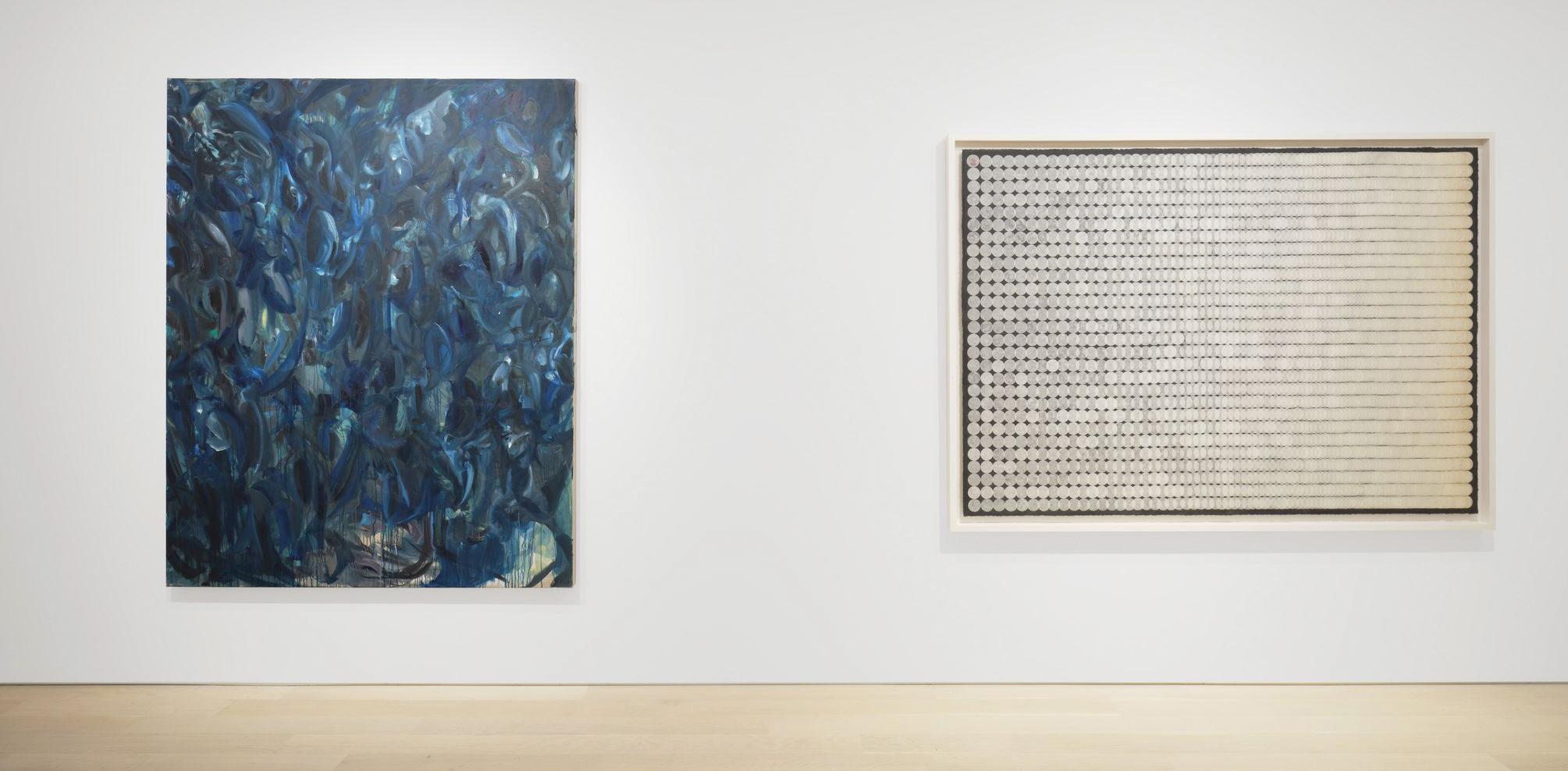
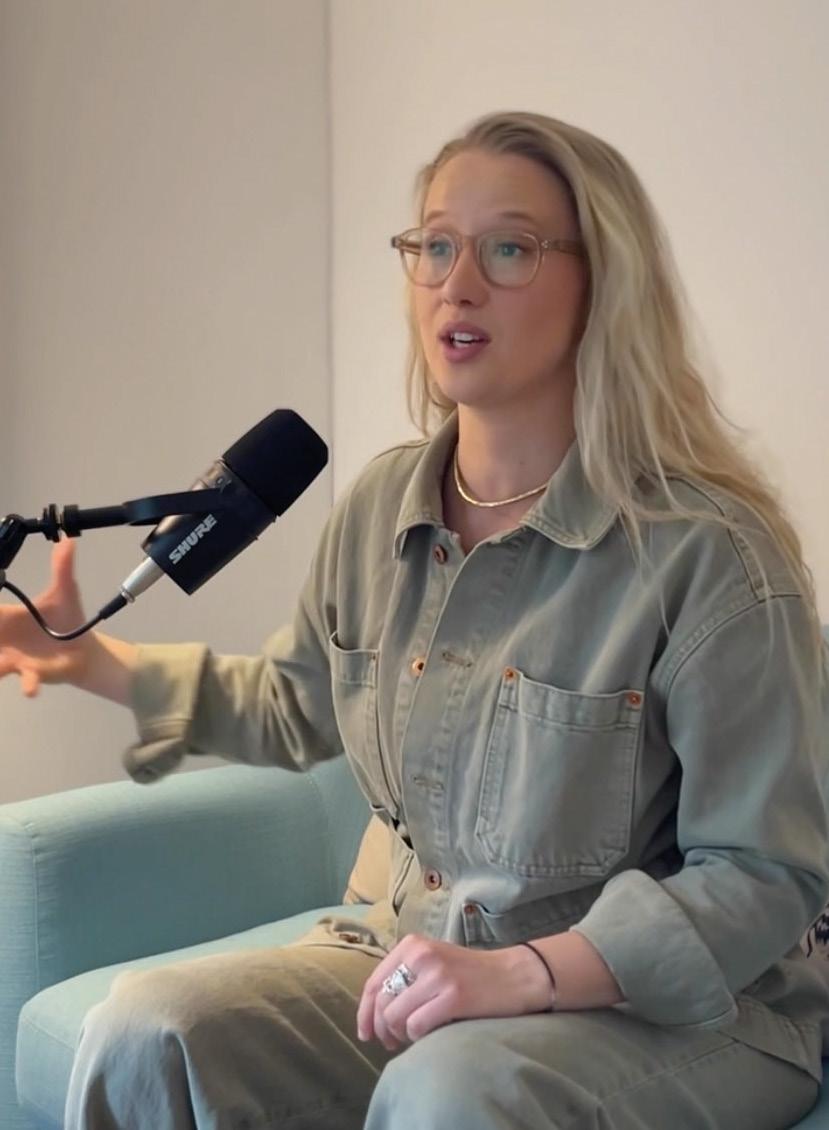
Dive into the inspiring stories and journeys of our esteemed alumnae with The Pod! Join us as we bring Old Dolphins back to Godolphin for captivating conversations about their time at school as well as invaluable insights into the professional world.
In each episode, Sixth Formers and staff sit down with accomplished alumnae as they share their career paths, triumphs, and lessons learnt along the way. From groundbreaking achievements to cherished memories of school days, The Pod offers a unique blend of looking back while looking forward.
Previous guests include Alice Aedy (‘12), Amy Jiang (‘20), Abby Mangold (‘93), Emily Ratsma (‘13), Ayesha Singh (‘15), and Rafaella Svirinskaya (‘22). Tune in to discover the stories behind their success, gain invaluable advice for your own journey, and reconnect with Godolphin and Latymer.
Here’s an extract of Geography teacher
Lucy Graham’s chat with Alice Aedy (Class of 2012):
Lucy: Hello. I’m Lucy Graham. I’m a Geography teacher here, and I work with the Sustainability Committee. We’ve got Alice with us today, Alice Aedy, a past pupil from the school who works a lot in sustainability and media. So we’re going to have a chat today. Alice, first of all, how has life been since you left Godolphin?
Alice: What a big question! It’s been twelve years since I left. I’m buzzing right now because I’ve just done an assembly, which was really special to have 800 faces staring up at me. It was a little bit terrifying, but yeah, it was amazing to be able to share a bit about what I’ve been up to since leaving. I studied History and Politics at uni, and then very soon after, I mean, I guess I always had a sense I wanted to go into some kind of visual storytelling and visual journalism. If I’d been able to write, maybe I would have been a print journalist, but, to be honest, I wasn’t engaged with climate change at school. I didn’t really have a perception of it beyond the basics of what we learn. I think I had a sense of the fact that the climate was changing, of CO2 in the atmosphere, and certainly that humans were
having an impact. I understood it as a man-made problem, but I certainly never thought I would end up working in climate, and, in some ways, it took me a while to get there.
After uni, I began to work as a photojournalist and a documentary filmmaker, but very much focused on other human rights stories, mainly around conflict and forced migration/refugee stories at the time. It was the height of the Syrian refugee crisis, and I began to use my camera as a tool to sort of humanise the crisis beyond headlines and document human stories.
I think so many of us think about it, and you know better than anyone as a Geography teacher that we think it’s a kind of issue happening in a vacuum, somehow separate. You know, you’re a person who cares about climate, and climate is happening to nature and the environment, which of course it is, to biodiversity, to nature, but it’s also happening to humans, and it’s not going to be evenly or equally spread. I think we always were speaking about it as something far away that’s coming in a long, long time and to people not like us and certainly not living here. I think none of that is true, and I think I felt a rising sense of urgency through the stories that I documented, which began to become more and more focused on climate frontline stories in Somaliland, Kiribati, and since Brazil with indigenous communities. This issue is very much in the here and now. And now, to my big surprise, I’m a climate person focused on climate storytelling and trying to engage audiences with it.
Lucy: Yeah, I think your point about when you left, even though you learn about climate a little bit in school. I think I’m a similar age to you. I left school eleven years ago, and, in school, when we were learning about it, it was like, “Oh, we shouldn’t use fossil fuels because they’re going to run out.” It wasn’t, “We shouldn’t use fossil fuels because it has all of these other impacts.” It was just about, it’s going to run out, so we need to find an alternative fuel source.
Alice: A finite resource!
Lucy: Yeah, exactly.
Alice: Because that’s all you would learn.
Lucy: That’s all you were taught, but it’s different now. But yeah, you’ve just given that assembly, and so many girls came past, and they’re like, ‘Yeah, it’s Geography! It was really, really good.’ You know, ‘she spoke really well,’ and I think for them, it’s so different to what we learnt about climate in school. So I just wanted to ask you about it because you just gave the assembly and were talking about people, purpose, and the planet; I was wondering how your values, your personal values, feed into the work that you do, and did you have those values before or did they emerge after the work started?
Alice: God, that’s such a big question, isn’t it? Yeah, I did speak about purpose in the assembly. I think, to be honest, I feel very lucky that I was able to find a sense of purpose and not only that, it aligned with the work that I want to do. Absolutely, my values are woven through. How do you build your value system? I mean, your parents, absolutely, the school you went to, the teachers you had, the small comments they would say about the world. I studied History and Politics as two of my A Levels, and it was wildly eye-opening. So I definitely had a sense of justice, and I definitely had a sense of how lucky we were to be at this school and to be having the education that we had. So I definitely went into university with a sense of wanting to make an impact and knowing that I’d been dealt a set of cards and really wanting, feeling, a responsibility to use those well, and for me, that meant going into journalism and storytelling. I think it could mean anything to anyone, but the value system also changes over time. As you said, the way we understand the problem and the way we understand the world changes with every day that passes. So what I’ve certainly seen and feel is that one way that we don’t talk about the climate crisis and climate change enough is actually about values. Climate change is the symptom of some pretty core fundamental root problems, which are values issues, extractivism, consumerism, and seeing ourselves as separate from nature and not part of it. These are a set of values that are not serving us. You know, it isn’t serving us to see ourselves as separate from nature. It is not serving us to be extracting relentlessly without warning. And, ultimately, I
think we’re not really humble enough. We don’t have the humility to A) realise we probably haven’t got everything quite right in the way that we’ve built society, built structures, and built our civilisation that has been utterly reliant on these resources that are finite. But also, B) I think we’ve lost the ability to listen. And now it’s also why I’m passionate about storytelling. What can we learn? How can we listen? And who should we be listening to? Those are not the people that we might have been listening to decades ago. But ultimately, as you know better than anyone, we have the science, we have the solutions, we don’t have the political will, perhaps.
I think I’m definitely worried about the sense of overwhelm that it’s easy to feel. I think that a lot of people are feeling that it’s not easier, but sort of inevitable, to bury your head in the sand. You feel paralysed. And I’m really worried about that because I think we might just be, not everywhere in the world, but on the whole, winning the fight against climate denial. But just as easily, we’ve entered a new paradigm of climate doom. And I know, as a storyteller, it’s really hard to find the right balance because some people will say there’s no choice but to share the urgency. ‘If you don’t share the urgency and you don’t scare people with the reality, you’re not doing justice to the facts.’ But at the same time, if we only terrify people, how useful is fear really in engendering action? I don’t know the answer to that question, and I’m asking myself every day how to strike the right tone, to bring people on the journey with us, to bring the mainstream with us. It cannot just be the Geography students and the Sustainability Comittee that cares about this. This has to be woven into the value system of the entire school and the entire world. In any company, there’s the sustainability department. I’m like, let’s scrap the department. Let’s have it woven in across the whole school.
Lucy: Yeah, I definitely agree with that. But it’s a hard thing in so many institutions globally. Especially with young people, like the level of anxiety that you see, because I love Geography, but it sometimes is a gloomy subject when you’re talking about these issues. But you just have to try and focus on the hope that there
is, because they need it and they feel really - I think so many young people, this is why I got interested in sustainability, so many young people are so passionate about it and because they’re young, they can’t make the decisions for themselves a lot of the time. So it’s really caused me to reflect and think, ‘What can I do?’ Because they can’t make those changes, but what can I do that, maybe, you know, it will help a lot in an individual way. But it’s so hard on a global scale.
Alice: We said at the beginning of this how different it was in terms of the Geography that we learnt. But I imagine for you as a teacher, the way that you’re teaching, the level of awareness, perhaps, it must be so different to having taught Geography a few decades ago. I mean, that is extraordinary to think about. Do you feel like there’s a growing appetite? What are the conversations that are happening in class?
Lucy: Well, I think that they’re really interested in finding out what they can do. We run COP weeks in school to coincide with COP and just try to, in those weeks, maybe have clubs and societies focusing on sustainability issues and environmental issues. But I think it is this thing that — we try to focus a lot on the UN sustainability goals because it’s not just about the environment, and I really think that a lot of young people don’t grasp that fully. And then they start to realise, ‘Oh, it’s economics, it’s also social.’ And once they start to get that, it’s really interesting, they’re like, ‘Well, why don’t we do this?’ But they don’t have the knowledge web yet to understand that complexity. But there’s definitely a big appetite, and people are really interested; they want to know what they are
doing. Students here have launched a green newsletter, and they did that all by themselves. They write about green issues in school and outside of school. And, definitely, there’s a lot of appetite for it. And students are saying, ’Oh, I want to go into sustainable finance. I want to go into, like, journalism focused on these issues,’ because I think they can see it’s bigger; it’s a global issue, not just here.
With sustainability becoming a more and more crucial topic, we invited two Old Dolphins to discuss their work in this ever-evolving field.

First, we have Amanda Powell Smith (Class of 1986). CEO of Forster Communications, Amanda is a trailblazer specialising in sustainability to combat climate change, drive social justice, and enhance lives. Her pioneering efforts in fostering climate-positive performance through Forster Communications and collaboration within the B Corp community are accelerating the achievement of Sustainable Development Goals both in the UK and globally.
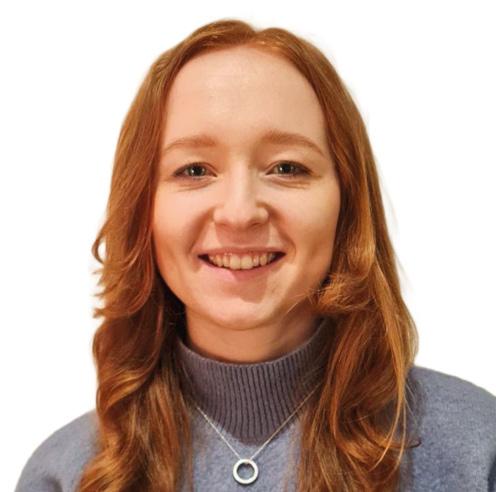
Joining Amanda is Anna Dacam (Class of 2017) whose journey in sustainability has been as diverse as it is impactful. Graduating with an MA in Social Anthropology with Development from the University of Edinburgh, Anna’s passion for sustainability led her to spearhead student-run charity projects in Africa and East Asia during her university years. Her latest role was Environment Programme Manager at the Sustainable Hospitality Alliance, though Anna is now travelling through South America.
Below, Amanda and Anna offer a multifaceted perspective on the challenges and opportunities of sustainability. In this interview, discover the innovative approaches and impactful initiatives that are helping shape a more sustainable future.
Can you share a bit about your journey and what led you to pursue a career in sustainability?
Anna: My first dive into sustainability was during my Social Anthropology with Development degree at Edinburgh University. I loved exploring the intersections between the social and the environmental.
I also got involved with a charity called Edinburgh Global Partnerships, a studentrun sustainable development charity running community projects across Africa and East Asia. I spent two months as a volunteer with a women’s collective in rural Zambia, building a cooking oil centre for the community. It was a truly eyeopening experience. I stayed involved with the charity and ended up running the charity in my final year.
I graduated with absolutely no idea what I wanted to do, but I was driven by a desire to do something that had a positive impact on people and the planet.
Amanda: I am a problem solver and am fundamentally interested in the world around me. While my early career was in mainstream PR, where I developed my professional communications skills, my interests were always around equality and quality of life. As the urgency to protect the health of both the environment and the public grew in the 1990s, I looked for ways to get involved. First, I built a corporate social responsibility team in the agency I was working for, and then I joined specialist agency Forster Communications to focus solely on sustainability. Forster’s purpose is to use the power of communications to protect and improve lives — I have been here ever since.
How did your educational background at Godolphin and Latymer contribute to your journey in the sustainability field?
Anna: I think, more than anything, it was the ethos at Godolphin that led me into this field. Godolphin taught me that no challenge is too big. It gave me the confidence to immerse myself in the things I care about and not to worry if things don’t always go to plan.
Studying the IB also encouraged me to explore the intersection between different disciplines, a perspective which lends itself well to sustainability. We are facing hugely complex issues that cannot be addressed from just one angle. Being able to see the interconnections between different disciplines has been really helpful.
Amanda: After doing Biology, Chemistry, Geography, and Art at A Level, I went to Bristol University to study Biology, ultimately focusing on Zoology. In my second job, I supported environmental issues, and as my career has evolved, I have found myself increasingly drawn back to interconnections between people and planet. Now, I’m working at the heart of how to tackle climate change, regenerate nature, and drive social justice. Thanks to my science background, I am not afraid of digging into scientific detail, seeking evidence and asking questions.
Can you describe a typical day in your current role? What projects are you currently working on?
Amanda: We don’t really have a typical day! Yesterday, I was in Oxford, where my team had put on an event for a client to explore opportunities for SMEs to build a waste-free world. Today, I’m in the office, planning how we can help a client who is seeking to reduce ‘black carbon’ (also known as smog, which causes major health problems for individuals as well as being a huge contributor to climate change) across the world. Tomorrow, I’m in a workshop to look at the risks and opportunities associated with a project to protect virgin rainforests.
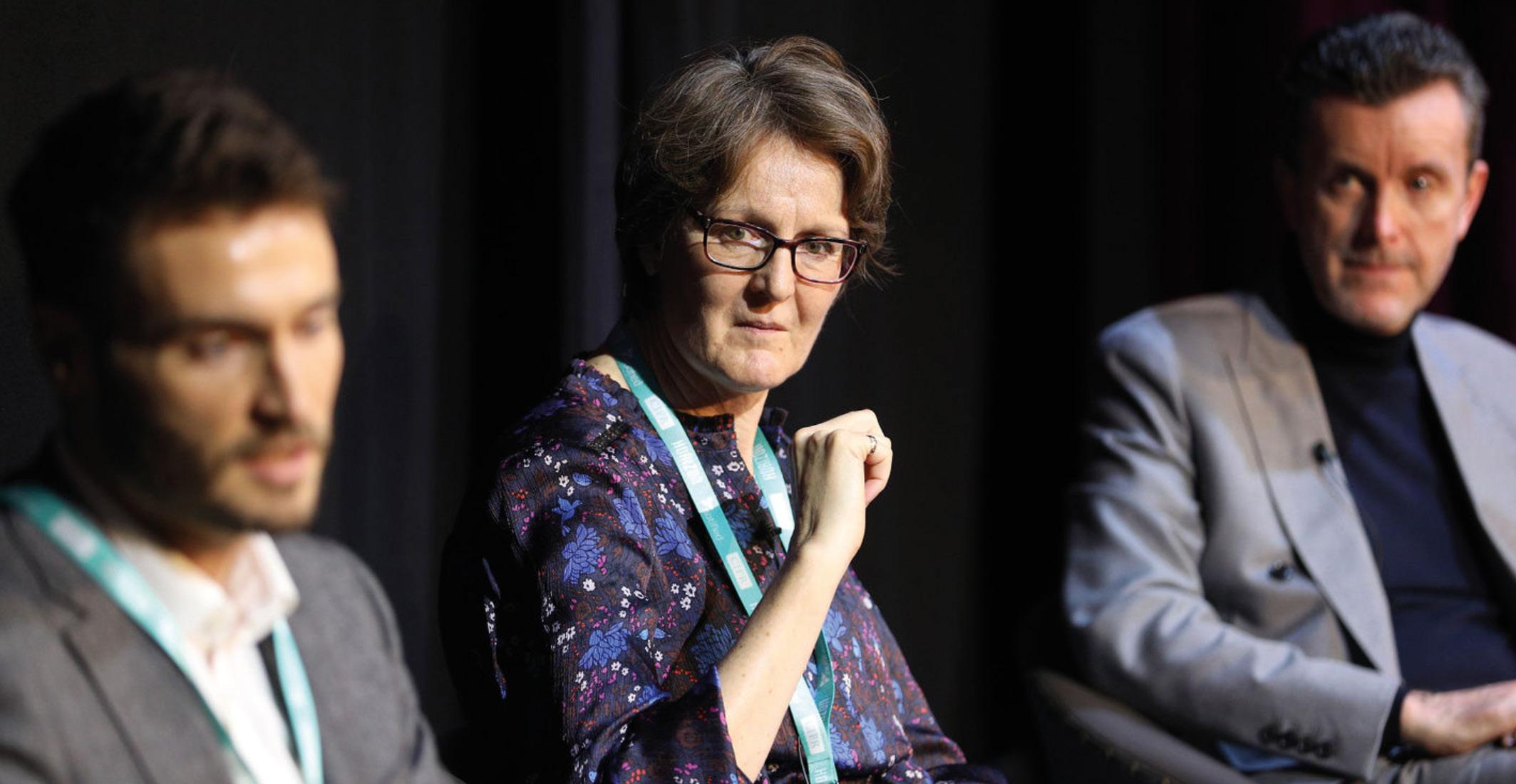
What challenges have you faced in the sustainability field, and what have been the most rewarding aspects of your work?
Anna: The world of corporate sustainability is complex. There are lots of conflicting interests and many different players who need to be engaged (and often convinced) to take action. At times, the pace of progress can be frustrating. We also face a big challenge with greenwashing in the industry, which makes it tricky for people to determine what is genuinely sustainable. There’s a lot of new legislation coming in to address this, and hopefully, greater transparency from companies will help address this, too.
These challenges aside, I have been privileged to work on some amazing projects. For example, working with the UN Environment Programme (UNEP) and the UN World Tourism Organization (UNWTO) to develop a tool to help hotels measure and track their plastic reduction efforts. Getting the whole industry committed behind an initiative is extremely rewarding.
Amanda: For years, we’ve been trying to convince people that climate change is real; now, we are trying to accelerate progress. Today’s challenge is about how to put people
at the heart of climate action and ensure that everyone benefits from decarbonisation. How can we build a new system that addresses global and local inequalities?
I love being part of a team that raises awareness of complex issues and encourages decisionmakers to take positive action. It’s always exciting when a project launches and senior leaders feel confident to speak out. I also get huge satisfaction from helping those around me to develop personally.
How do you see sustainability initiatives evolving on a global scale, and what role do you think individuals and communities can play?
Anna: There is no doubt that a sustainable future is the only option for our future. It’s becoming harder and harder to ignore the fact that we are already living with the effects of climate change. And these are only going to get worse.
Everyone has a role to play. The most important thing is to understand the issues and to start doing what you can. At the individual and community level that might involve switching your household to renewable energy, reducing your food waste, or opting for public transport.
We also need to see substantial action from governments and industries. It’s easy to feel hopeless at the magnitude of the challenges we face, but we have huge power as consumers and voters to use our collective voice to push for systemic change.
Amanda: Individuals and communities are core to success. There’s some really interesting work taking place to build citizenship and increase public voice as we seek to build new systems.
What advice do you have for alumnae or current students who are interested in pursuing a career in sustainability?
Anna: Sustainability is a really exciting field to be in, and I am constantly learning and updating my knowledge as best practices and policies evolve.
My biggest advice is to keep engaged with the issues. Find ways to get involved in sustainability activities in your local community, and meet like-minded people. Make sure to seek out the positive news stories, not just the doom and gloom! And wherever possible, I would recommend speaking to people working in the field.
Amanda: There are so many different angles to a career in sustainability. I am a PR communications professional working on sustainability issues. There are many roles evolving on the strategy/ accounting side, in policy, and in science and technology. Clean tech and innovative solutions are set to grow massively.
I would say play to your strengths and see how they apply to building a sustainable world. Be curious, know how to work with others and ultimately, don’t be afraid to get involved in something you care about.
Do you have any favourite sustainable practices or initiatives that you’ve come across recently?
Anna: Last summer, I competed in the UK heats of SPOGOMI, the litter-picking World Cup. (Yes, believe it or not, this is a real thing..!) Originally conceived in Japan, I think it’s a brilliant example of how to make embracing sustainability fun while also getting people engaged with the serious issue of litter and pollution.
I’m also a big fan of technology platforms that focus on the circular economy, reducing waste, and the need to purchase new. For example: Too Good To Go, Vinted, and Fat Llama.
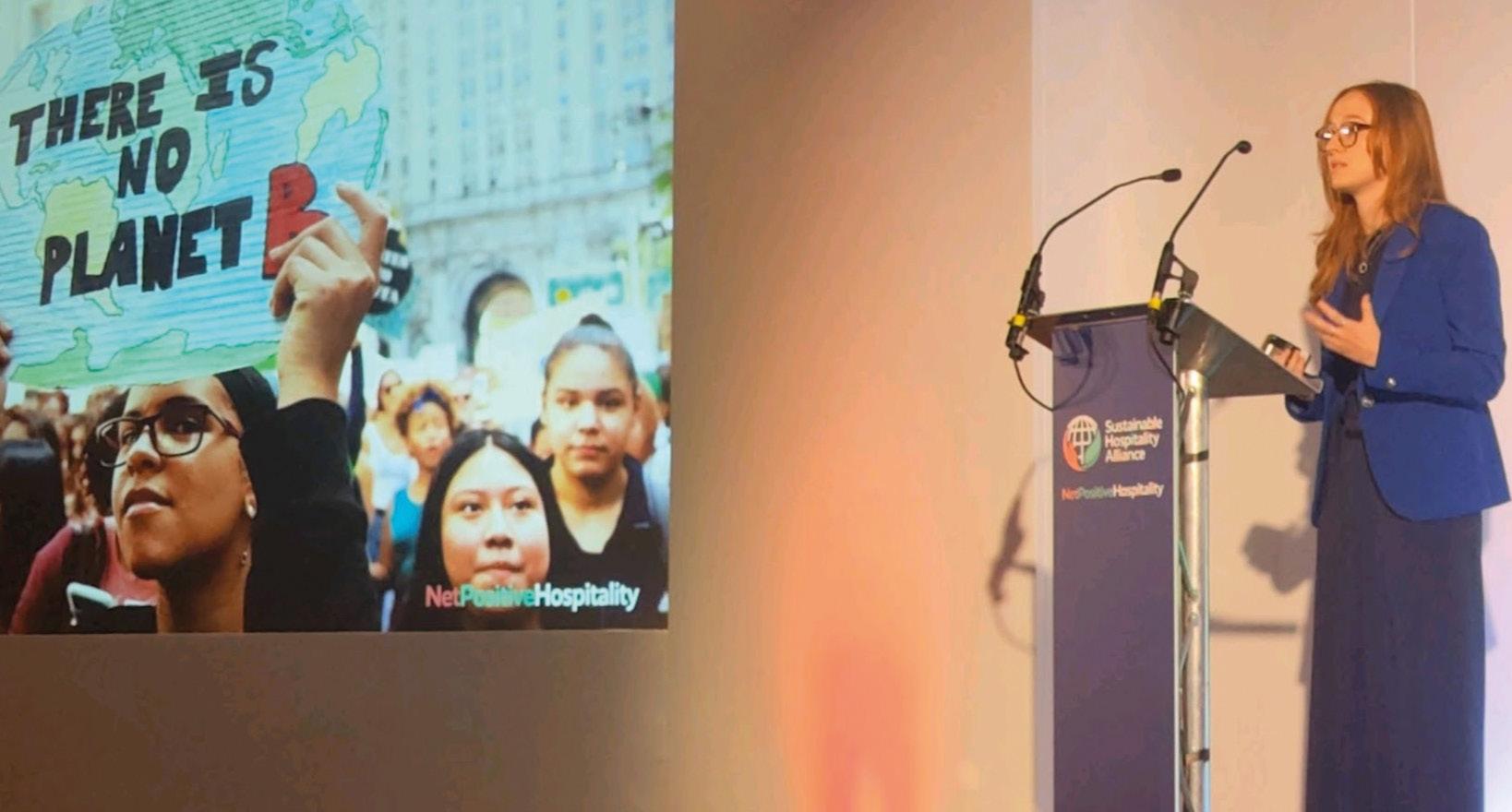
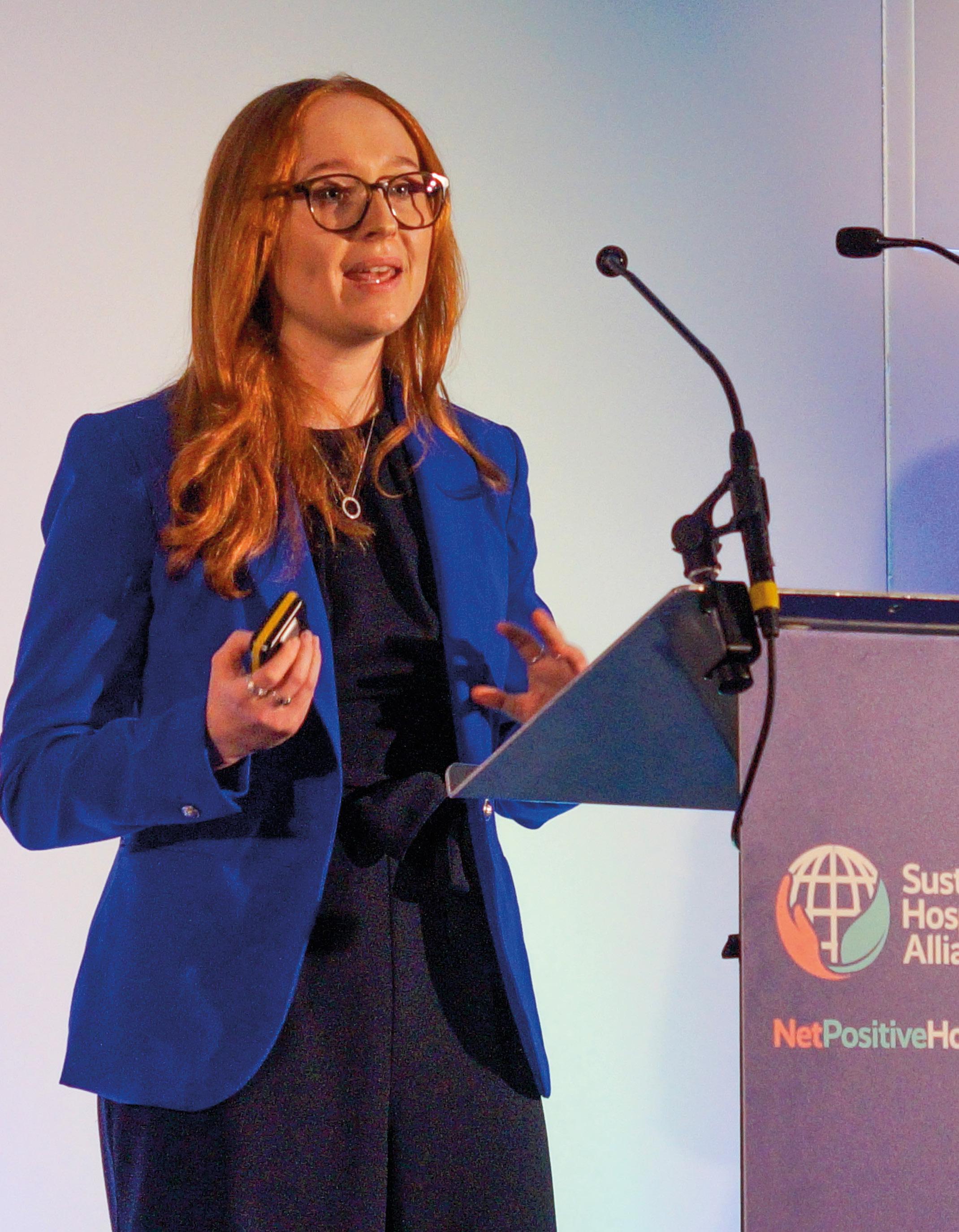
Amanda: I am a strong supporter of the planetary health movement, where public health and climate change come together. For example, the recent court case over the extension of ULEZ in London was won by highlighting the impact that will be made on tackling air pollution and protecting individuals from asthma and lung disease. We know that ULEZ will also help cut the use of fossil fuels as part of tackling climate change, but that was a secondary message. We know that people care about their own health and that of their families, and are more likely to accept change if they can see the benefits through this framing.
I also really endorse Prince William’s EarthShot Prize, which supports brilliant programmes and ideas that repair our planet from across the world. It is so important to show what is possible and inject hope into these complex and often overwhelming issues.
Can you share a specific moment in your career where you felt a significant impact in promoting sustainability or something that you were proud to be a part of?
Anna: In my role at the Sustainable Hospitality Alliance, I helped to develop the Pathway to Net Positive Hospitality. It’s an online toolkit that sets out the steps hospitality businesses should take to work towards having a positive impact on both people and the planet.
Throughout the development, I had the pleasure of working closely with some brilliant thinkers, including industry professionals, world-leading academics, and NGOs.
After two years of development, we launched the final Pathway at COP28 in Dubai last year. It was a very rewarding moment!
Amanda: I am really proud of the action we have taken as a business to tackle climate change through our own plans. These have been recognised as an industry first and shared with many other organisations to help them get started. I think small businesses have an exciting opportunity to be nimble and pioneer new ways of thinking; we have now committed to developing an Integrated Profit and Loss account by 2026 to understand the total impact we are making.
In your opinion, what are the most effective strategies for businesses and organisations to integrate sustainability into their operations?
Anna: The first step is to understand your current impacts. How much energy or water do you use every month? How much waste do you send to landfill each week? Use this information to set a baseline from which you can track your progress and prove that the actions you take are paying off.
Secondly, collaboration is key. Many businesses view each other as competitors, but in reality, no single business can tackle sustainability on its own.
Finally, and most importantly, don’t let the pursuit of ‘perfection’ get in the way of ‘good’. There is always more that can be done, but what is most important is that we all start on the journey.
Where do you see the future of sustainability heading, and what changes would you like to witness in the field?
Anna: From the perspective of businesses, at the moment, most people think of sustainability as a discrete section or department of a company. In reality, it needs to be embedded within every element of how businesses operate.
Sustainability issues have become a lot more visible in the past few years, which is brilliant. However, many companies lack the resourcing and expertise to respond to growing demand and changing legislation. It would be amazing to see more support from governments and greater industry collaboration to pool resources and accelerate progress.
The same applies at the individual level. Most of us want to live more sustainably, but we either don’t have the knowledge or capacity to do so. My hope is for greater education and more community-based initiatives so that everyone feels empowered to get involved and work towards a prosperous future for all.
Amanda: We need sustainability to be built into everyone’s roles, whatever they do. I’d like to see the term ‘green skills’ replaced with ‘skills for life’.
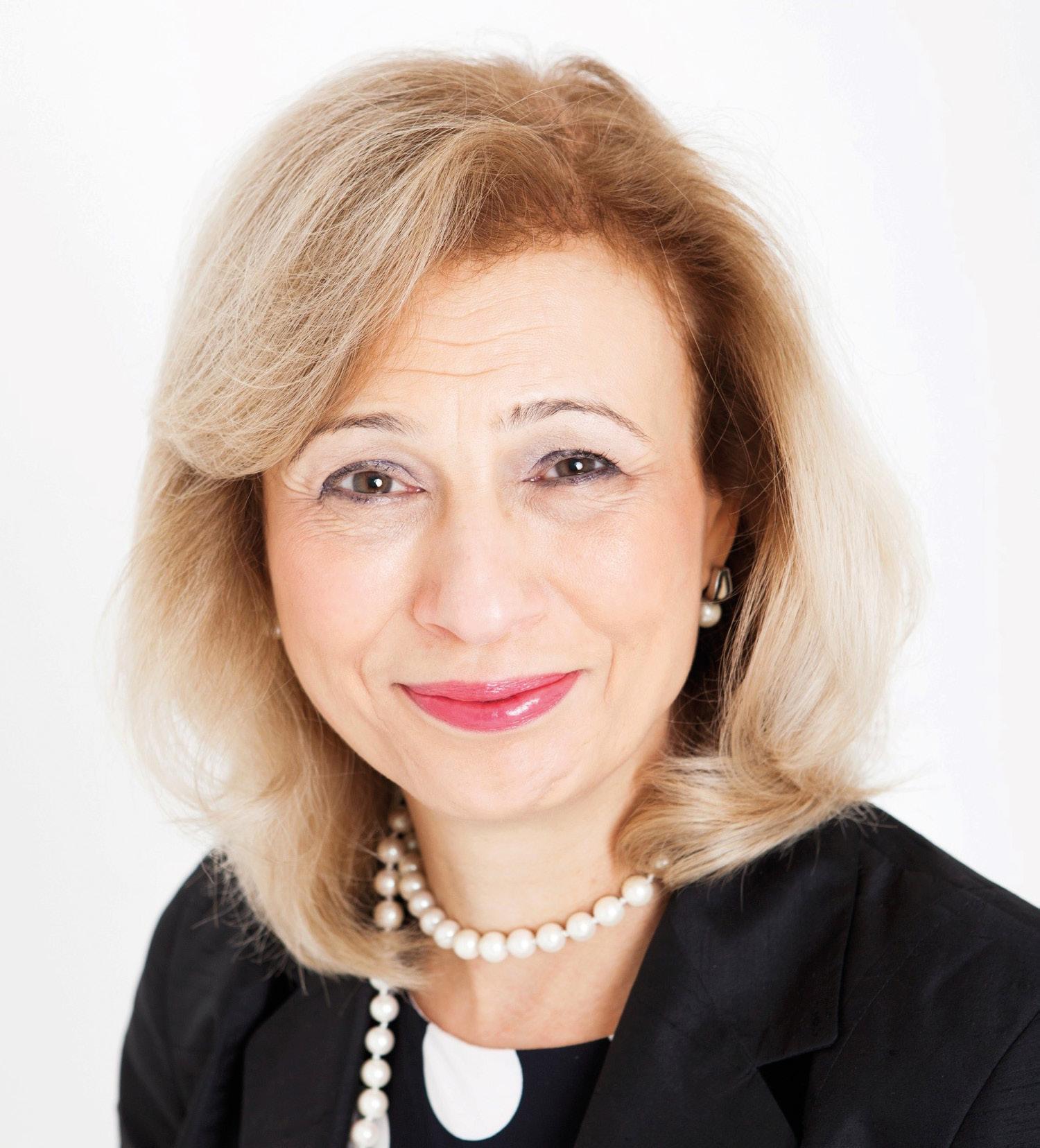
Elise Moore-Searson (Class of 1971) has had a very accomplished career. Though initially leaving Godolphin to become a teacher, Elise started in the office of the Chairman of the Conservative Party in 1977 and is now an Executive Coach and Career Consultant. She is also a Chartered Fellow of the CIPD, as well as a Fellow of the Institute of Leadership and, if that were not impressive enough, she is a keen bridge player and sings with Sloane Square Choral Society.
From fond memories of school plays to navigating unexpected career shifts, in this interview, Elise shares insights gained from her diverse professional experiences, including her time as a Private Secretary to Prince Michael. Join us as we explore her remarkable career path, lessons learnt along the way, and advice for those embarking on their own professional journeys.
Reflecting on your time at Godolphin and Latymer, what were some of your favourite memories and experiences?
I think one of my most enjoyable memories was of the staff play, which was performed, I seem to recall, just before Christmas each year. I remember being astonished that our teachers were all so talented outside of their teaching jobs. They could act, sing, dance, and also be incredibly funny. It made me realise that they were so much more than just our teachers.
I remember that people often used to look at my school uniform when I was outside school, and were always very impressed when I told them that I went to Godolphin and Latymer.
As I look back, I realise that my time at school taught me to be resilient. Every career move has, I consider, contributed to my growth, and I have always challenged myself to explore new opportunities. Being able to bounce back from bad experiences and get back on track is so important.
You went to university to study teaching but only taught for a brief period — can you tell us what inspired the change? Do you have any advice for alumnae who find themselves no longer wanting to pursue what they studied at university?
I really had no idea what I wanted to do with my life when I left school. I do not recall much, if any, career advice. At the start of the 1970s, women were still pretty much confined to support roles before they got married. My father, a former Naval Officer and Fleet Air Arm pilot thought
that I might enjoy a career in the Navy as a Wren, as they were then called. Fortunately, he quite quickly realised I was not suited to that role!
I settled on training to be a teacher. However, after completing my training, I still did not feel drawn to teaching, although I realised that my three years had given me a new maturity and keenness to expand my learning. I moved on to a one-year postgraduate course to become an Executive Assistant, which included business law, finance, and management accountancy. The Law lecturer was very keen for me to enter the law profession, but although I was very tempted, I decided that I needed to start working. However, law and accountancy knowledge has been extremely useful to me, particularly as I have greatly expanded that knowledge in the second half of my career.
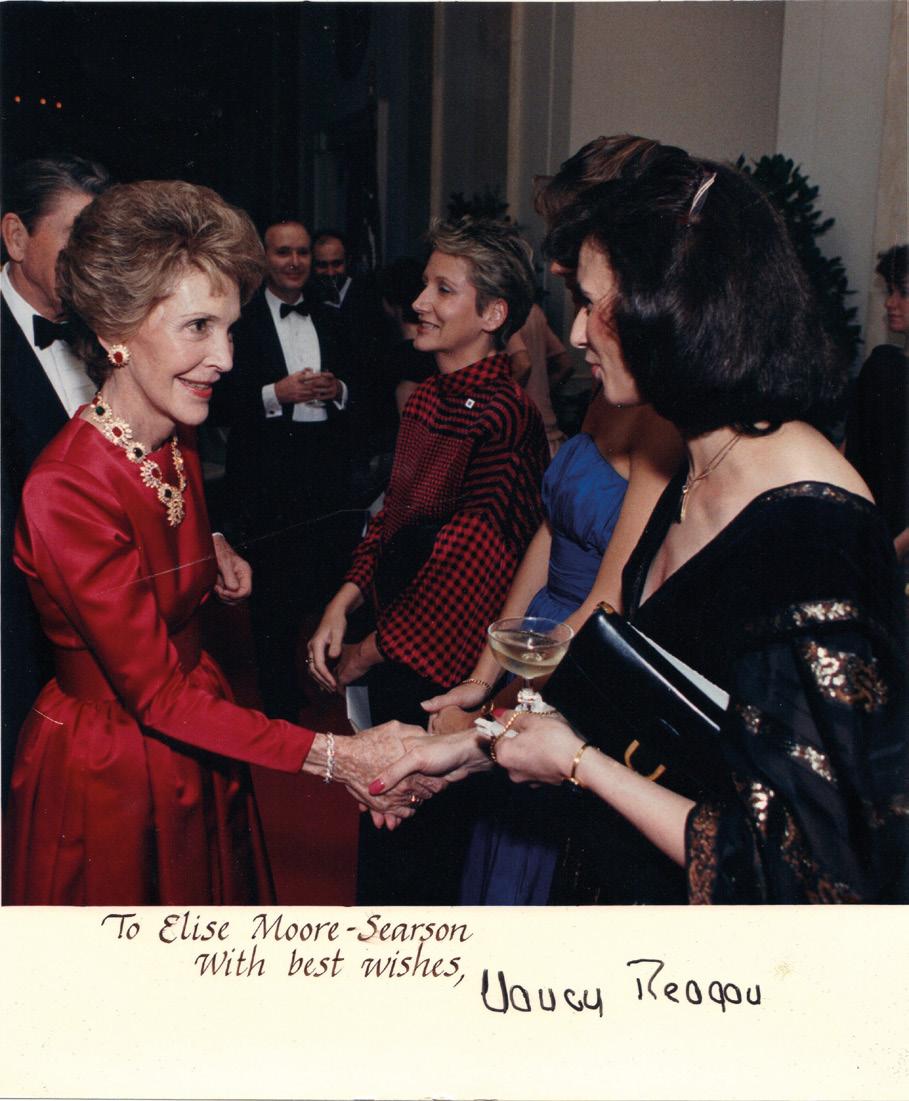
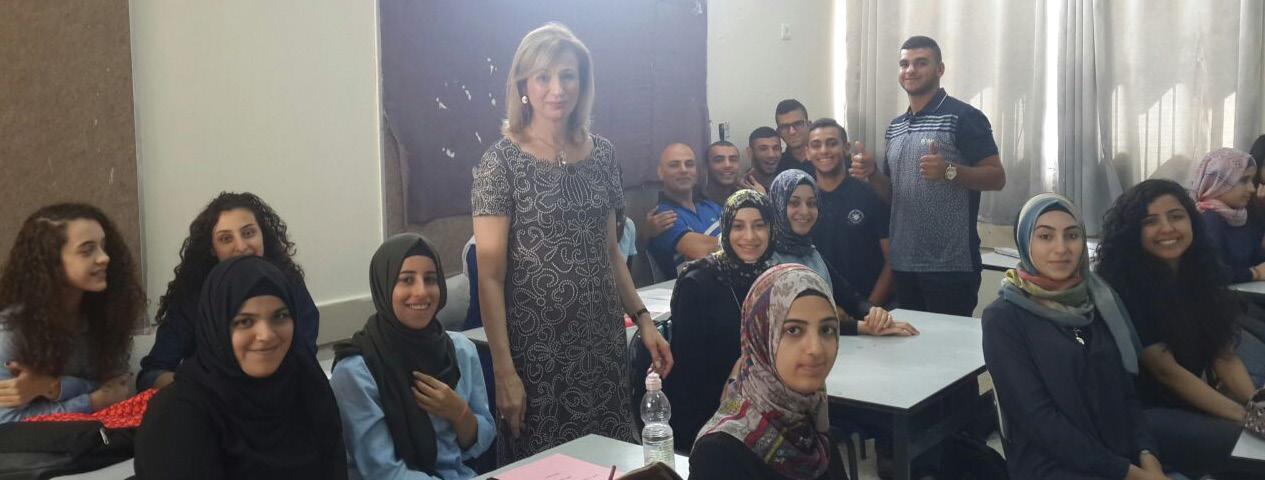
For those alumnae who find that they no longer wish to pursue what they studied at university, please know that you have not wasted your time. The knowledge you have gained will have given you skills and abilities that will always come in useful. Indeed, from my own experience, I have moved from teaching children to training and developing adults, and I have passed on my knowledge to different age groups. People no longer tend to stay in one field or one company for the whole of their working lives. The ability to adapt to changing circumstances and to realise that you have transferable skills is key to survival and long-term happiness.
You have had a very diverse career journey, working at the British Embassy, as a Private Secretary to a member of the royal family, as an HR Director, and now as an Executive Coach and Career Consultant. What is it like to be a woman with so many hats?
I have been very lucky to have had the experience of working in some very interesting jobs, both here and abroad.
My first job was working in the office of the Chairman of the Conservative Party, Lord Thorneycroft, in 1977. It was the period leading up to the election in 1979 that gave us our first female Prime Minister. It was an opportunity to see first-hand a woman leader presiding over a cabinet of mostly men. Wherever I worked, I expanded my knowledge. For example, I learnt
how to communicate with the public and to work with high-profile, demanding leaders. Over time, I modelled some, though definitely not all, of their behaviours. My own direct reports have been kind enough to say that I have been a good leader and paid attention to their own career needs.
It was while working for the French Managing Director of International Water, a water and wastewater joint venture between Bechtel and Edison SpA, that I was asked to take on the human resource management function. I needed to quickly educate myself in the role, so I took an MA in Human Resources Management. Again, so many of the skills I had gained along the way, particularly in understanding cultural differences, were of the utmost importance in taking on this role successfully.
During my time at the company, I employed an Executive Coach to work with the Senior Management team, and I realised that this was a role for which I was a natural fit. To equip myself to do this, I took a postgraduate diploma in Organisational Development and Executive Coaching and set up my own business, Apotheosis Coaching Ltd. I now work as an Executive Coach and Career Consultant. These days, I work with board-level individuals who are considering non-executive roles to run alongside their full-time executive roles or are interested in changing courses altogether. I also work with younger people at all stages of their careers, and many of my clients have international backgrounds and come from all over the world.
As I look back on the trajectory of my career, I realise that each and every role has contributed to my knowledge base, and I often draw on past experiences as well as new learning in the form of continuous professional development to inform my practice and to guide my clients. I also realise that there were no accidents or wrong turns; they were just learning experiences, and I firmly believe that I have been guided throughout my life by both seen and unseen helpers.
Is there any possibility you could share a memorable moment from your time as Private Secretary to HRH Prince Michael?
HRH had a very busy diary, and he was an extremely attentive representative of the many charities in his portfolio. It was, therefore, a great surprise to me one sunny spring morning when he telephoned me from the car to say that he had decided to take the day off and travel in the opposite direction to see friends. This was completely out of character, and he had a full day of long-planned important events in the diary. Wondering how on earth I was going to deal with this, I was not helped by the fact that the more anxious I became, the more he roared with laughter. He finally said, ’Got you!’ It was April Fools’ Day!
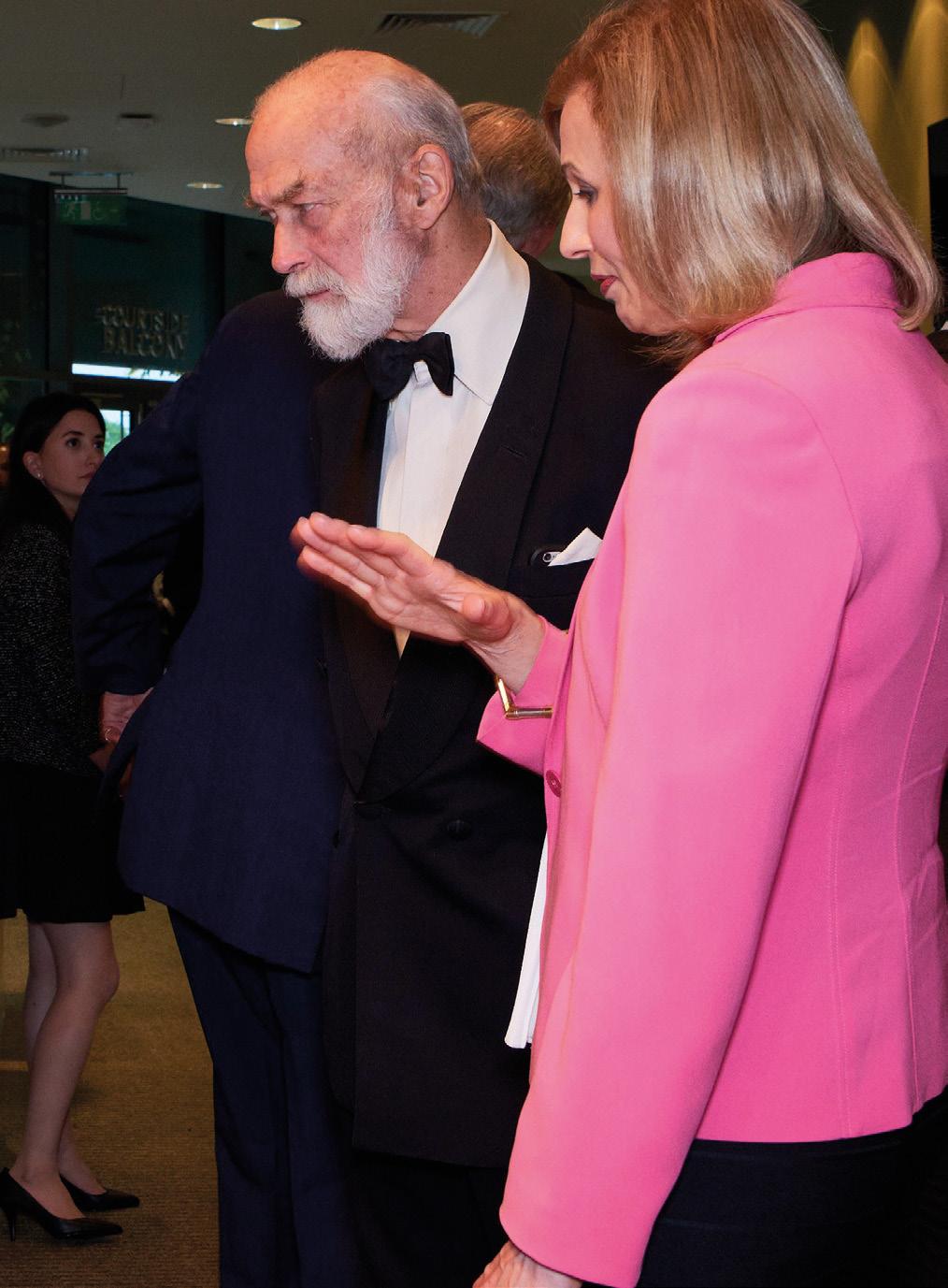
As an Executive Coach and Career Consultant, what insight or advice would you offer to current students or recent graduates who are just starting their careers?
The place of women in the workplace has changed a great deal since I started work. However, although there are many excellent women in leadership roles, men still outnumber women in senior leadership. I would definitely advise women to continue to learn as much as possible and be confident in their abilities. Study female role models and copy their behaviours. Also, do not be afraid to ask for help and mentoring from both men and women.
Opportunities will come along out of the blue, but the more you focus on what you really want, the more choices will come along, often when you least expect them.
What’s next for you? What aspirations or goals do you hope to achieve in your career or personal life moving forward?
My mother died last year in her 96th year, and was working into her late 80s. If I lived that long, I certainly think I would still have a lot to learn. I will continue to develop myself as an Executive Coach, but I also want to improve as a bridge player. My grandmother taught me to play when I was about ten, and it is a game I have played all over the world. I fully recommend it as a means of keeping the brain active and engaged.
Do you have anything you wish you could tell your younger self? What would you say to those who have just left Godolphin?
To my younger self, I would definitely say, enjoy life. There will be challenges ahead, but you will be amazed at what you will achieve, and you have all the resources you need within you to do so.
Live in the present moment, be flexible and tolerant, and embrace change as it comes along. Change is good; it opens new doors and opportunities for progress. Keep a work journal and record events that you want to learn from. Think about what happened, what you would do differently another time, and what you want to learn from the experience.
Our giving circle, for people like you, who wish to continue supporting the bright girls of the future.
It was under the leadership of our former head, Margaret Gray, that Godolphin and Latymer first began to provide financial assistance to girls looking to join the school. It was her belief – and ours too – that every bright girl, regardless of her family’s circumstances, should have the opportunity to flourish.
If you decide to leave a gift in your will to Godolphin and Latymer, you’ll also be invited to join the Francha Leale Society. If you would like to find out more about our leaving a gift in your will, please contact our Development team on 020 8735 9550 or at development@godolphinandlatymer.com, and they will be happy to answer any questions you have.

‘The school provided me with a rounded education, one I was only able to access thanks to a transformational bursary. From state-of-the-art equipment to immersive trips, the opportunities that Godolphin and Latymer offers are truly exceptional. I only have great things to say about my teachers – I still refer back to their advice now. I would like to express my gratitude to all those whose generosity enabled me to access my education. The education I received at Godolphin and Latymer allowed me to follow my passions.’
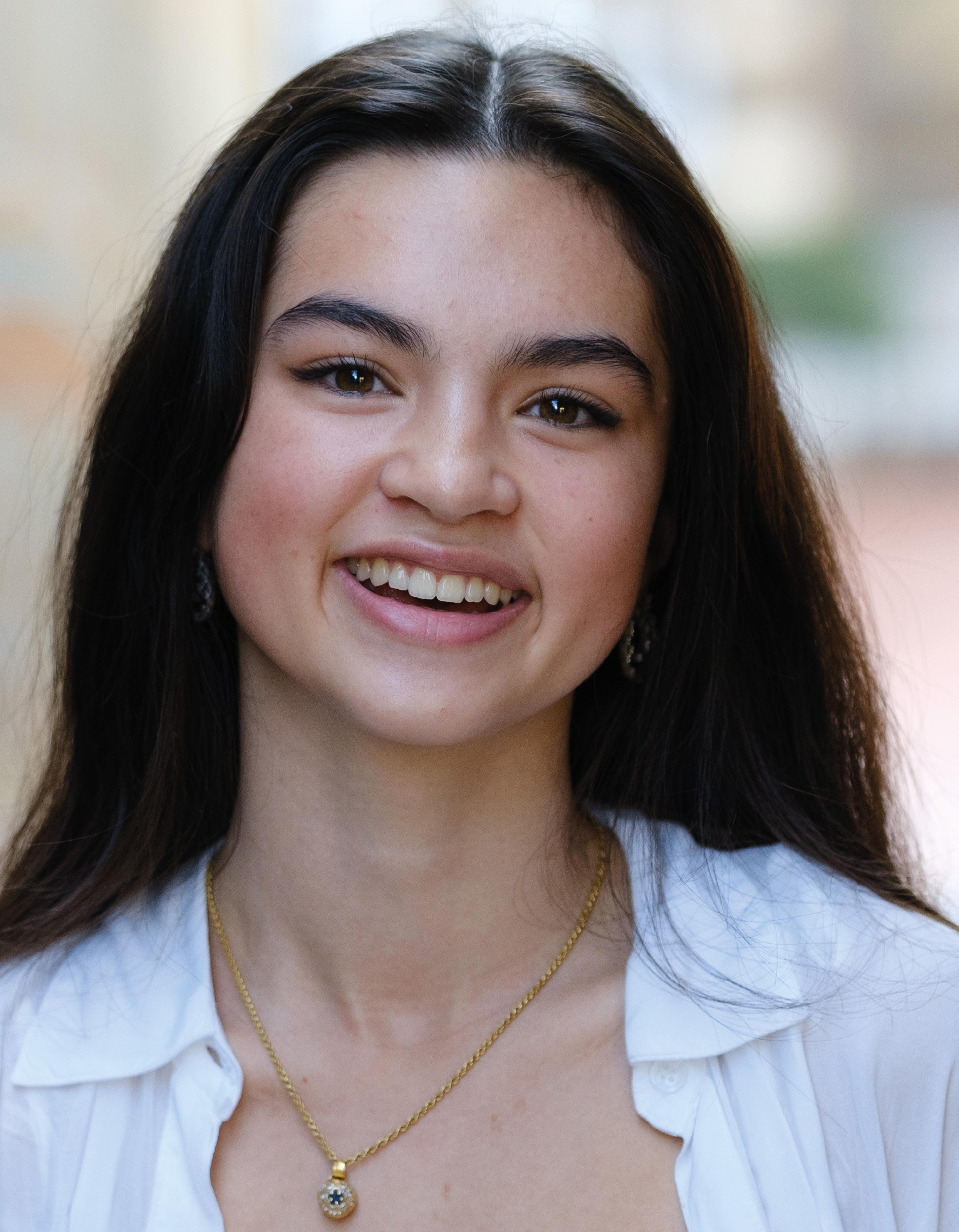
Legacy gifts help us offer this lifechanging support to more girls, like Heather.